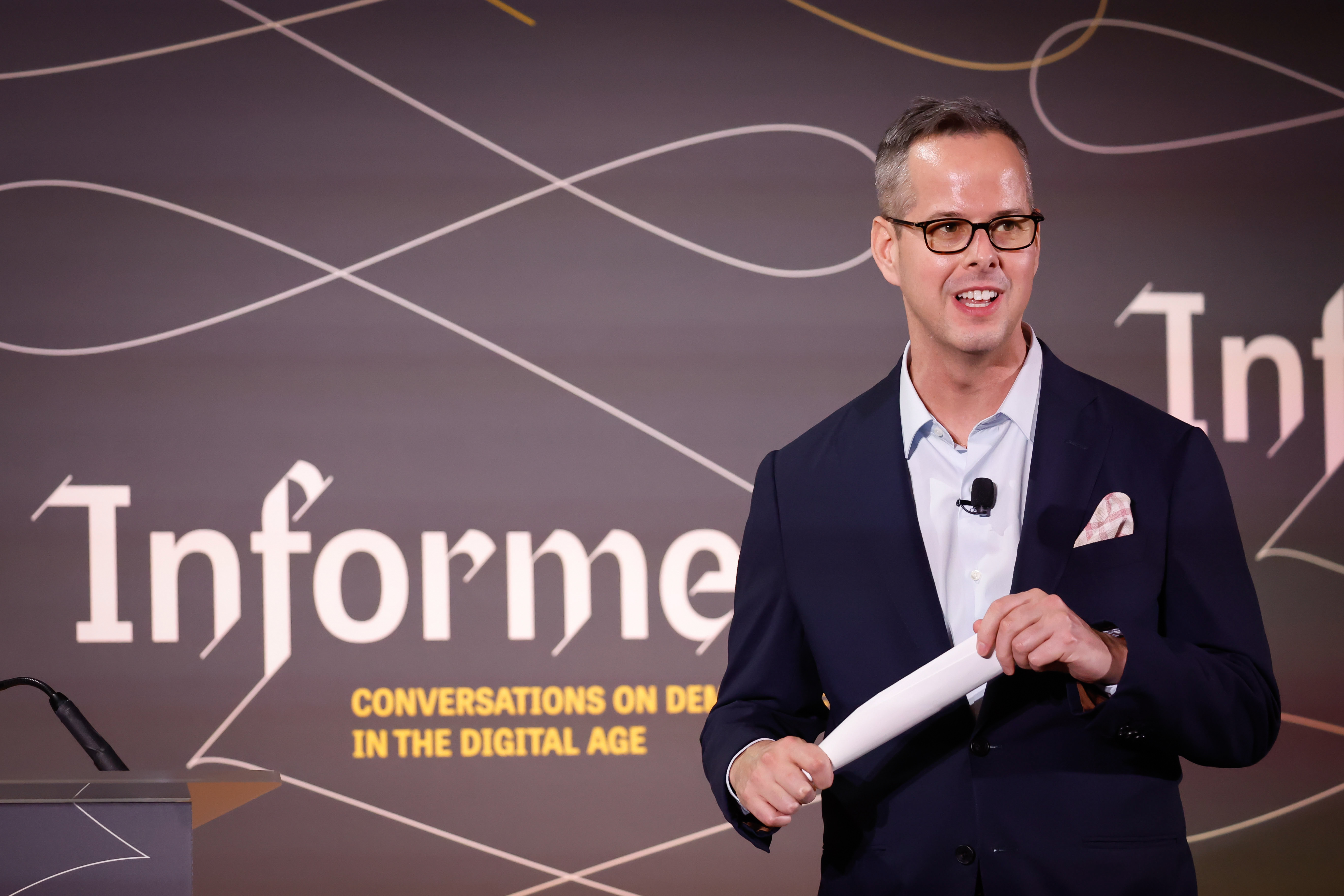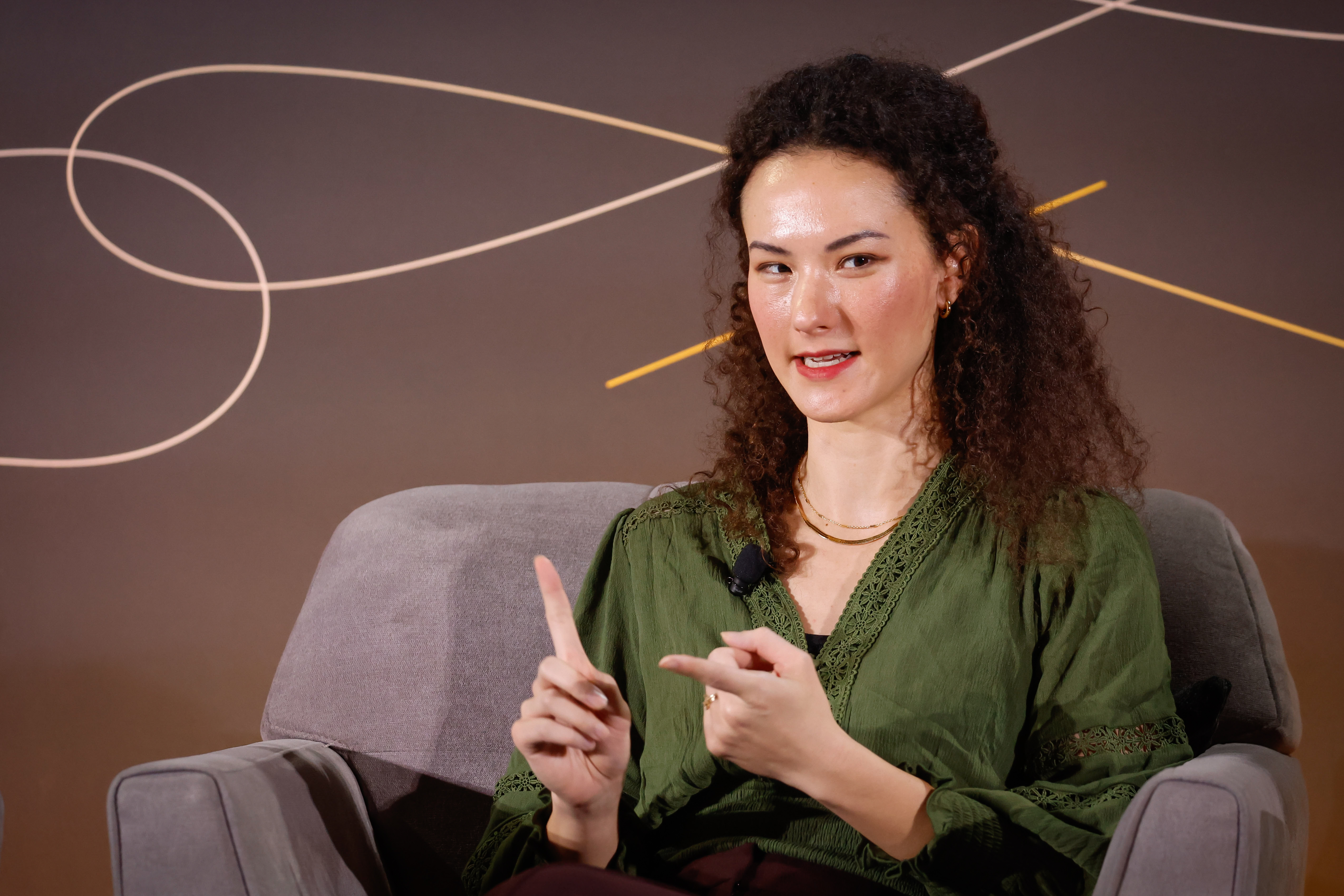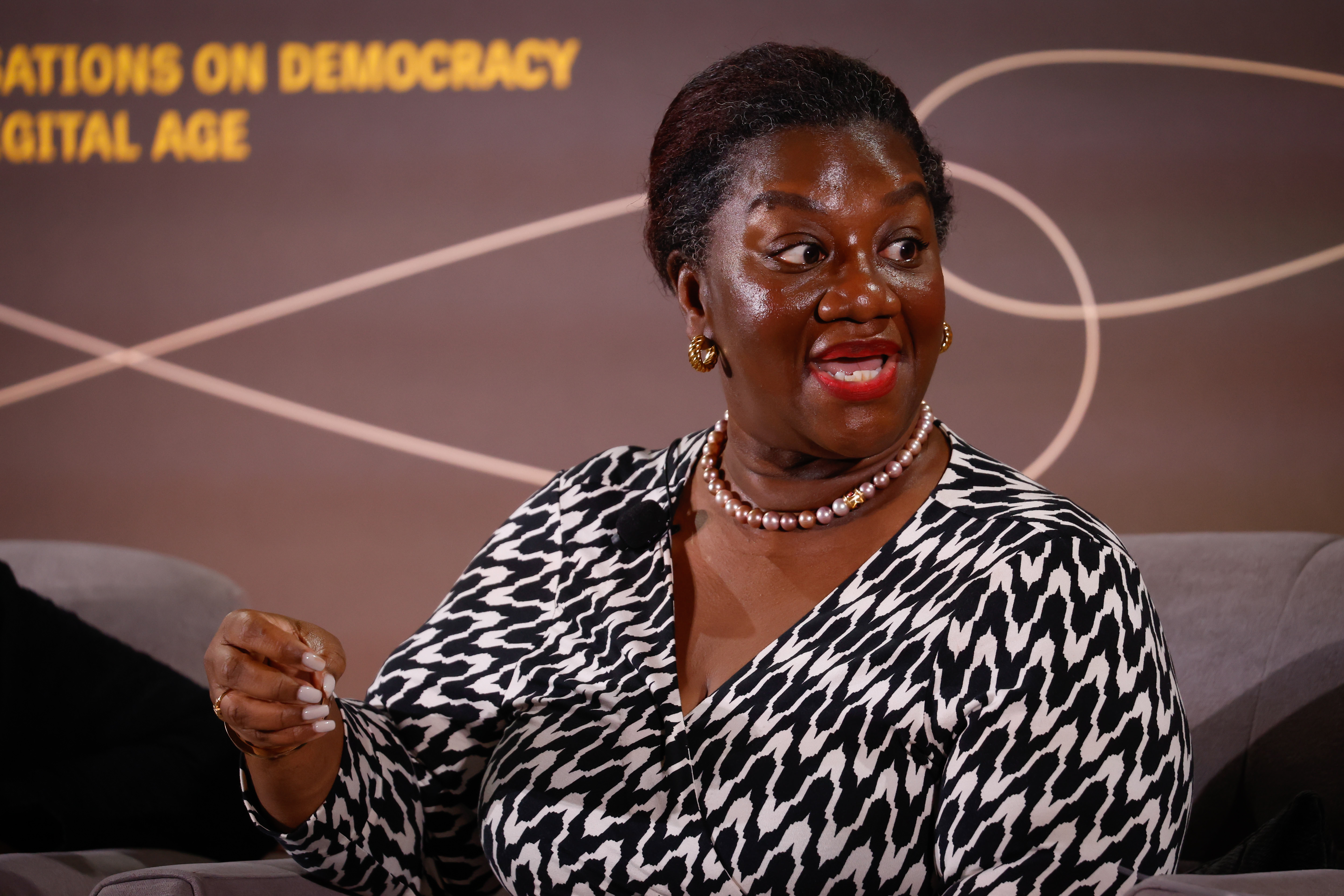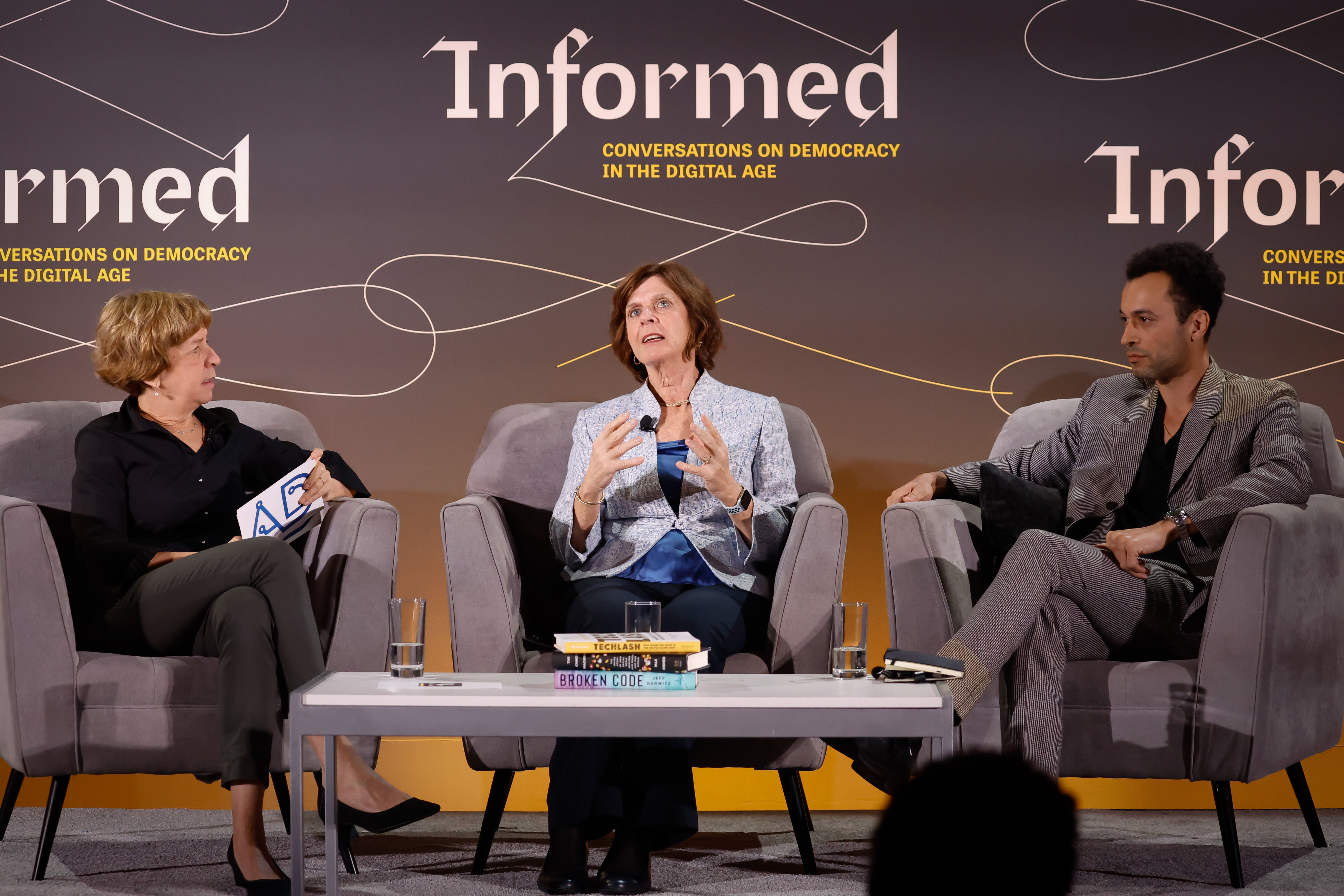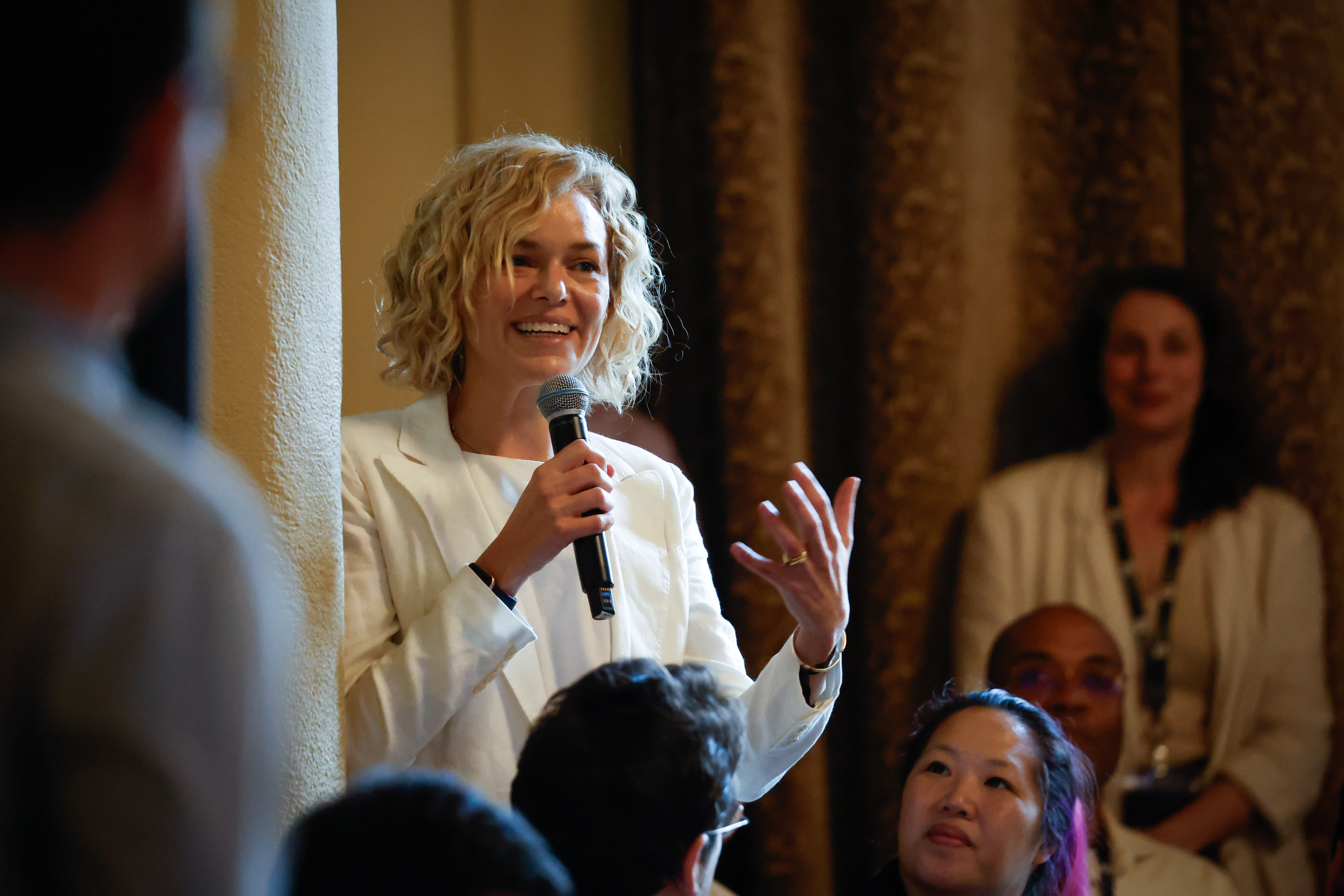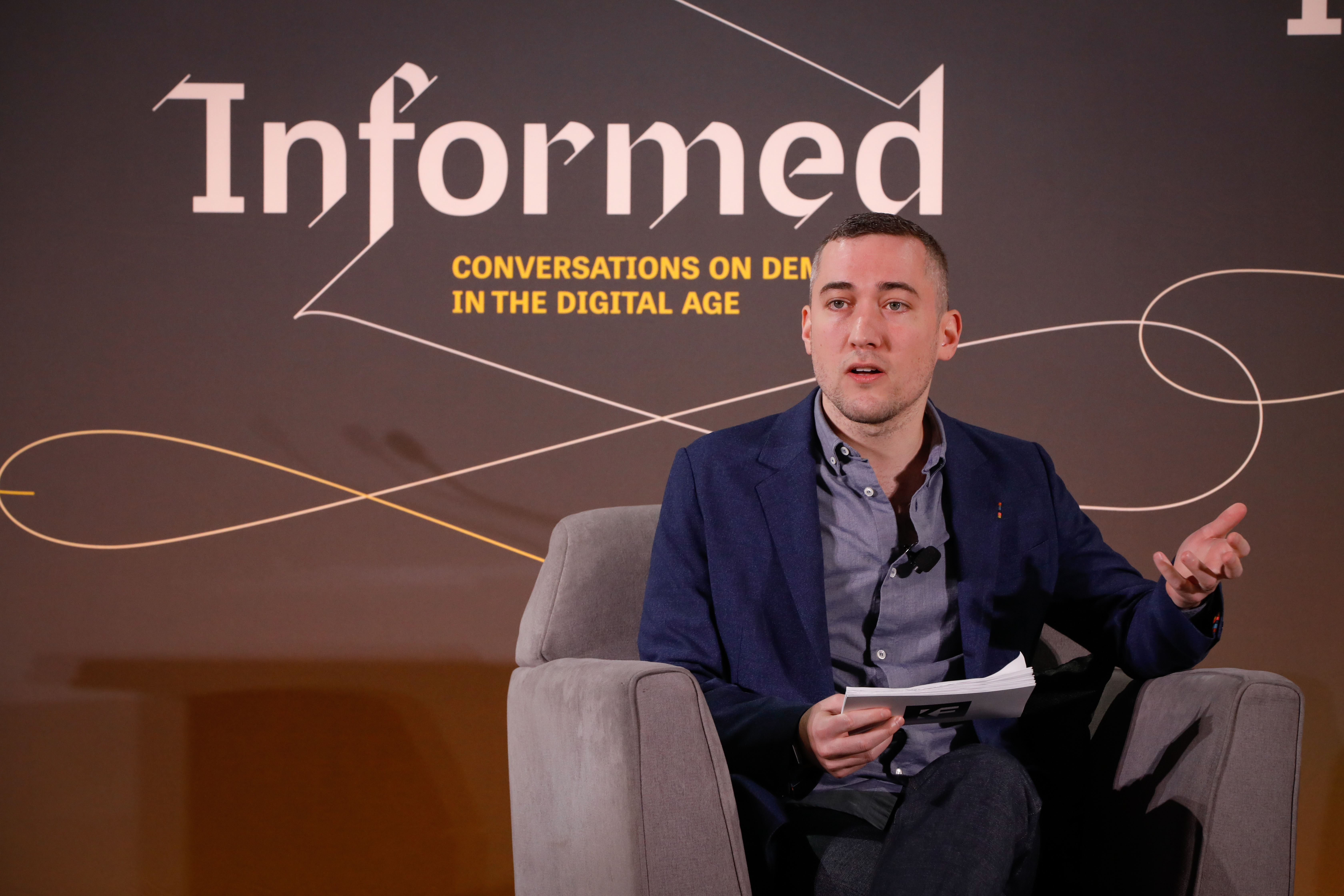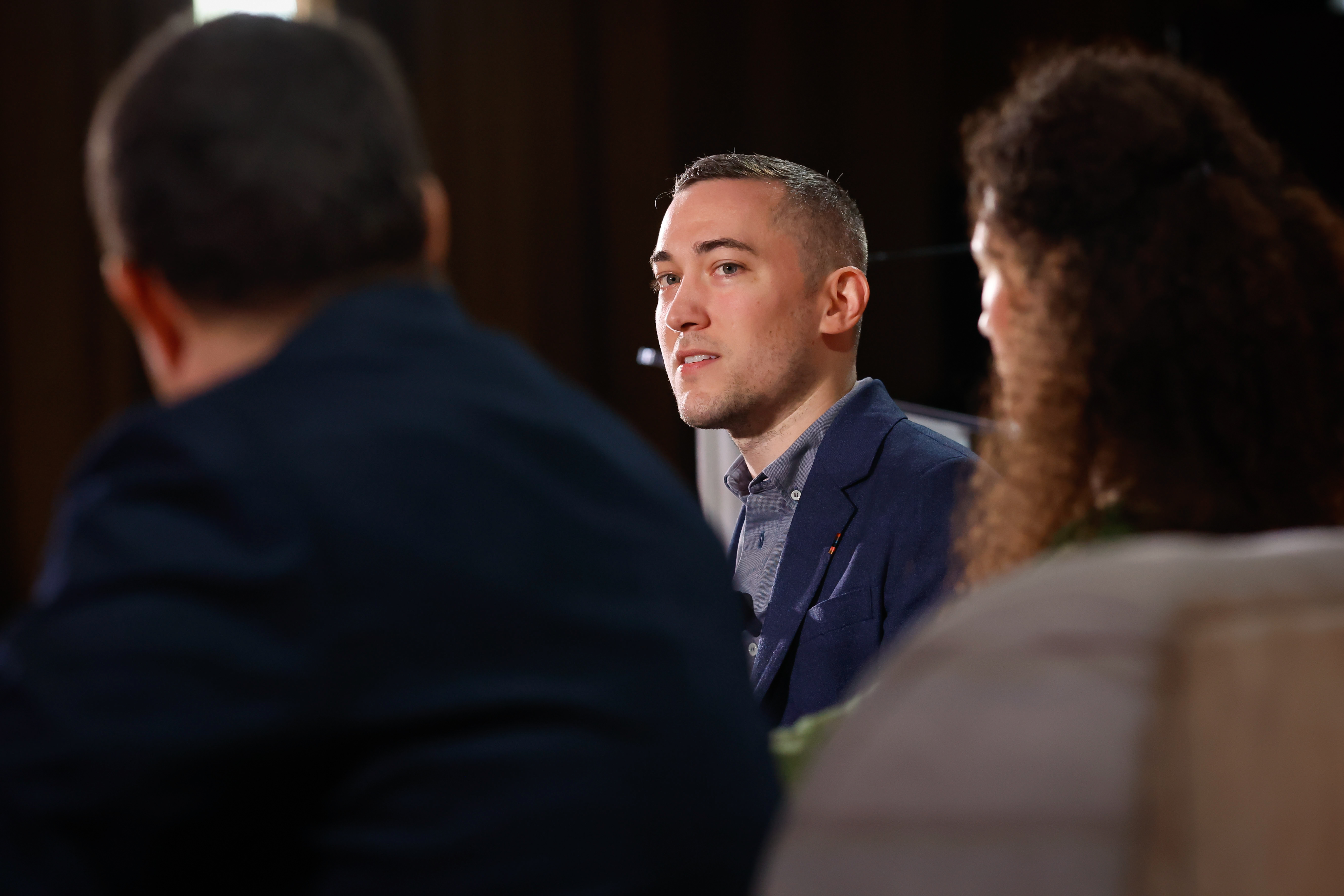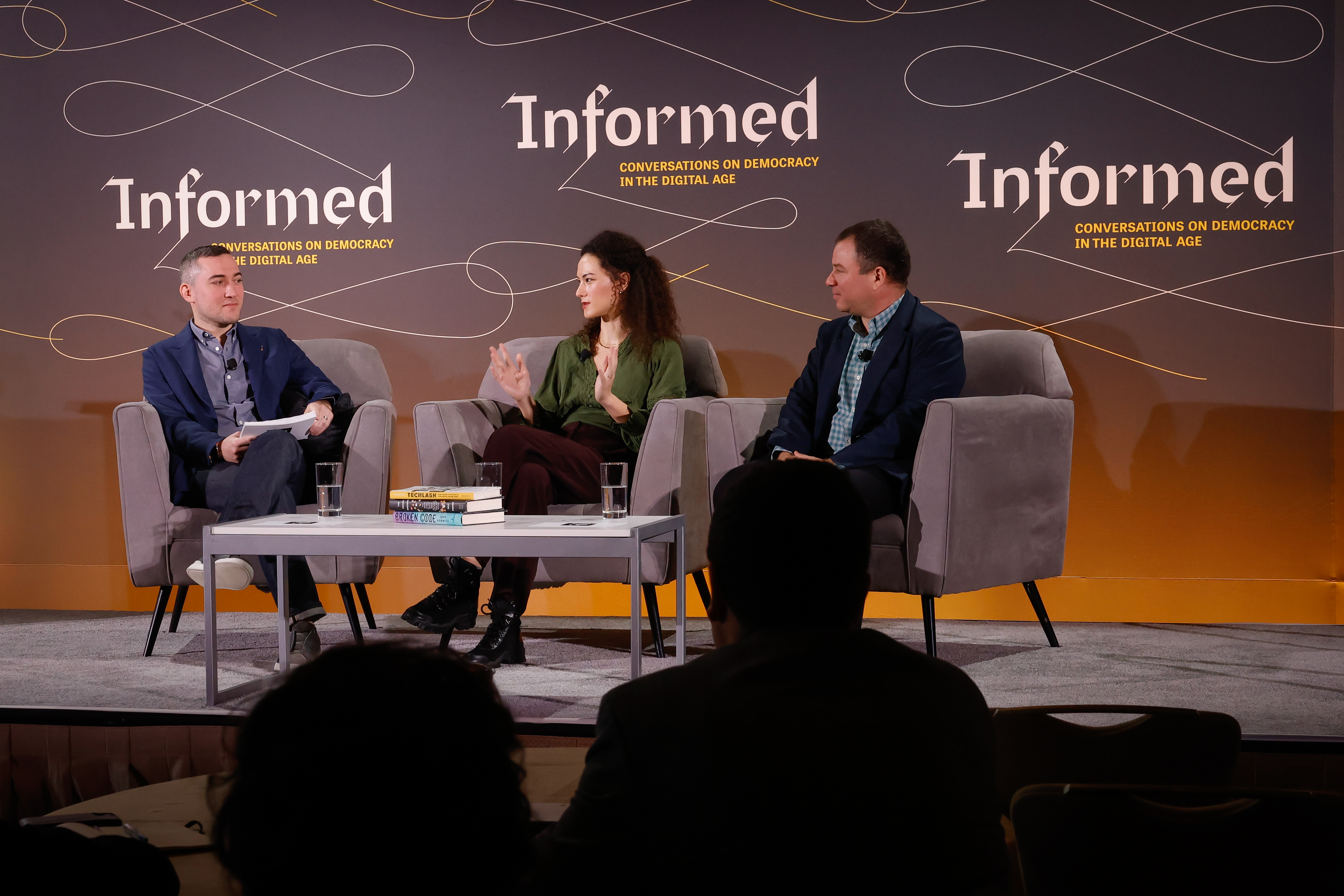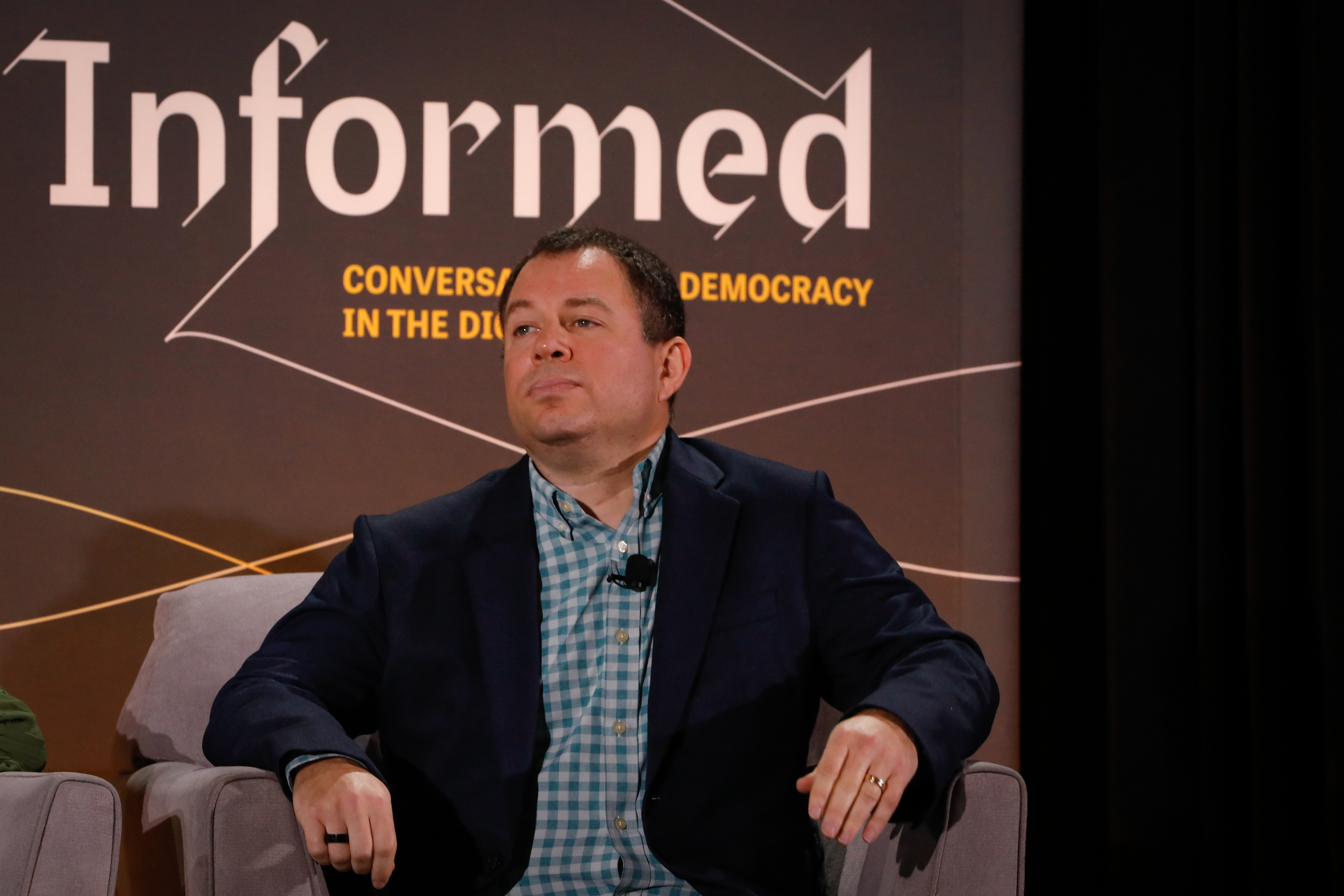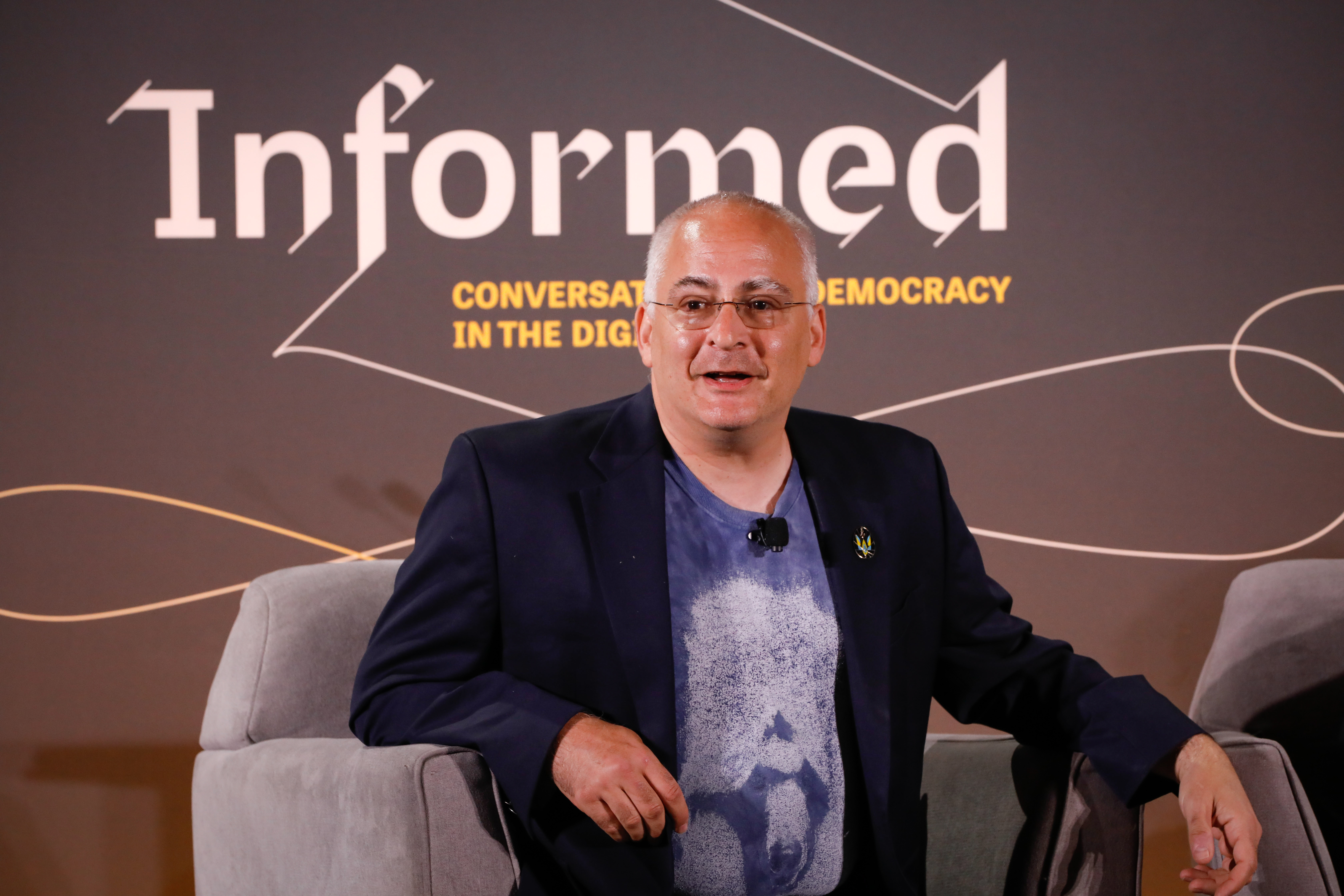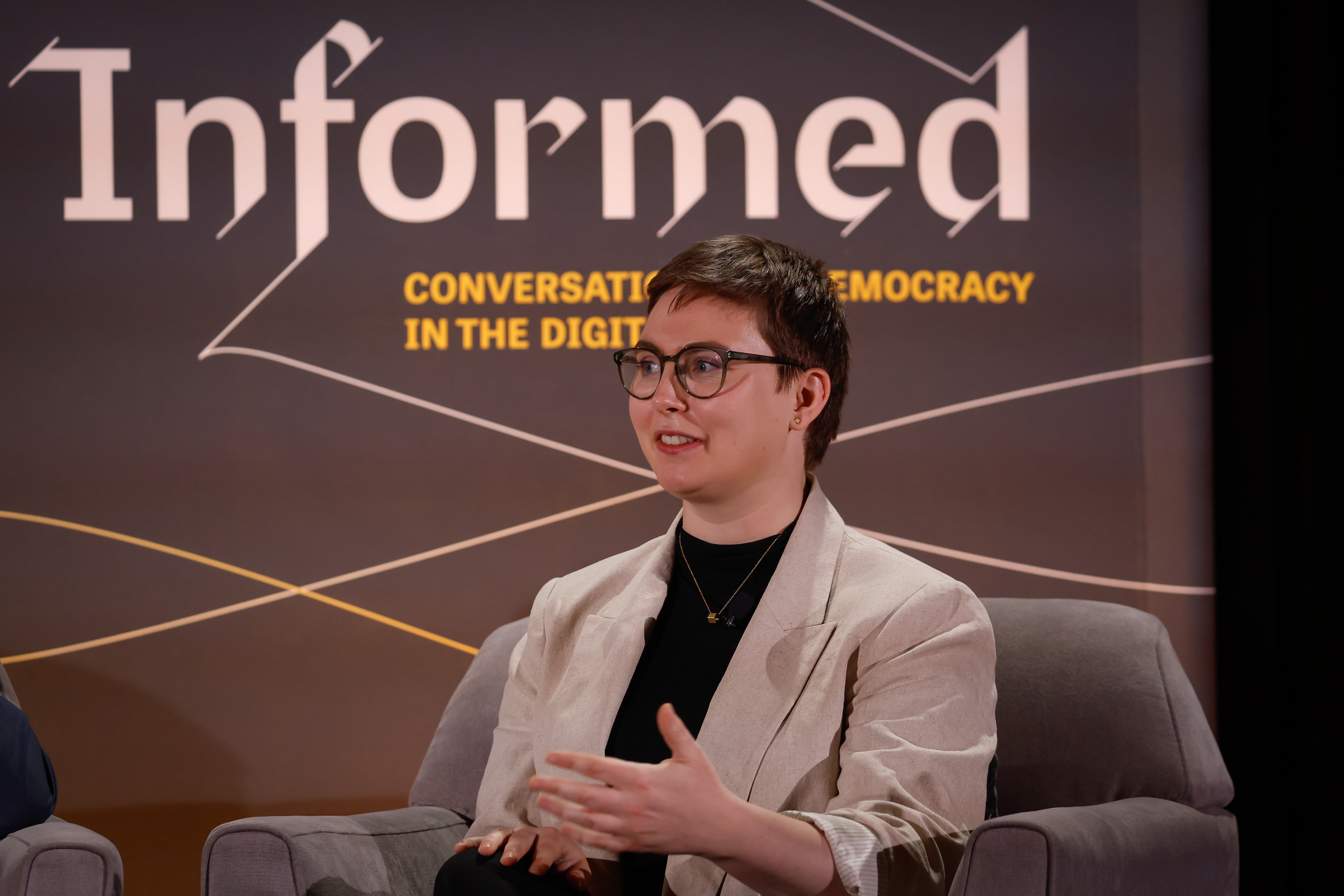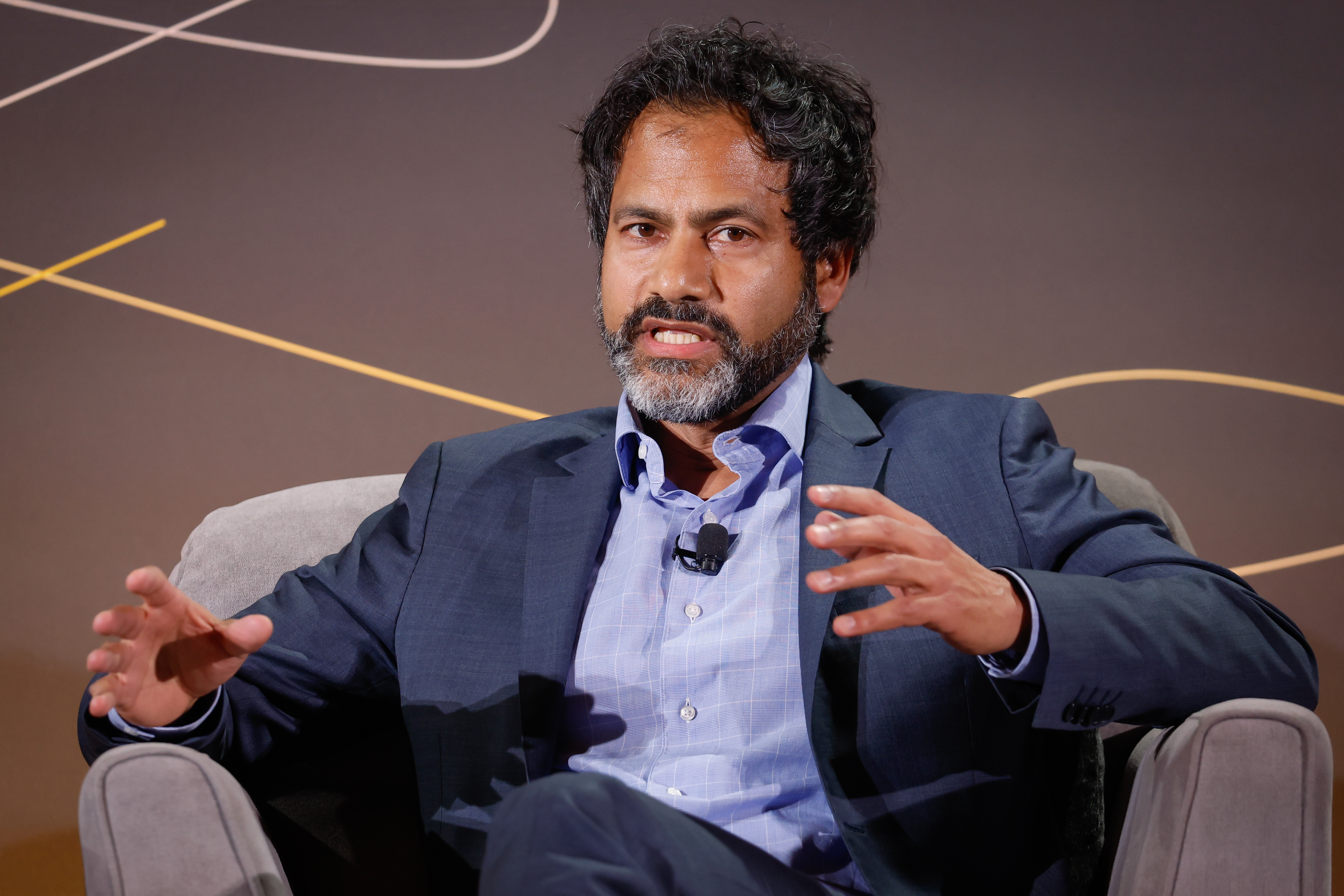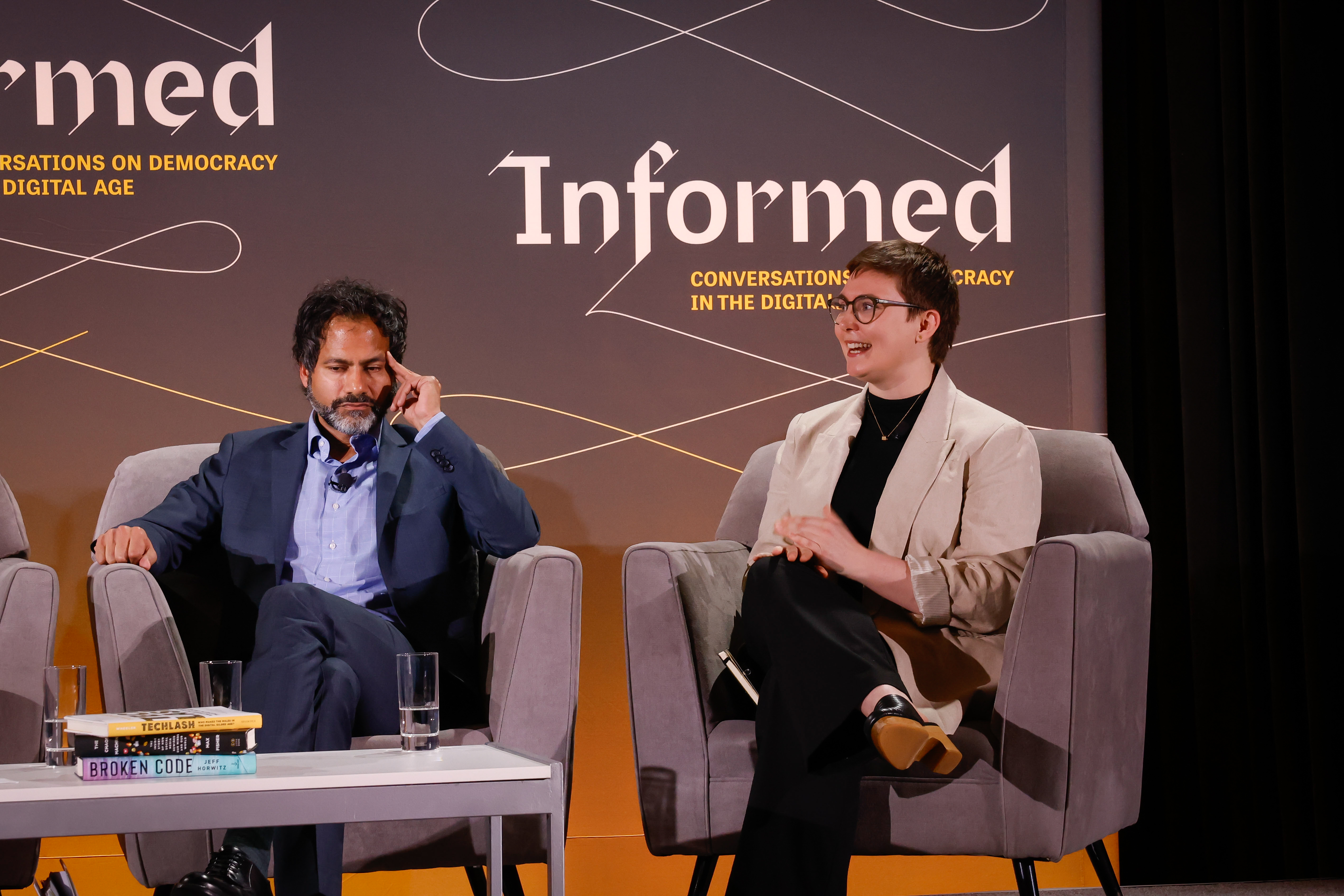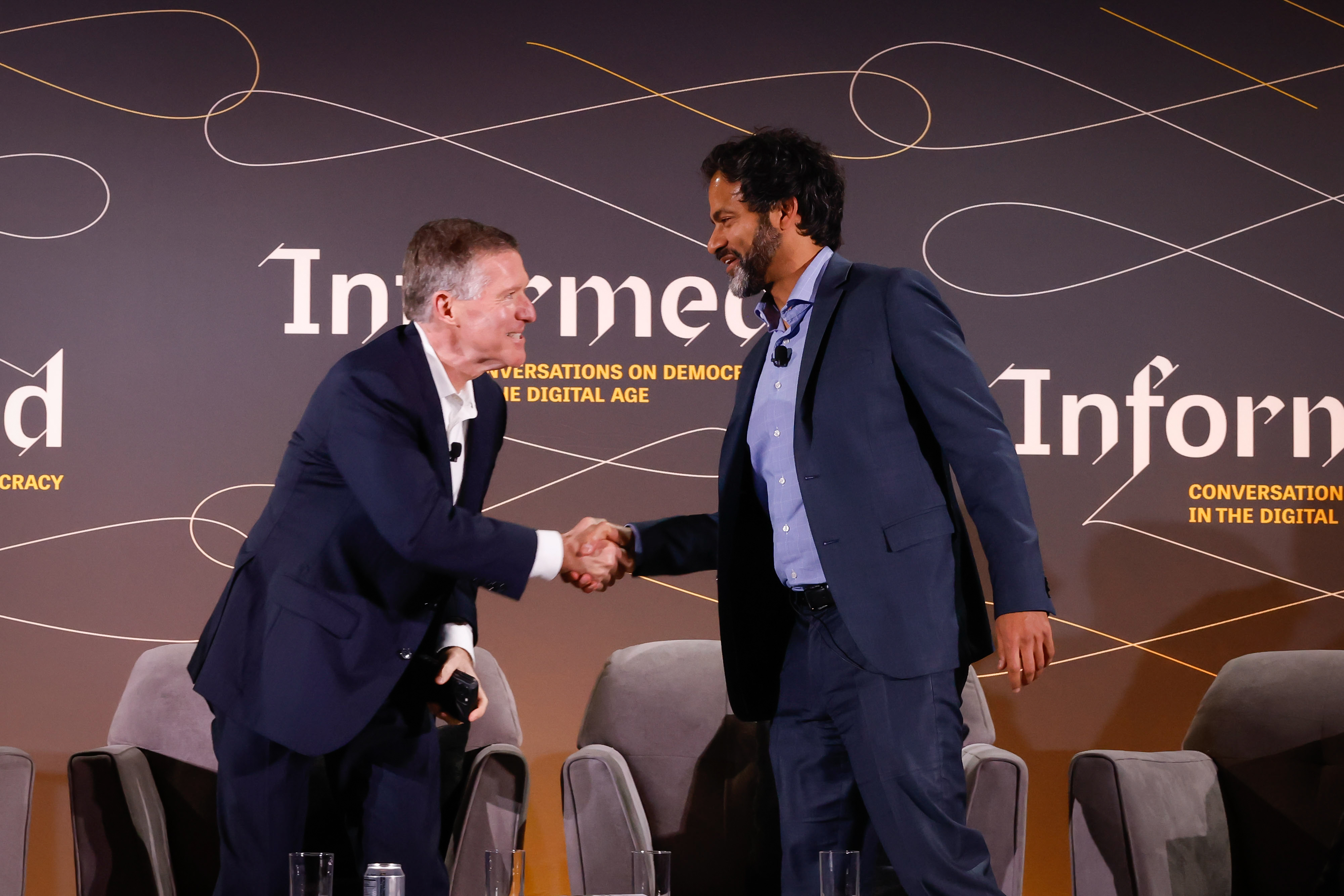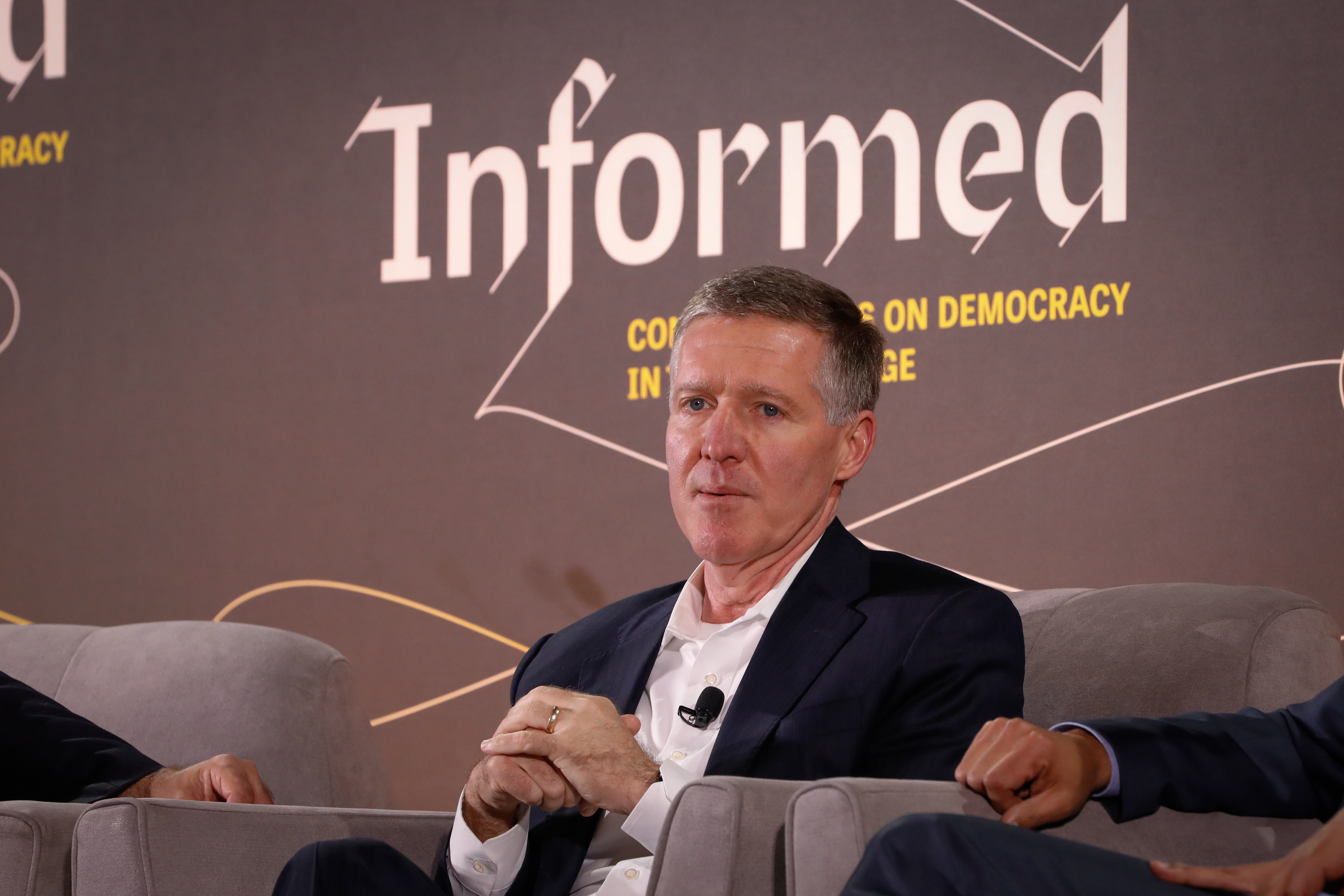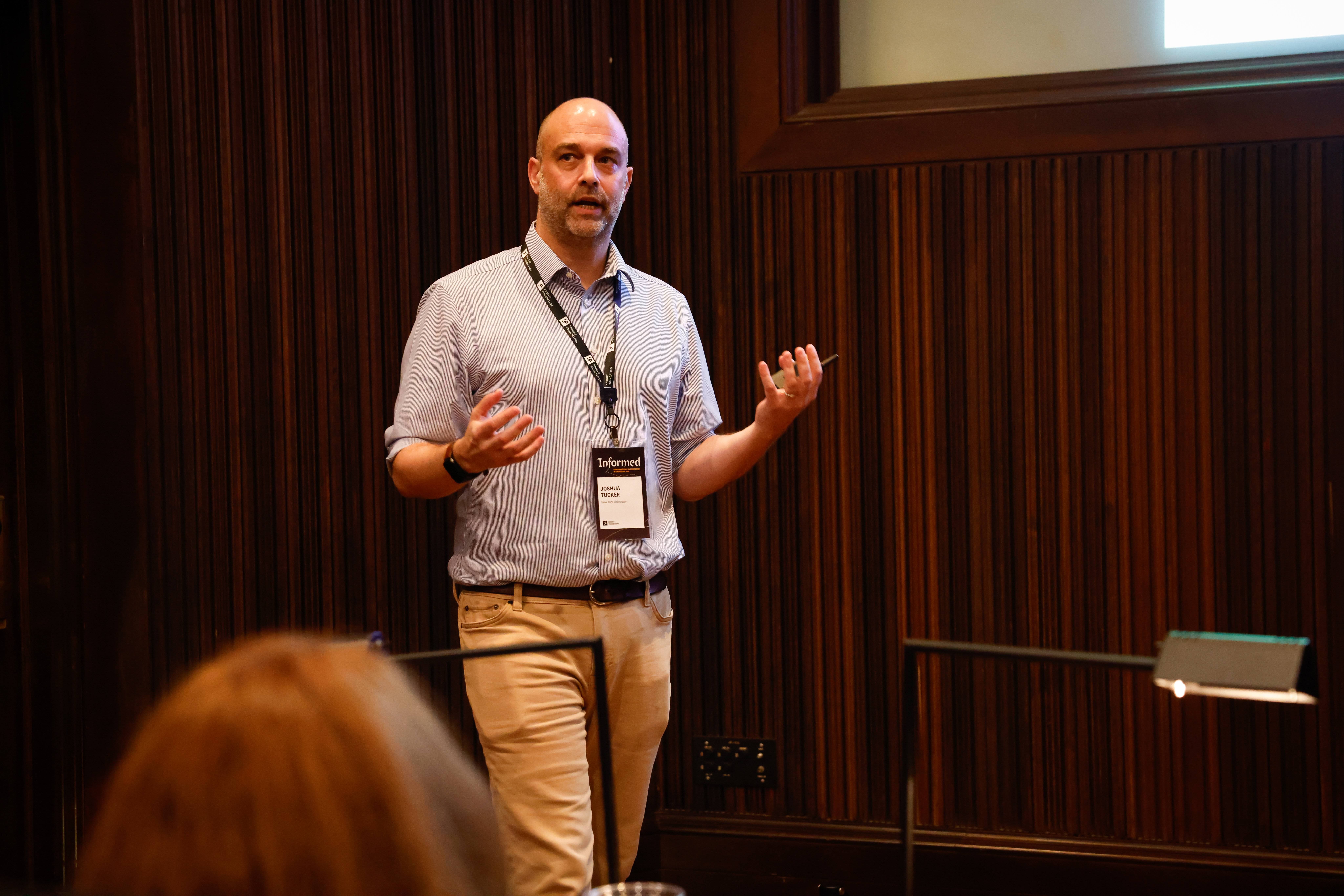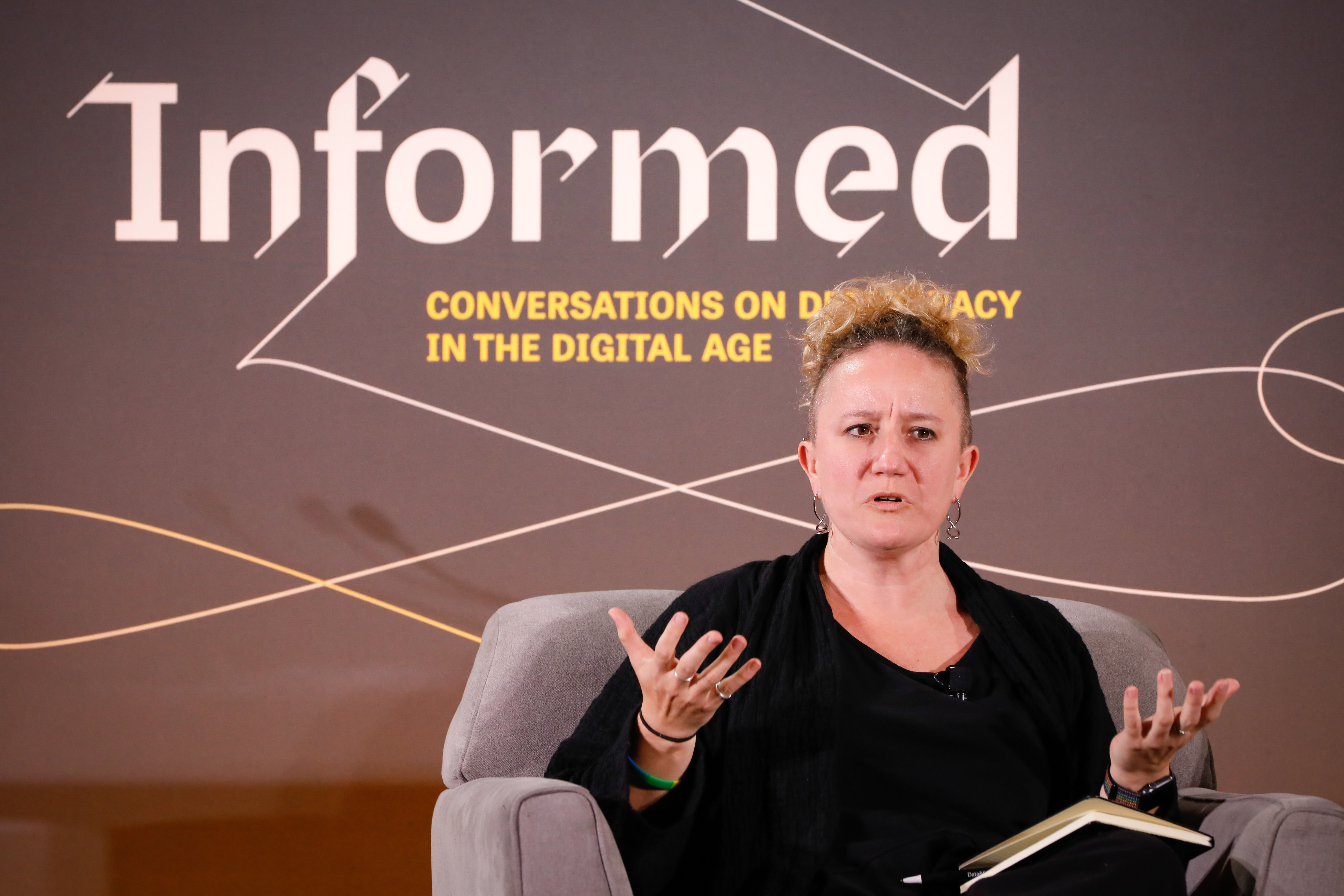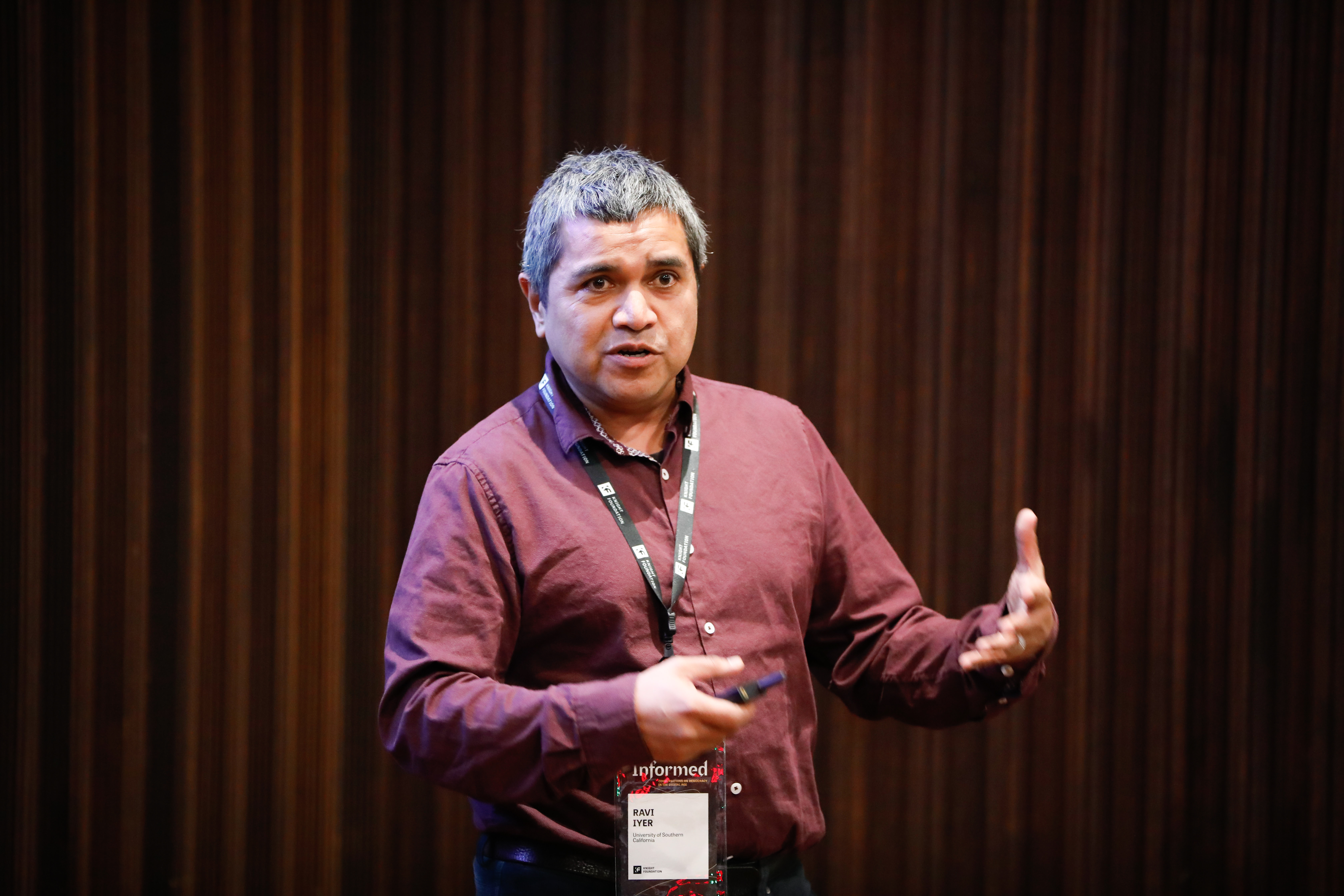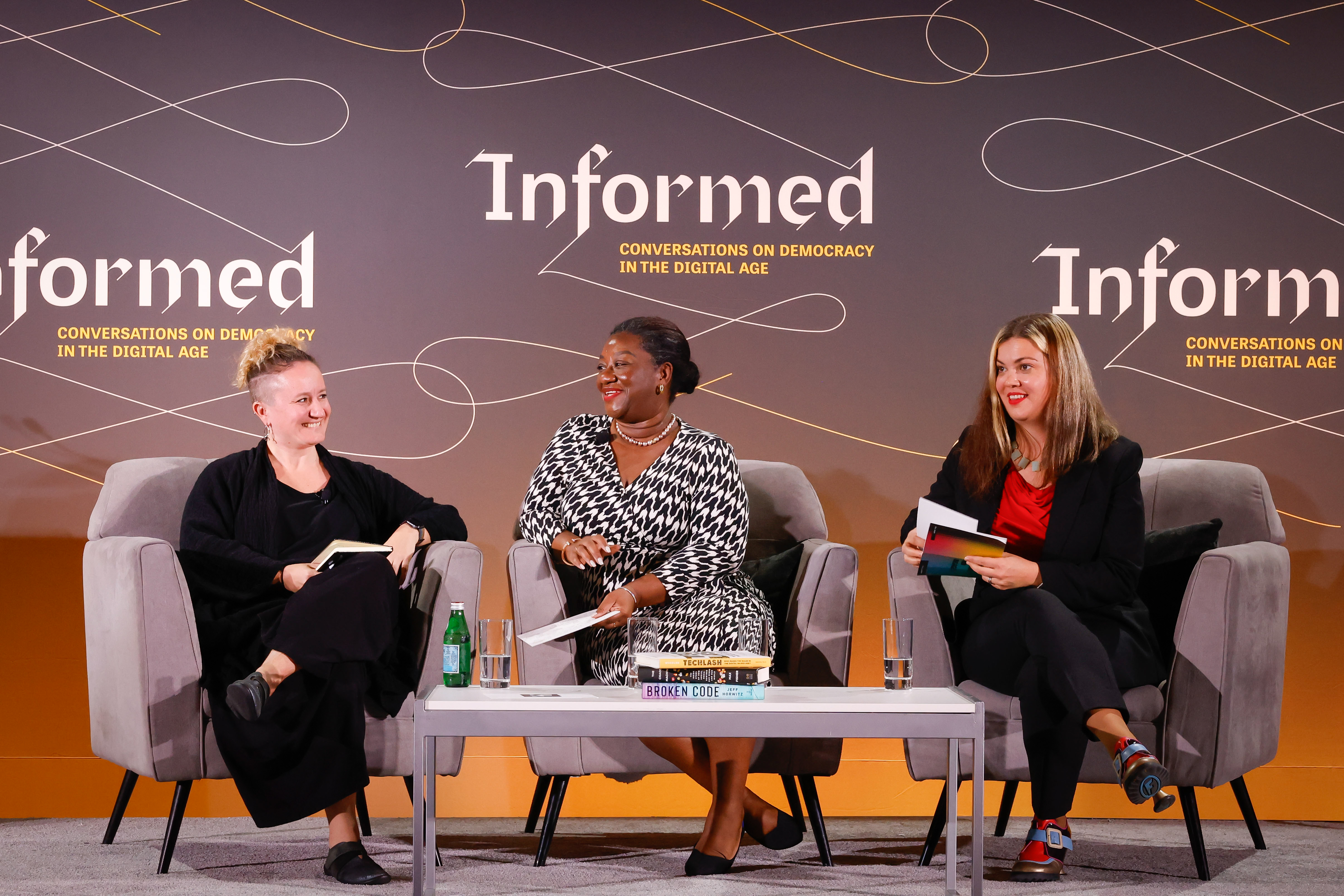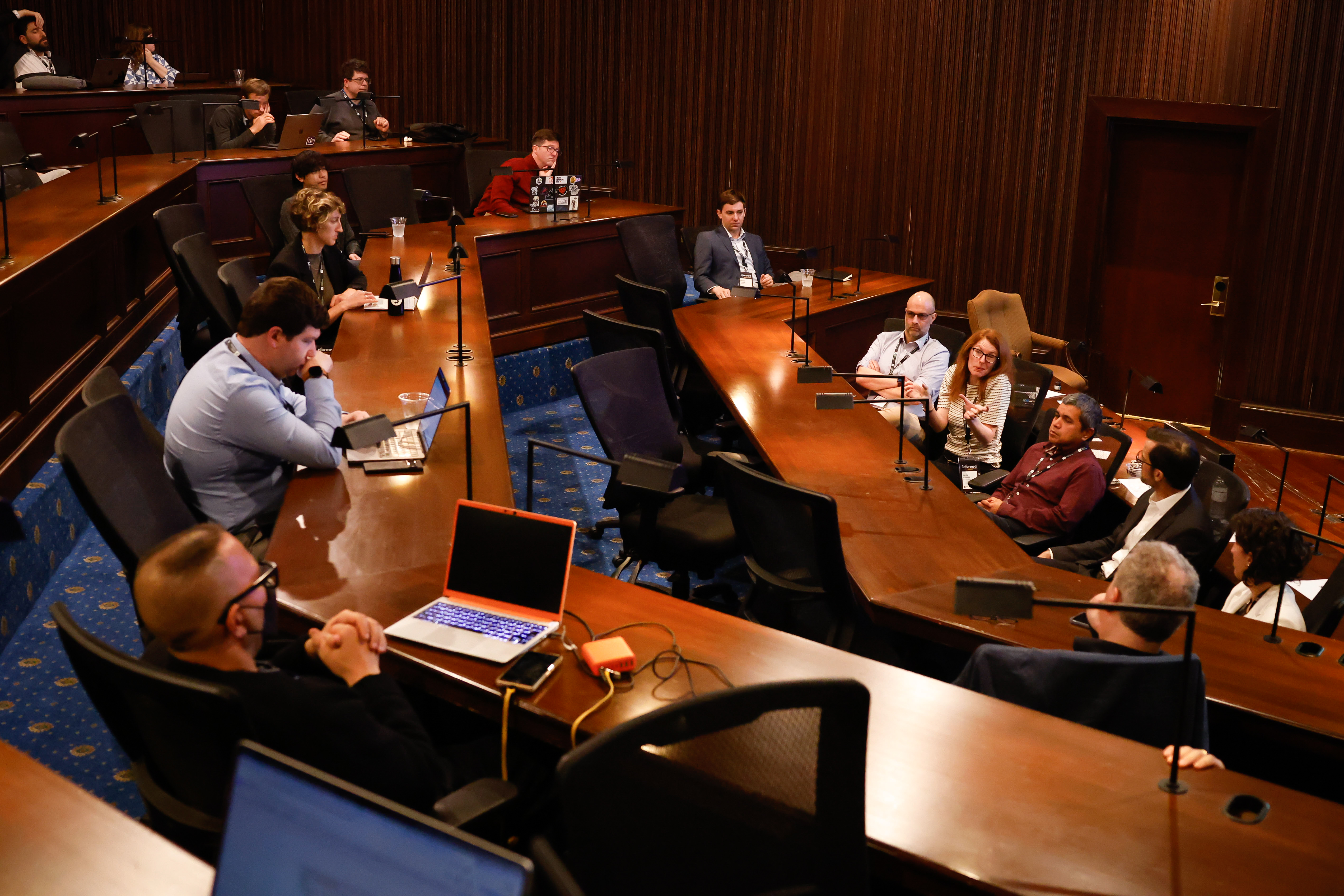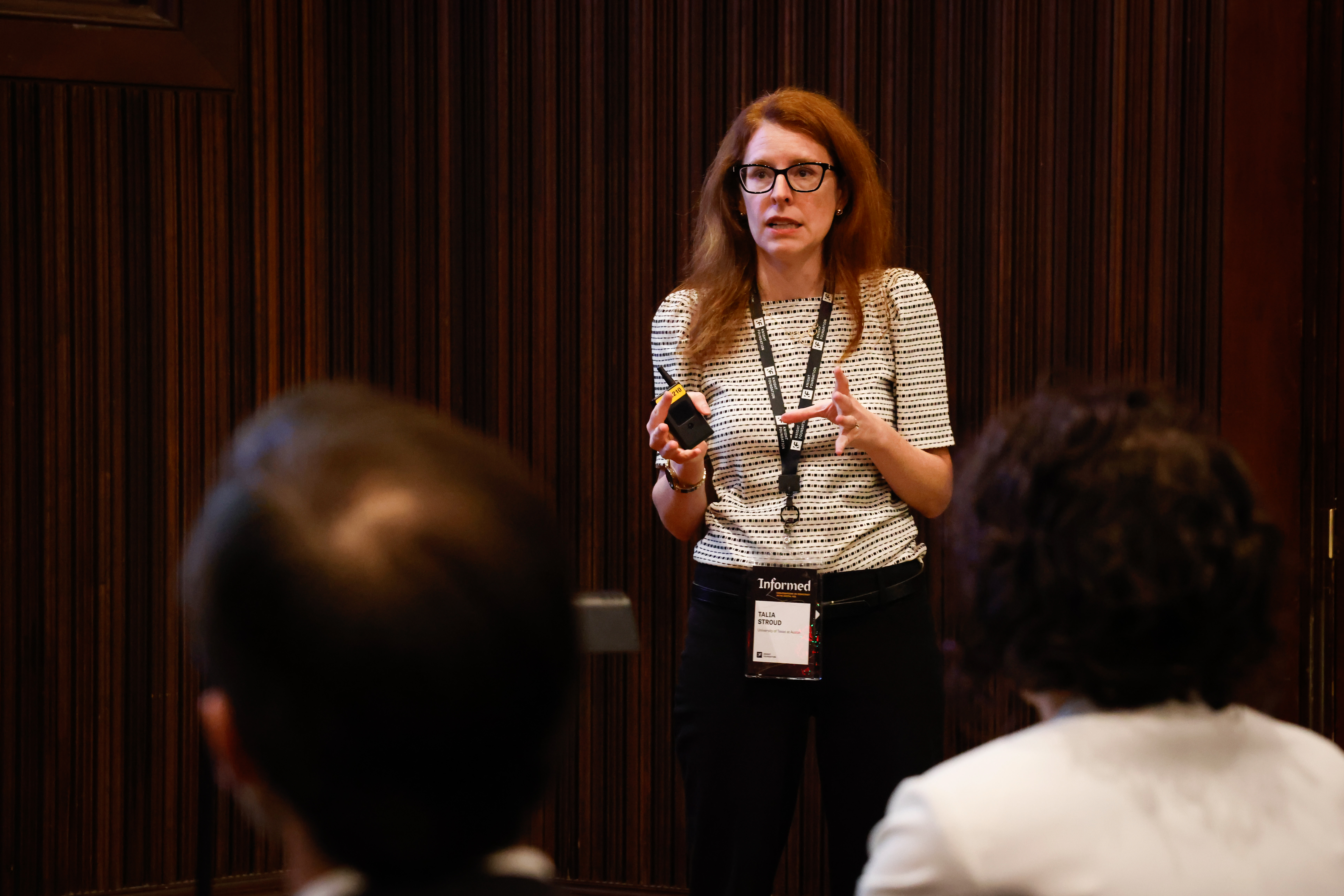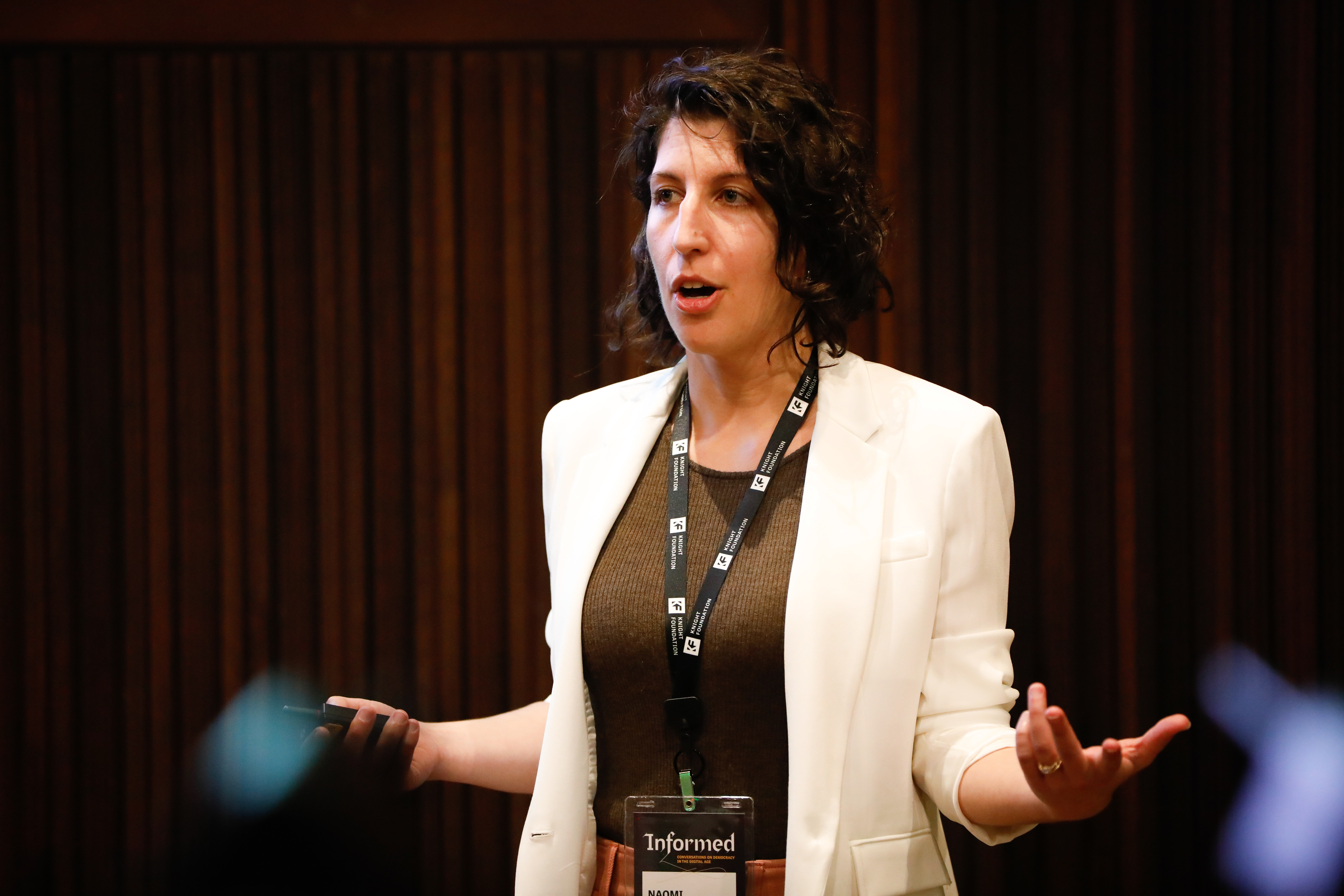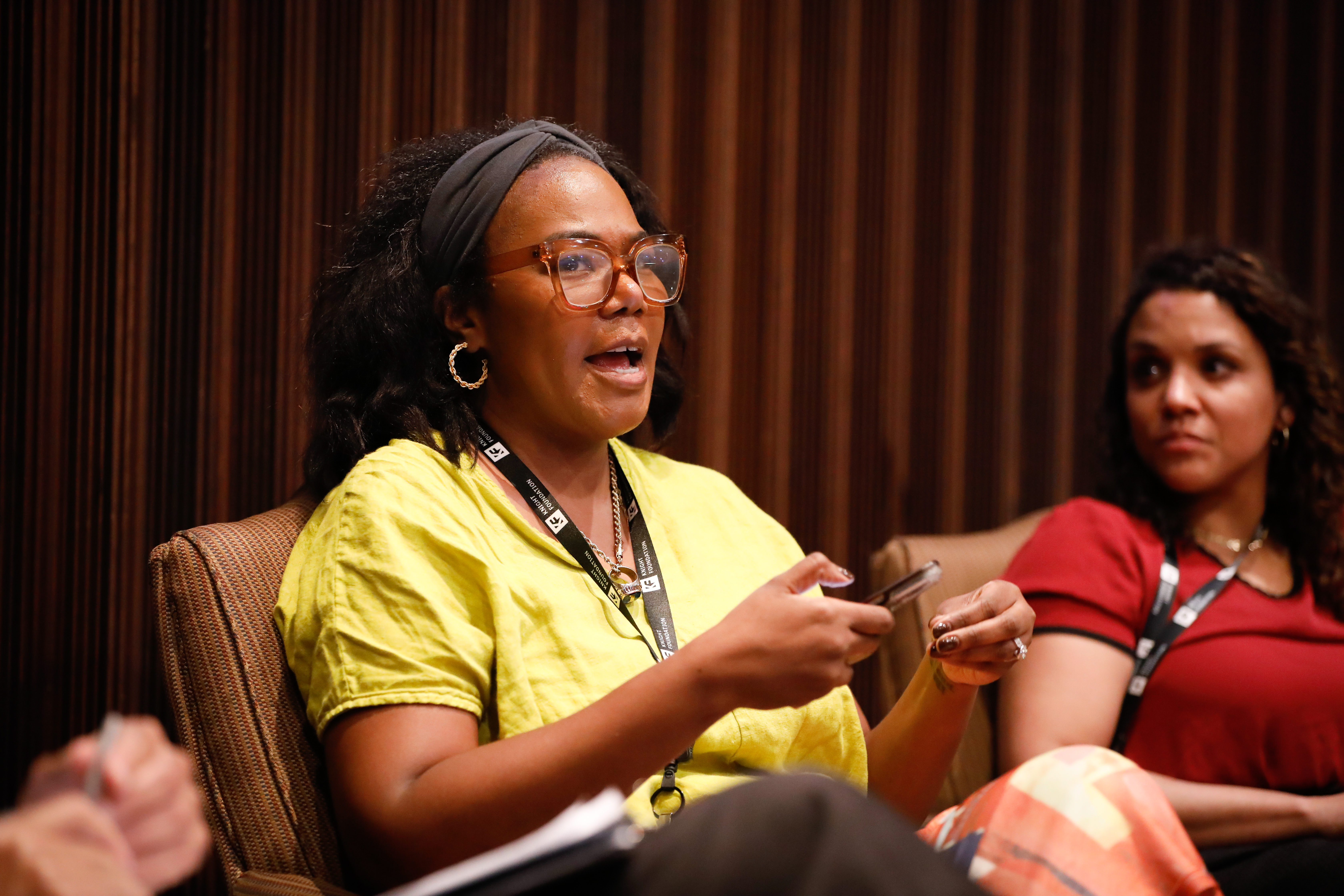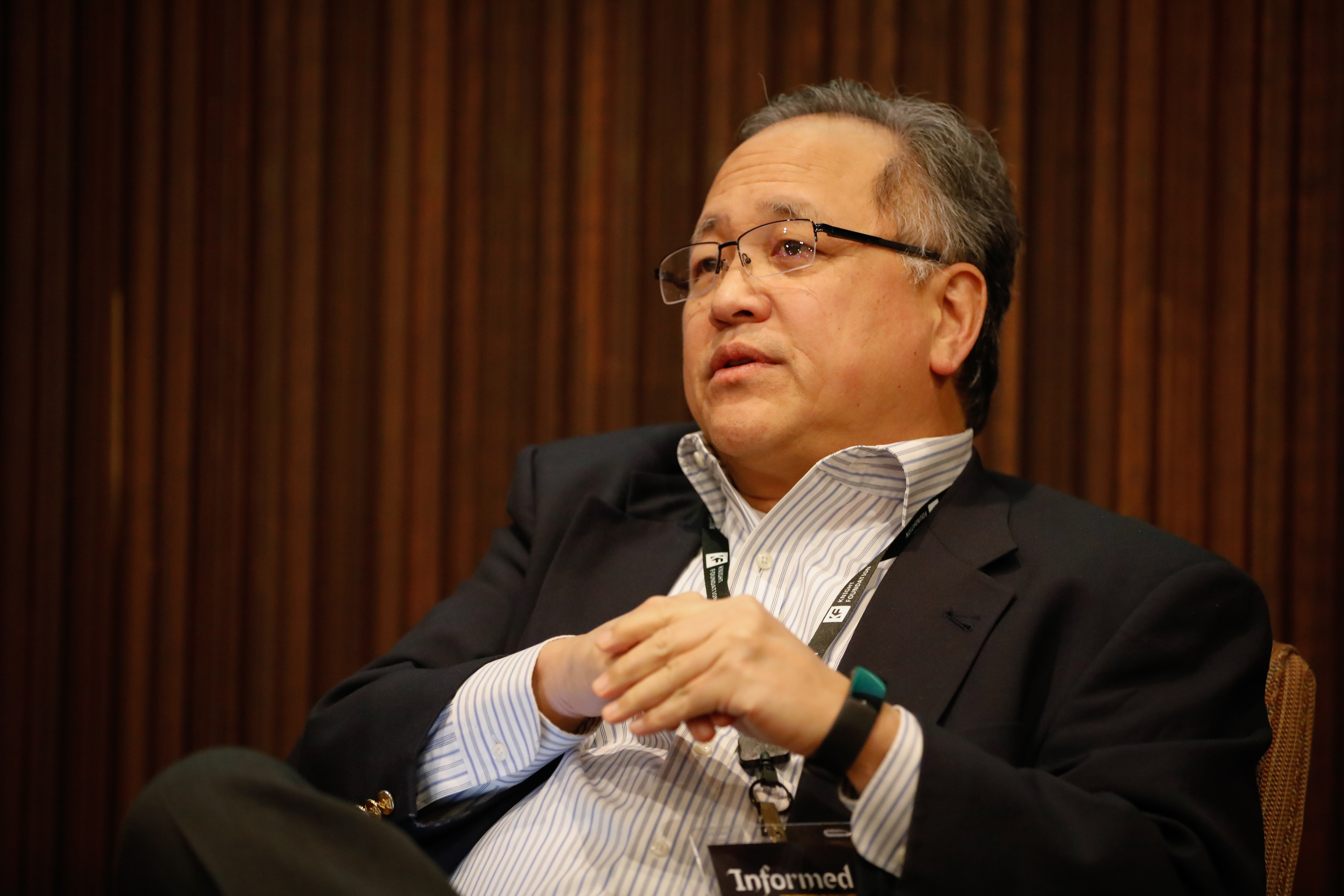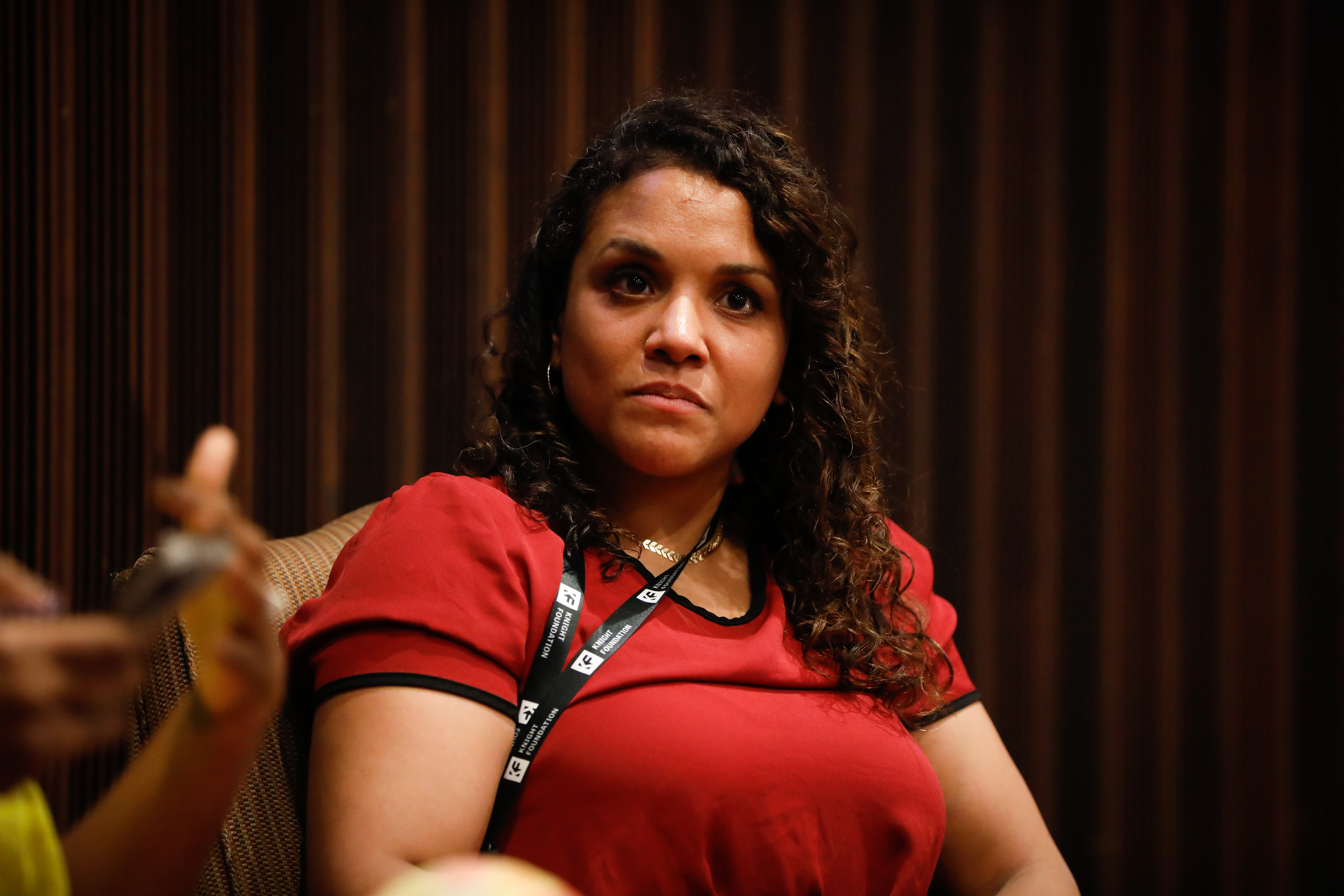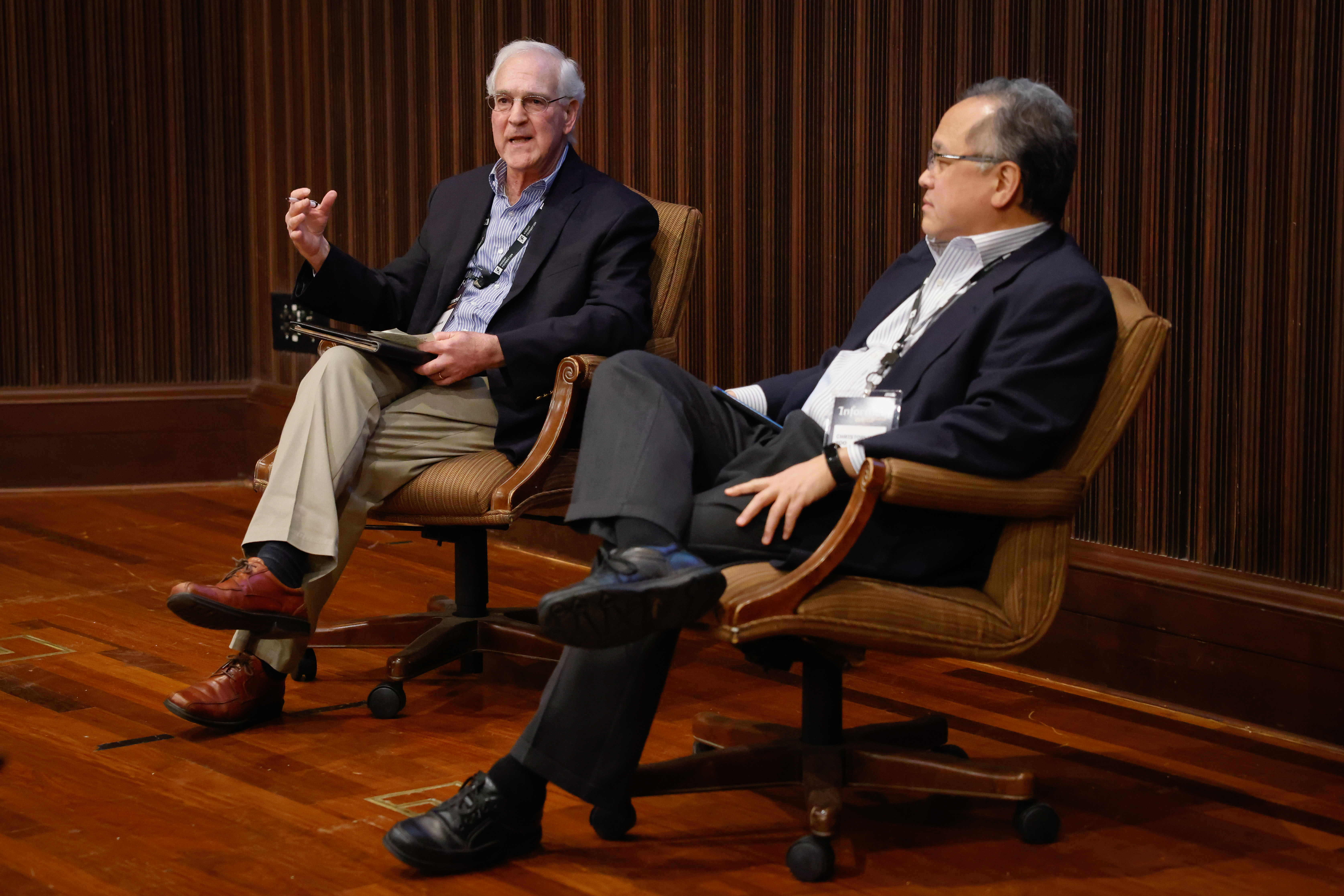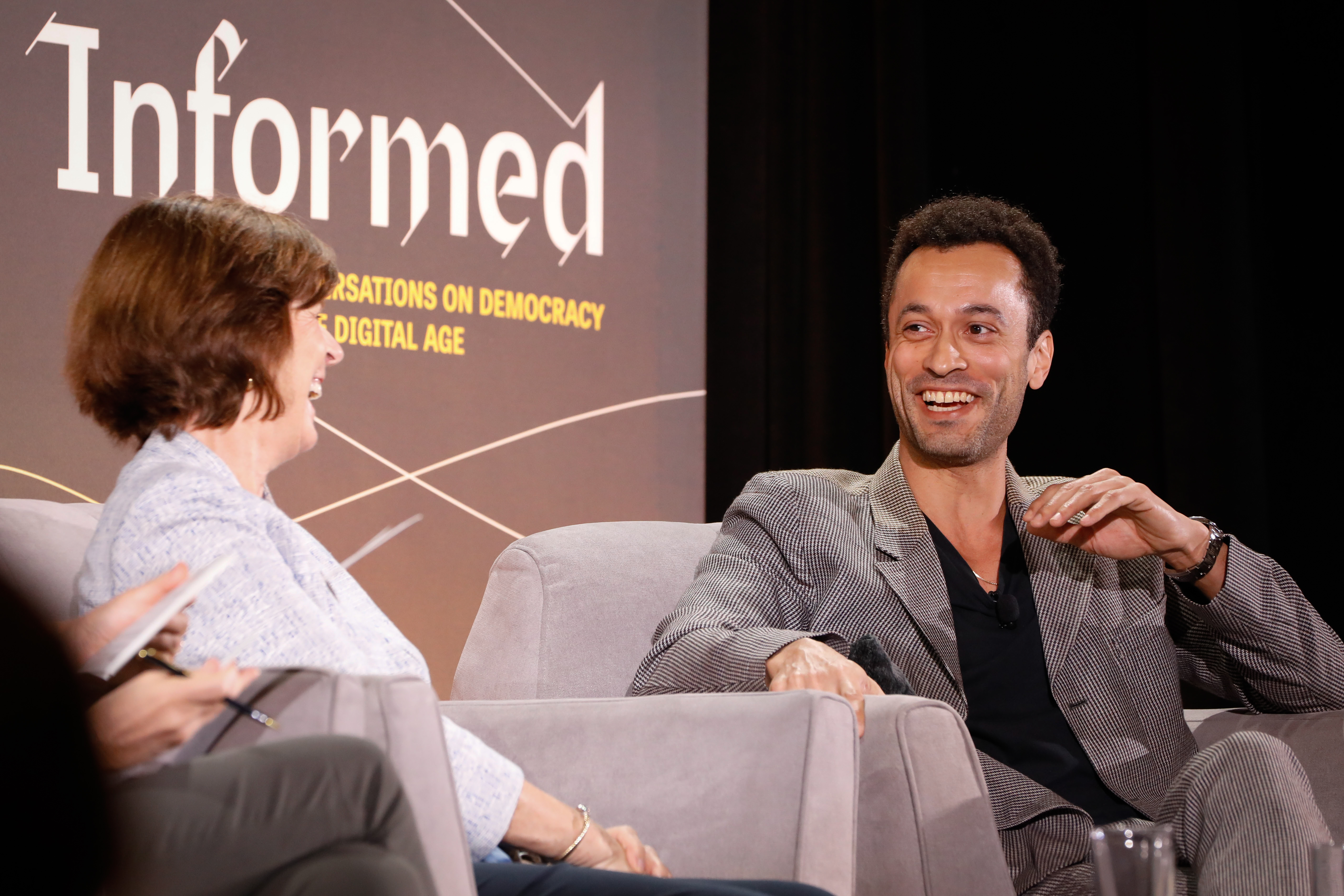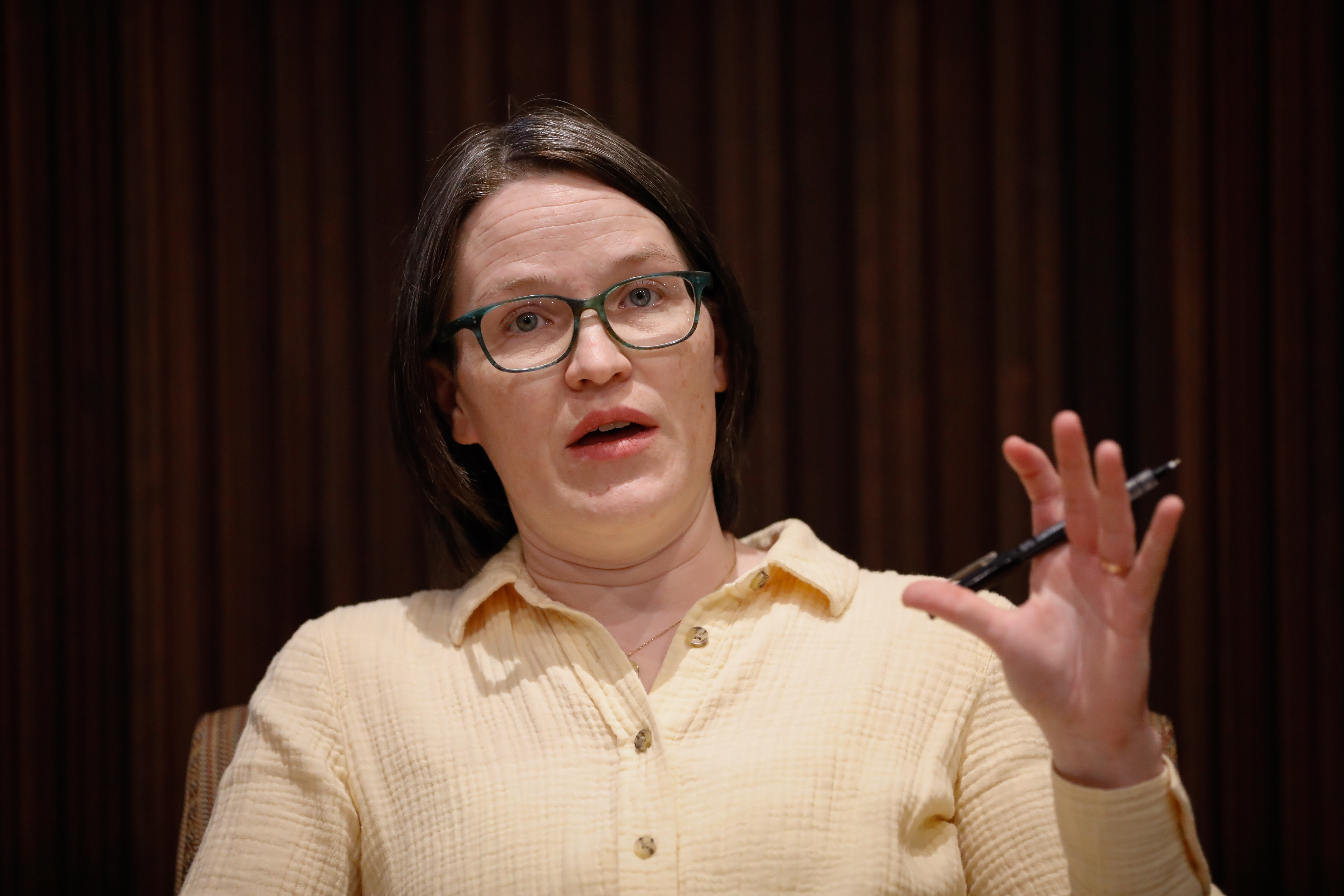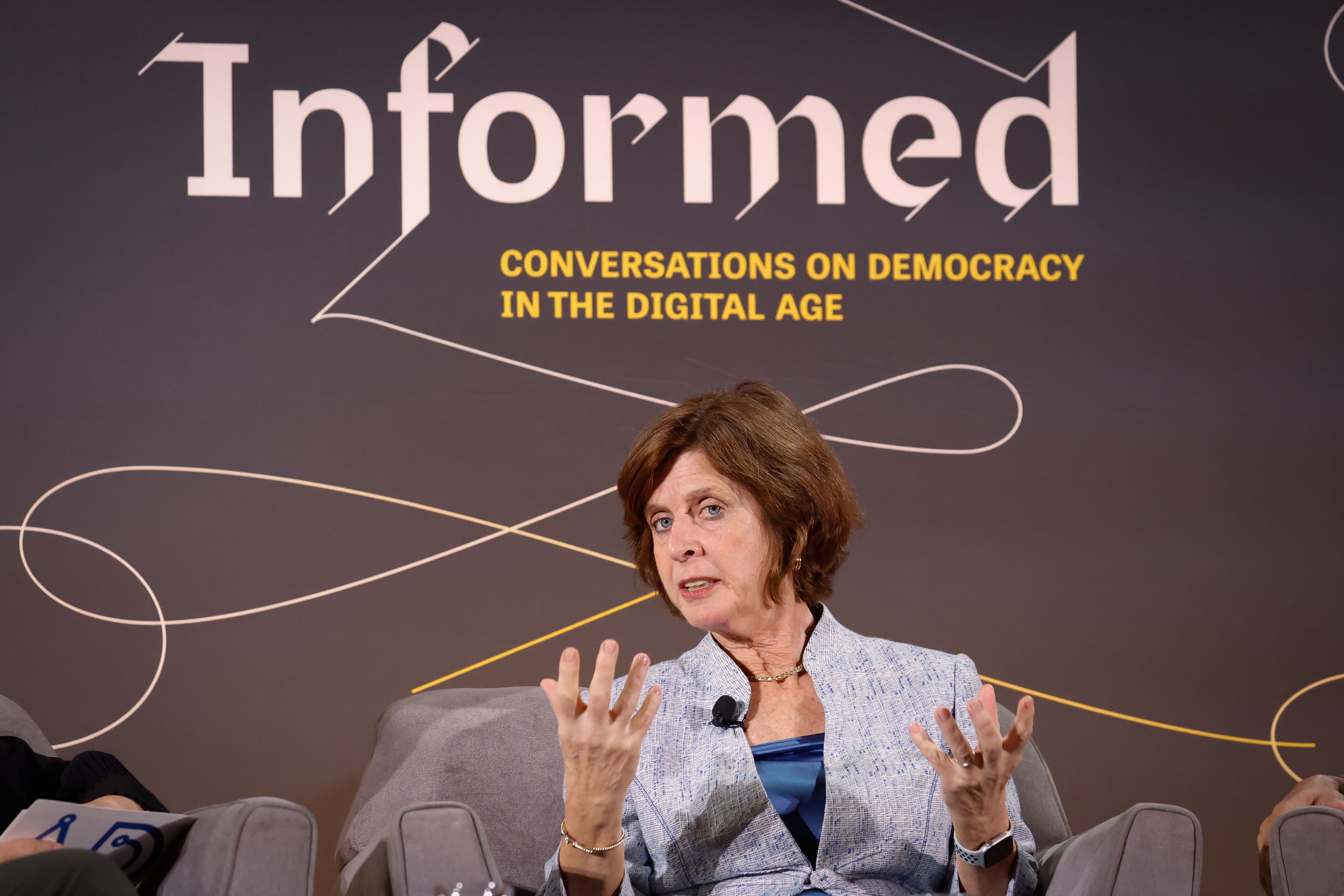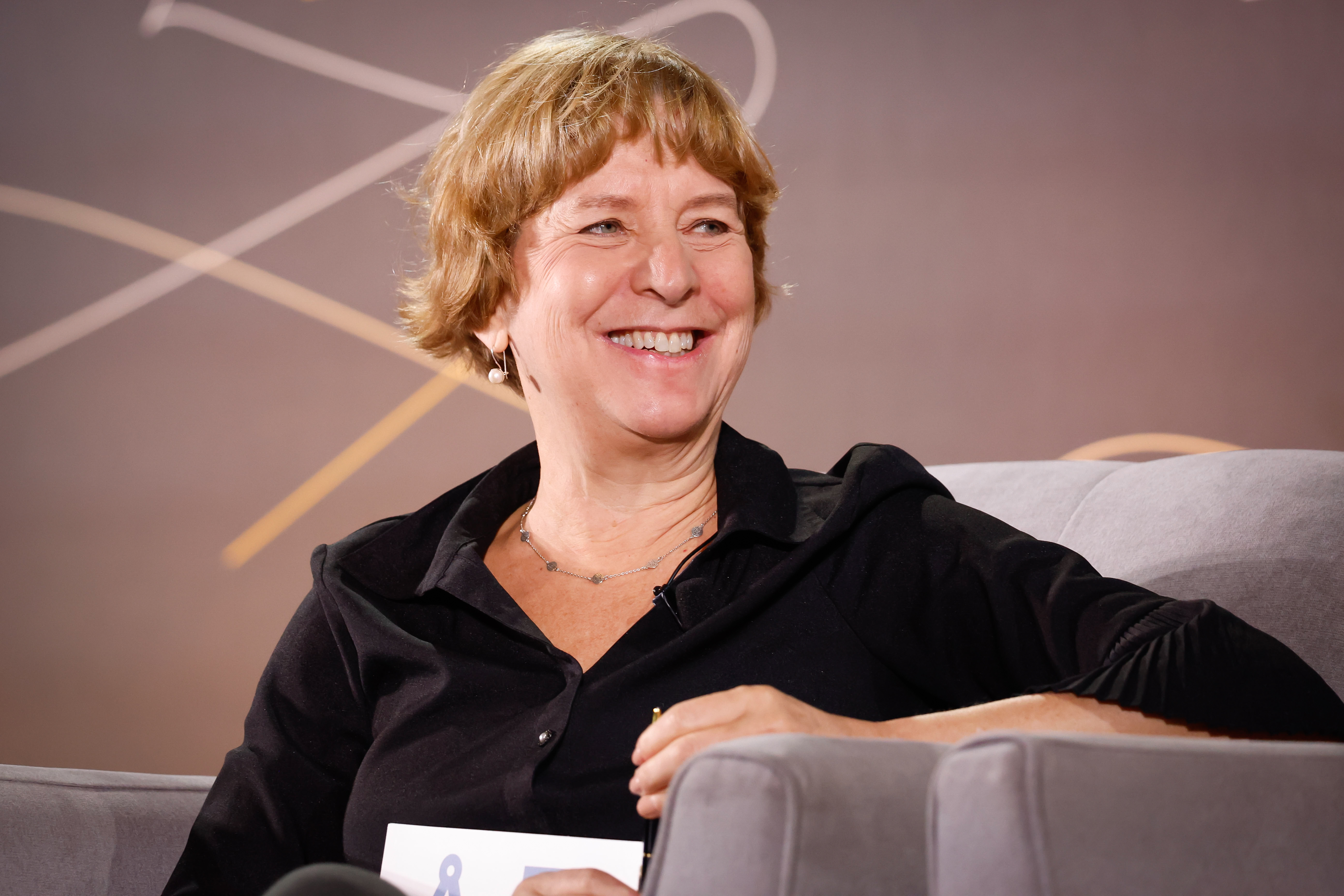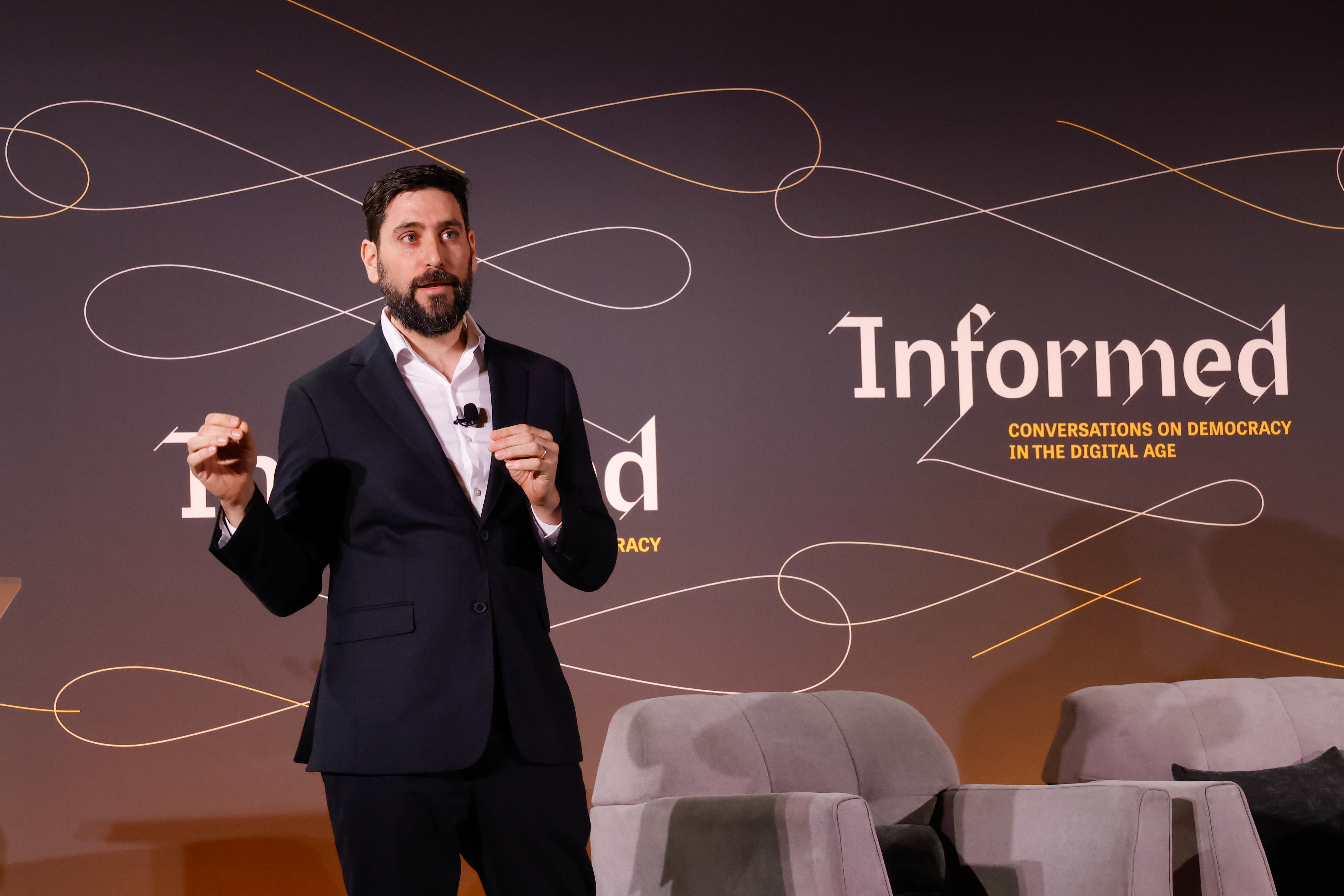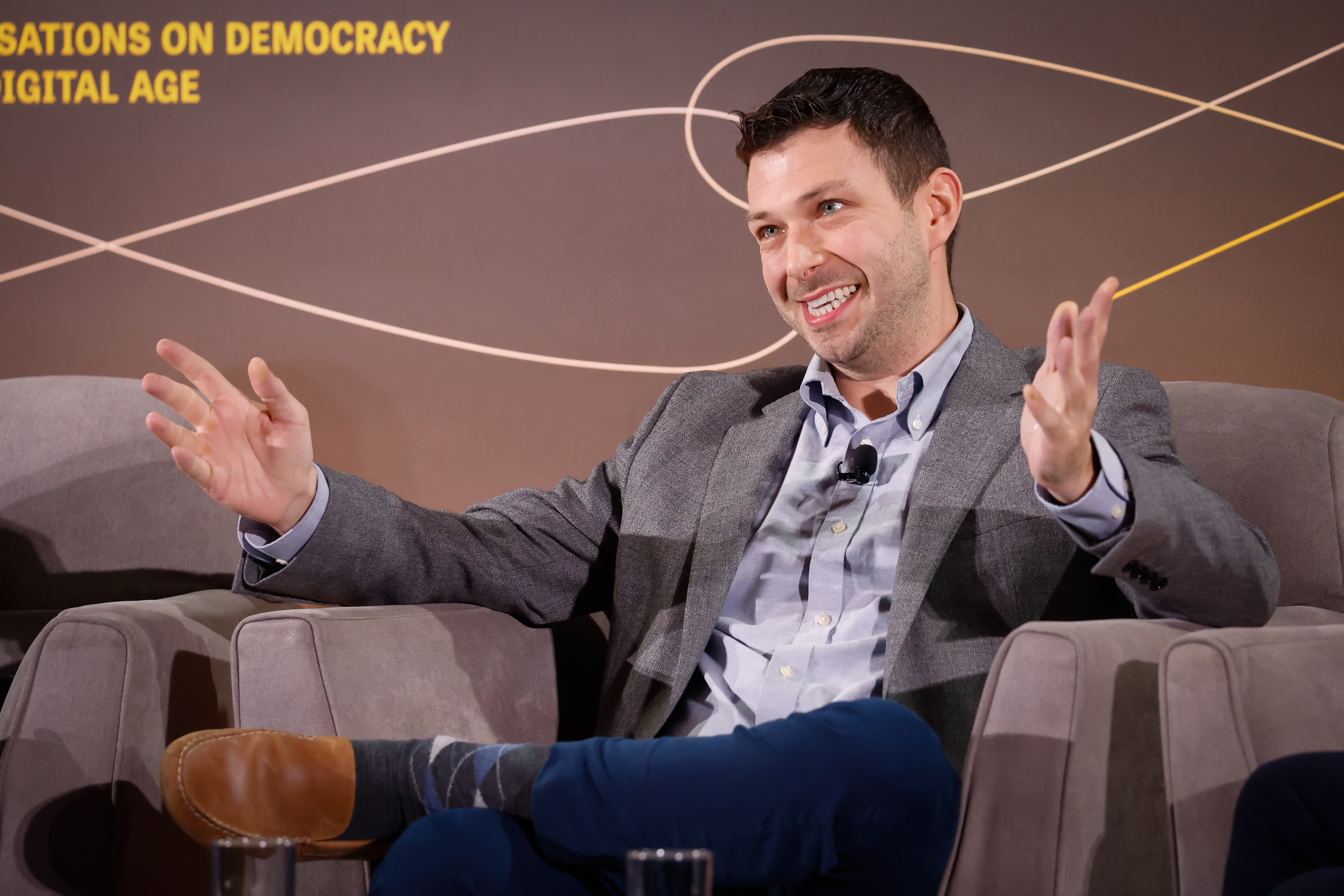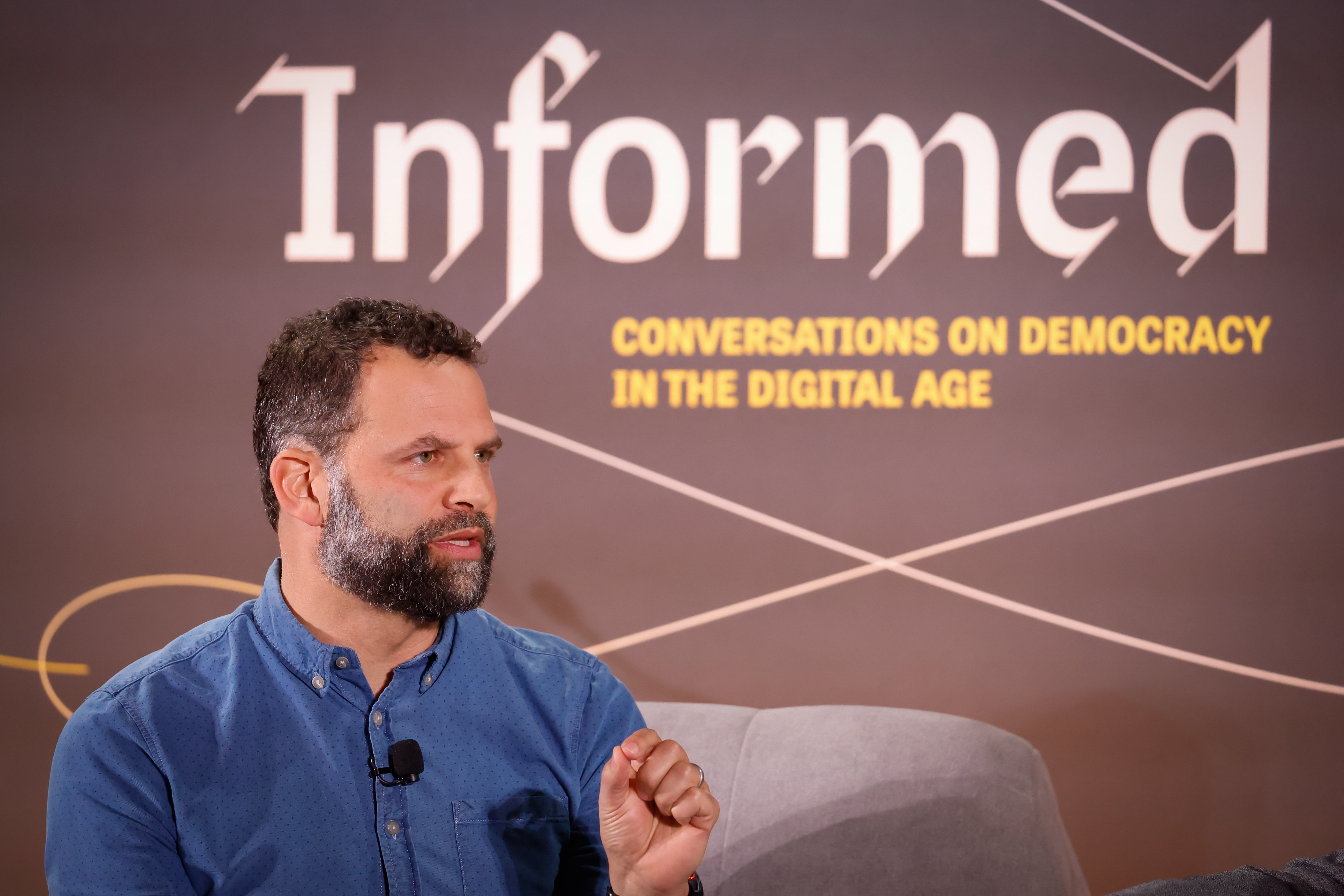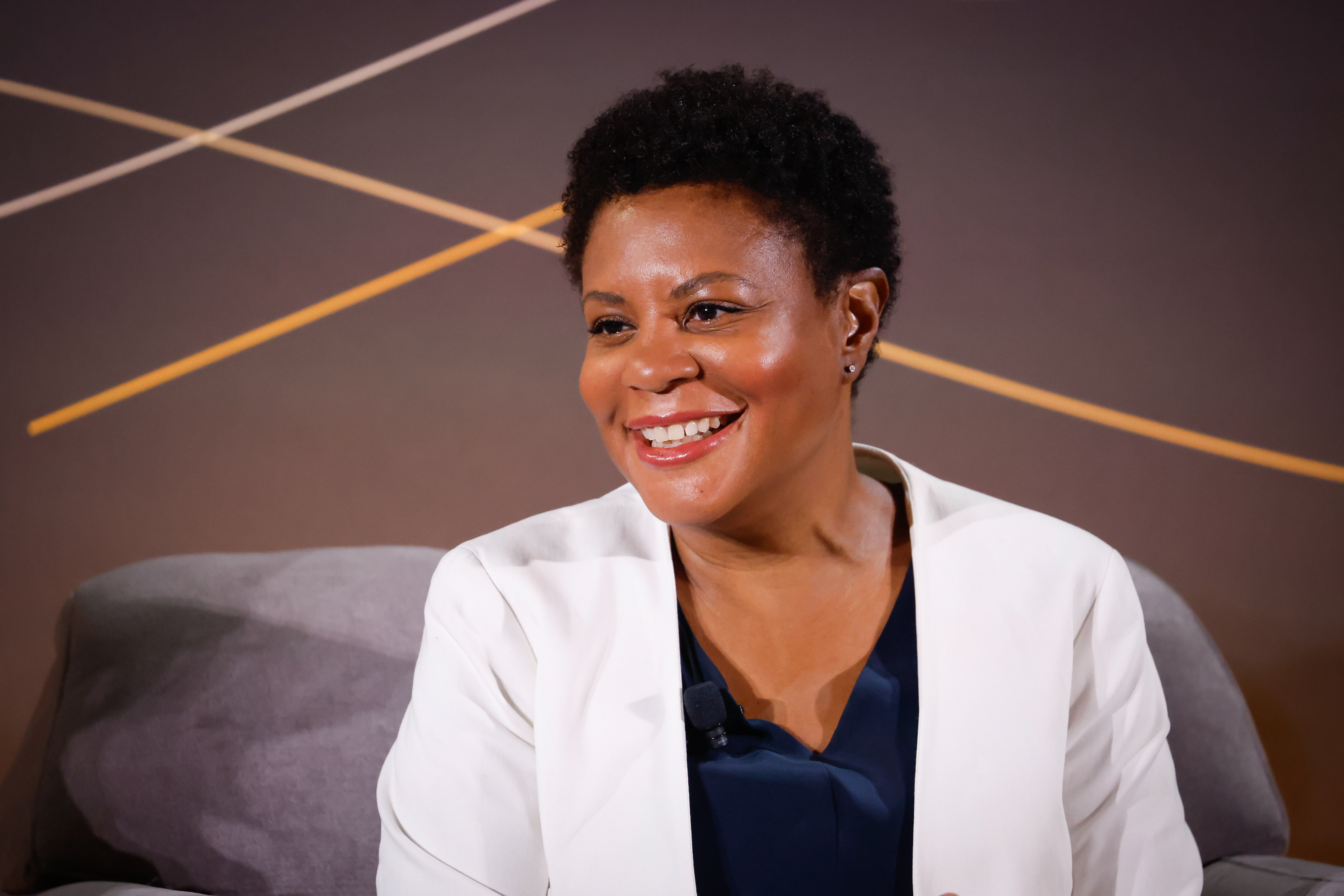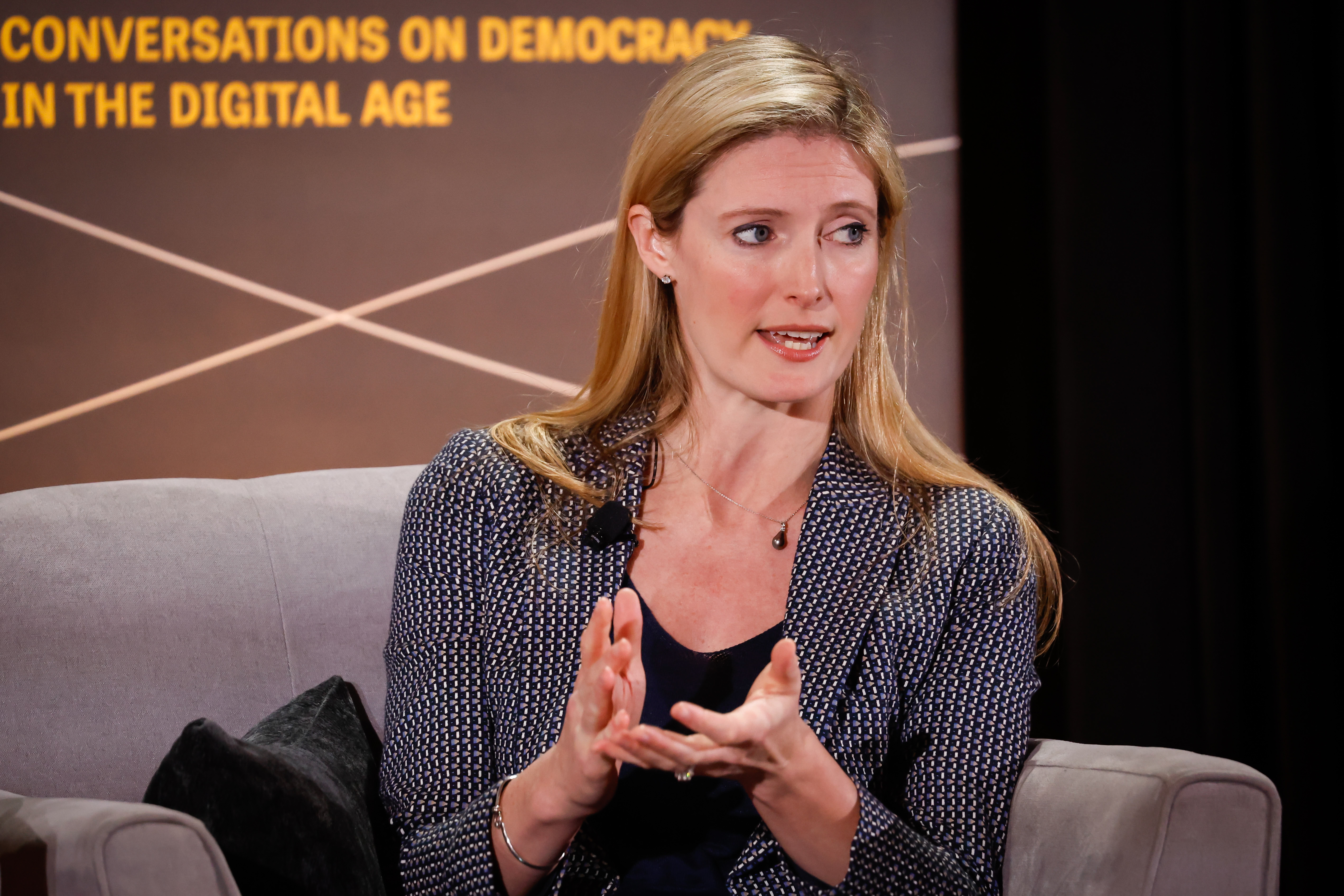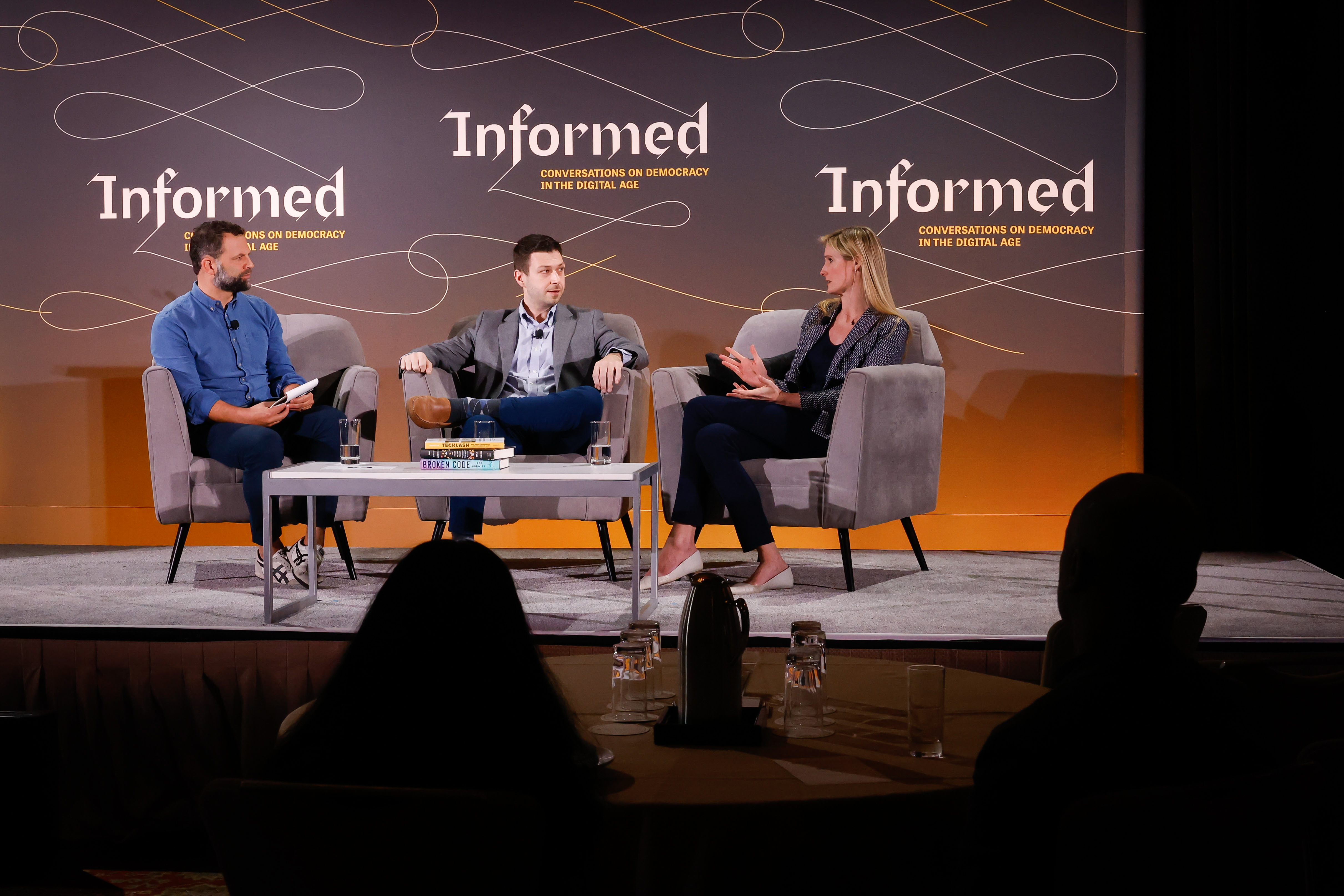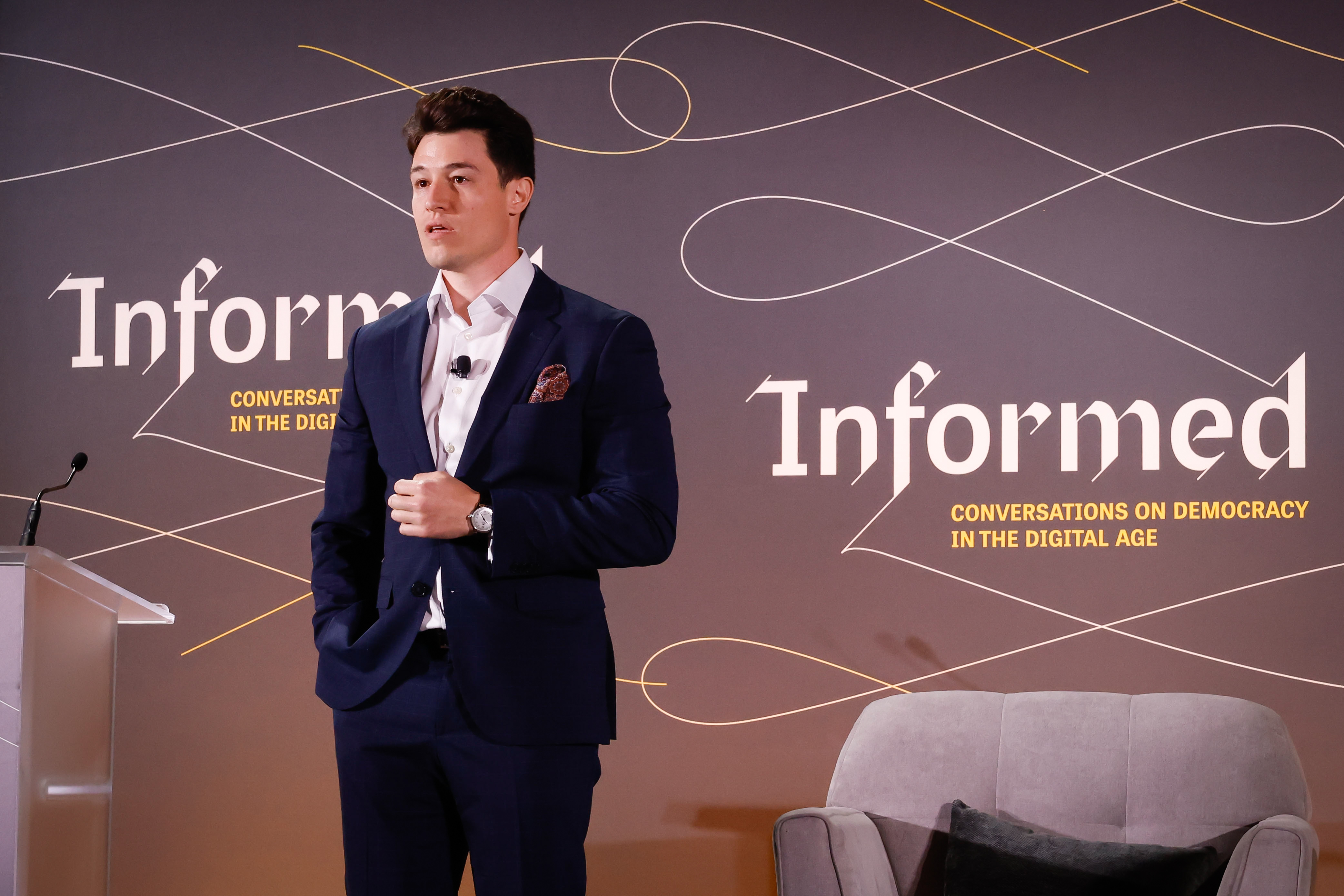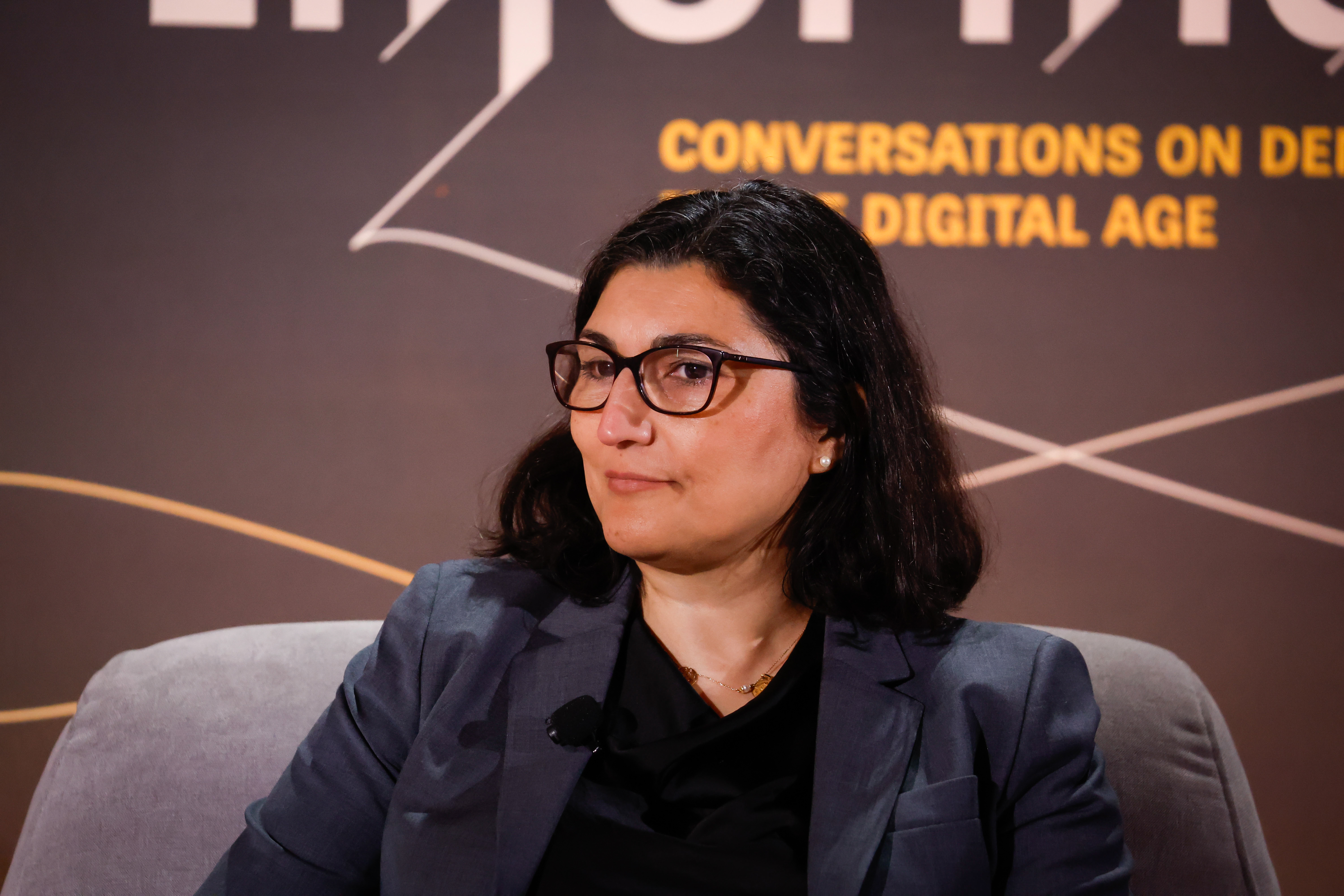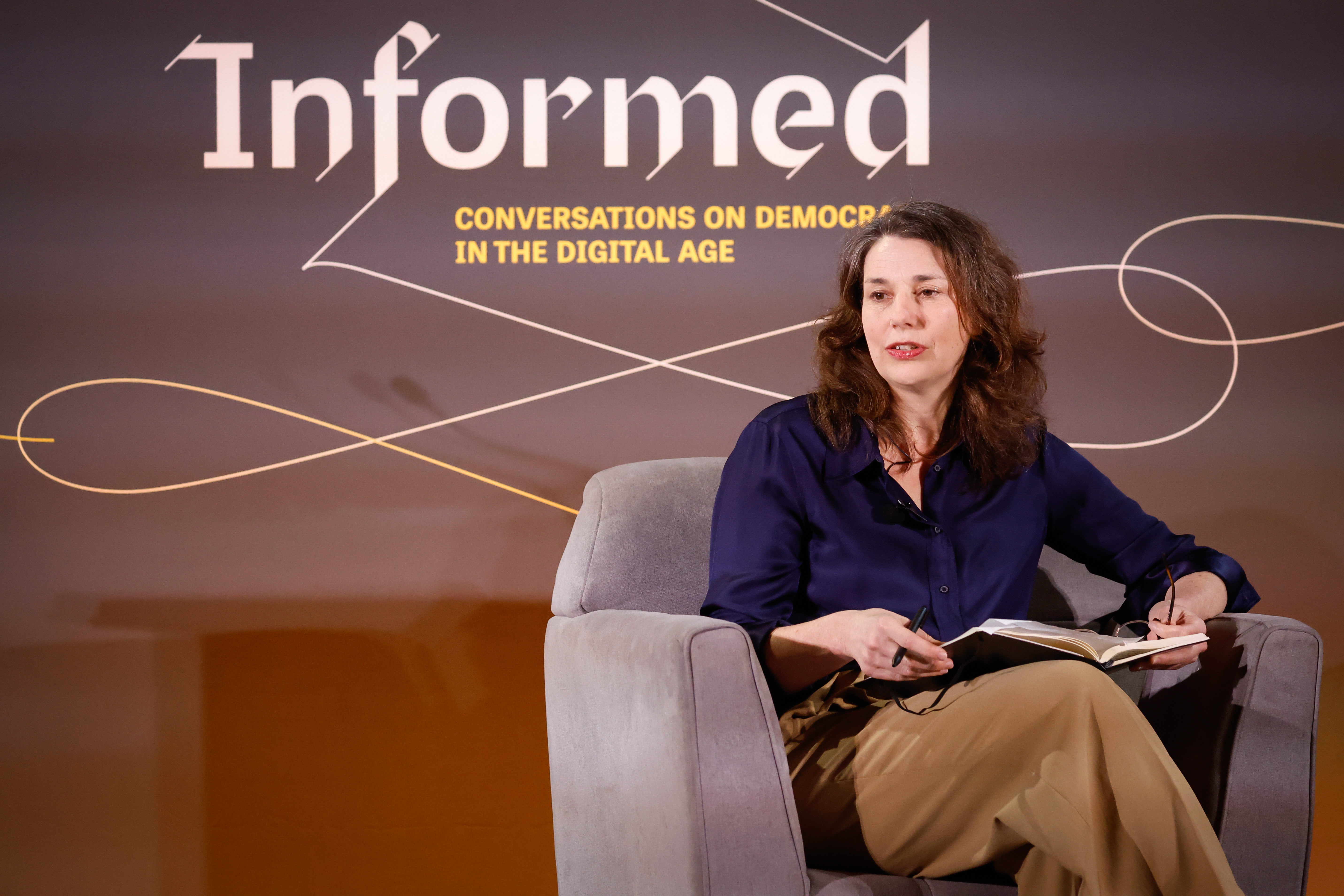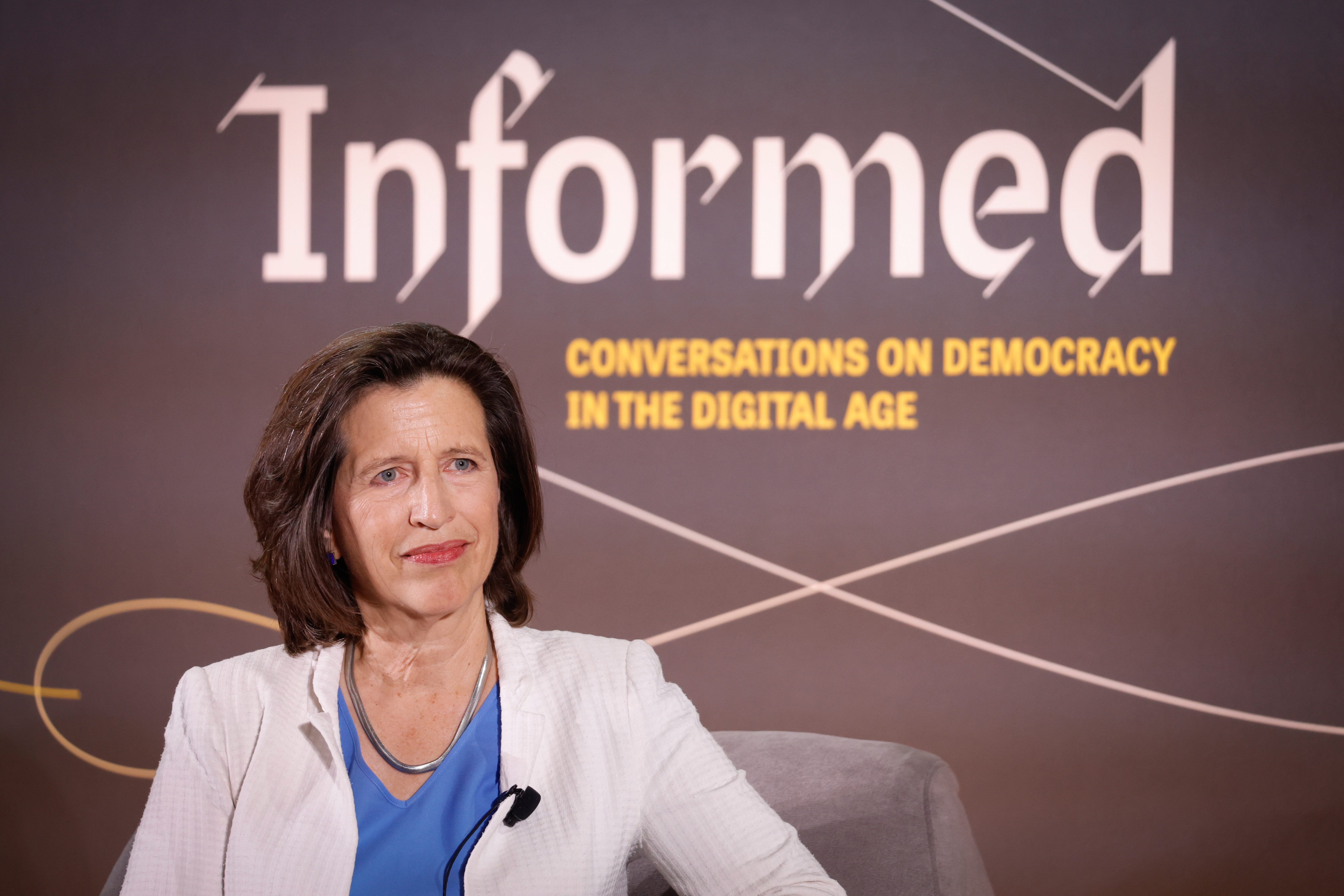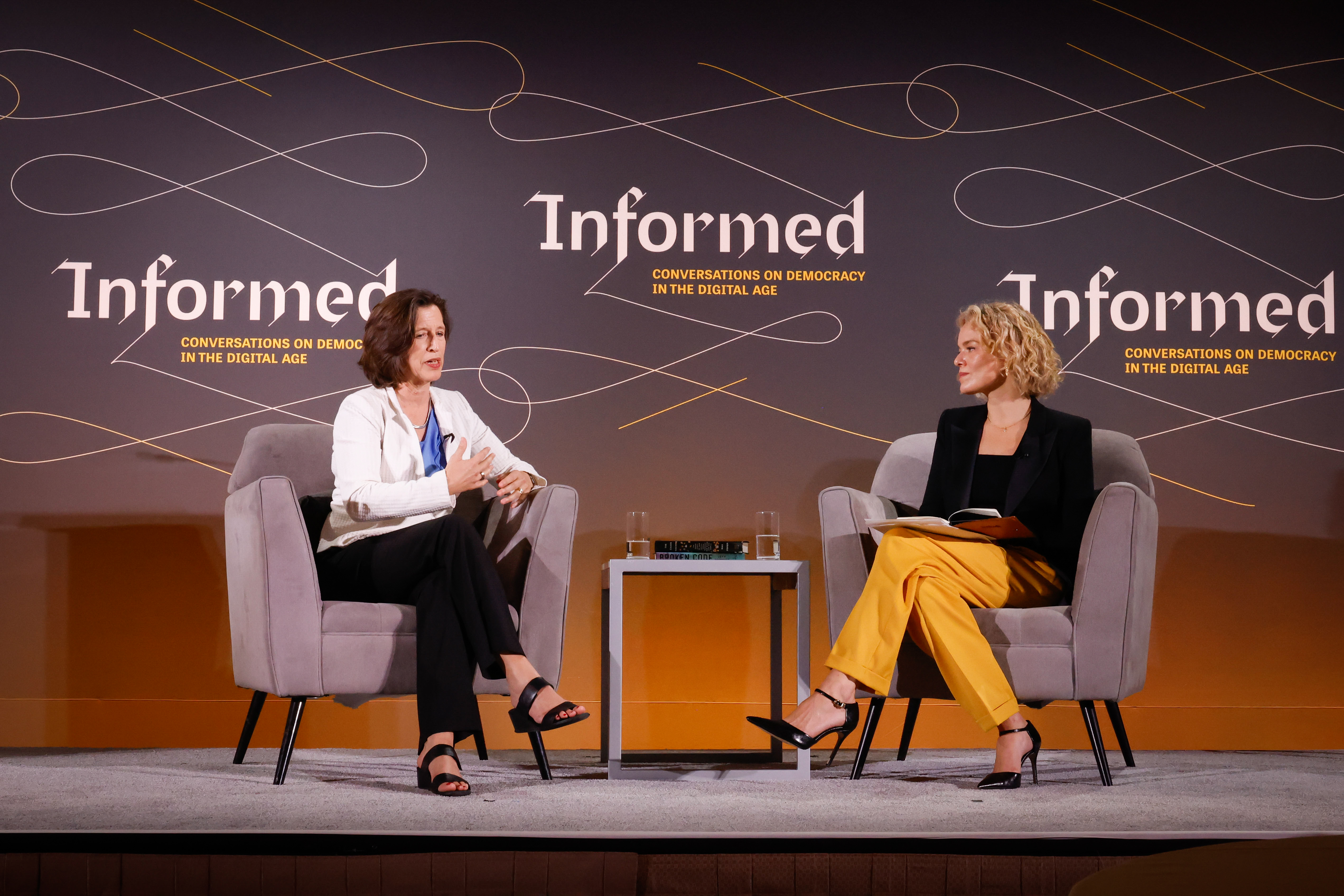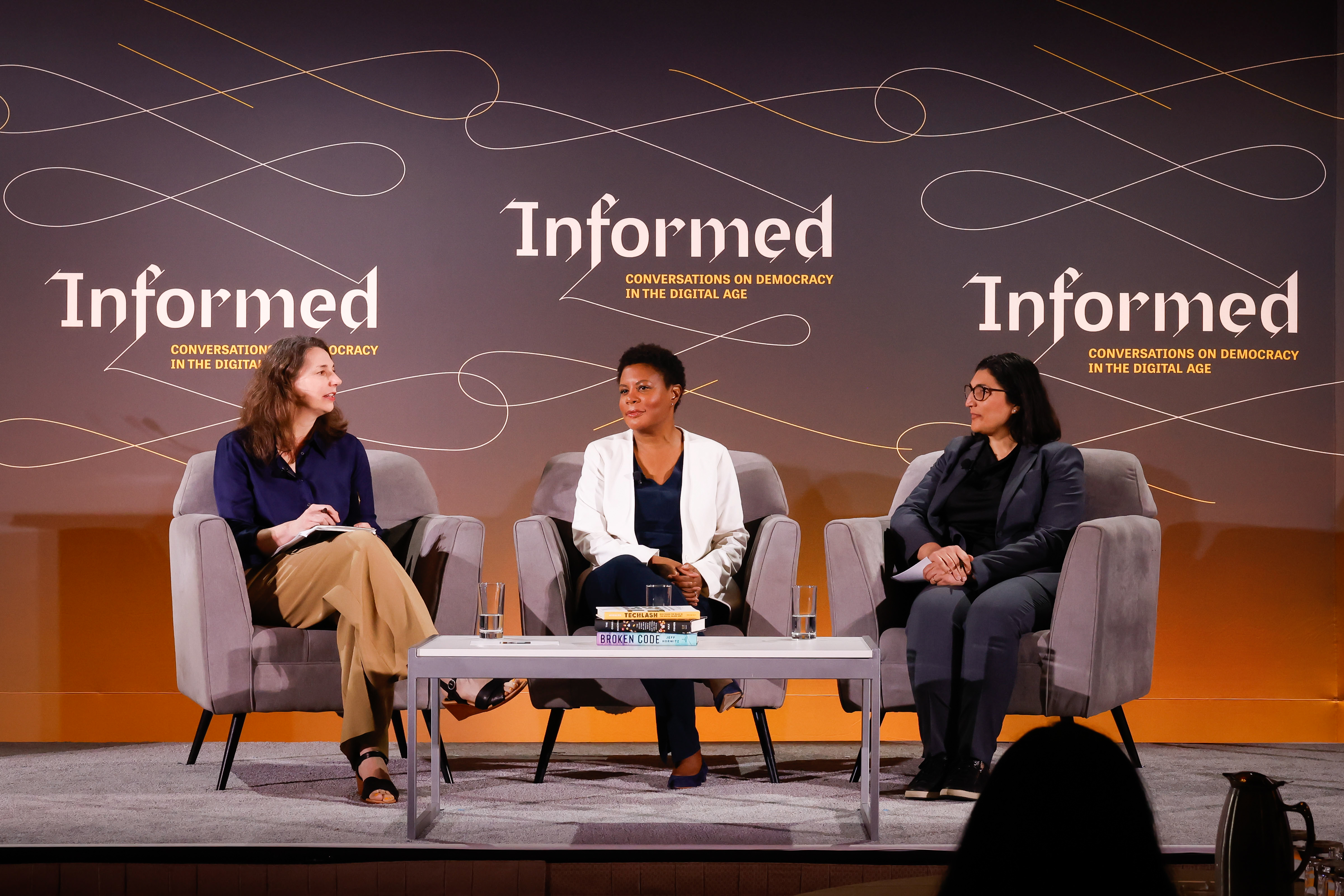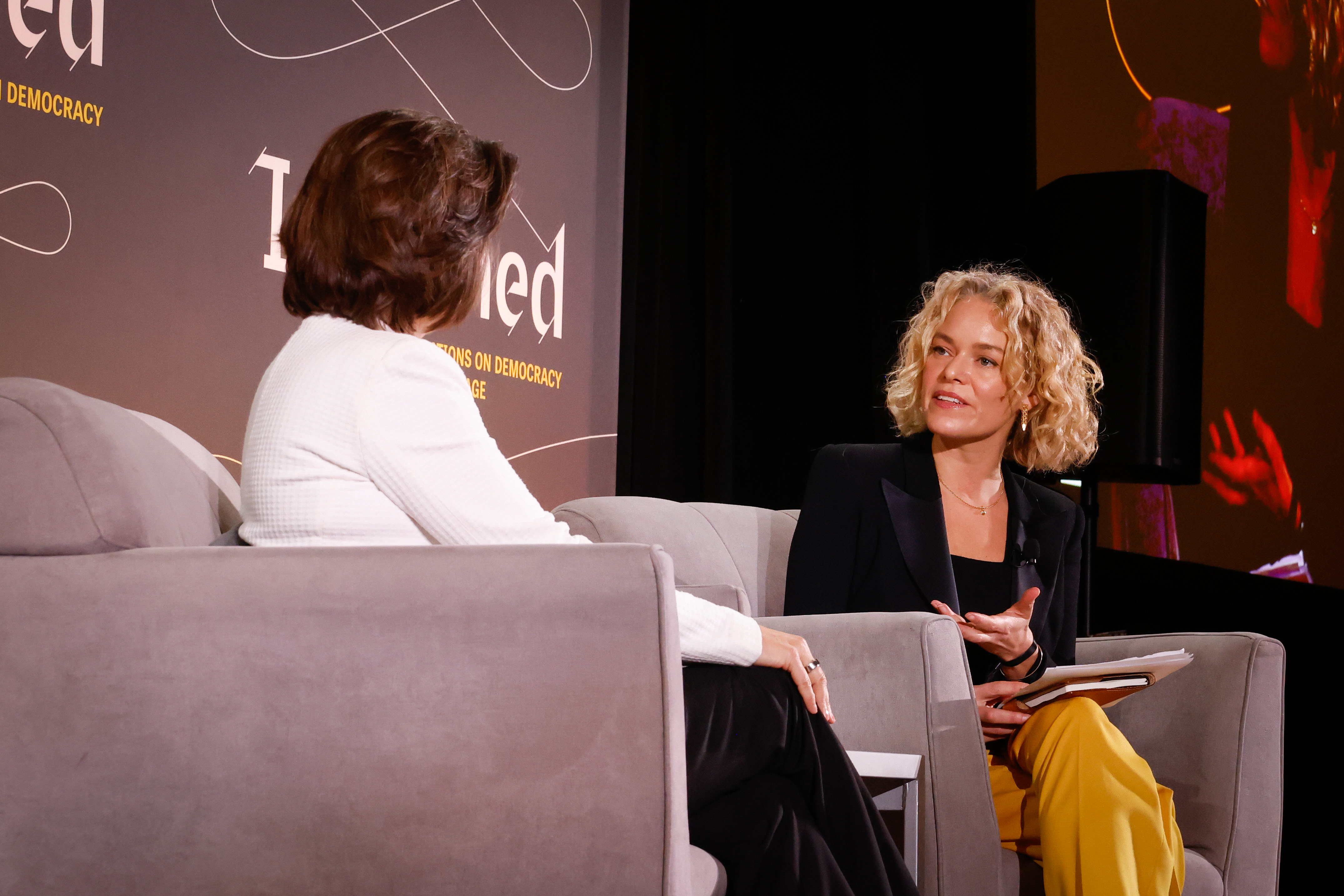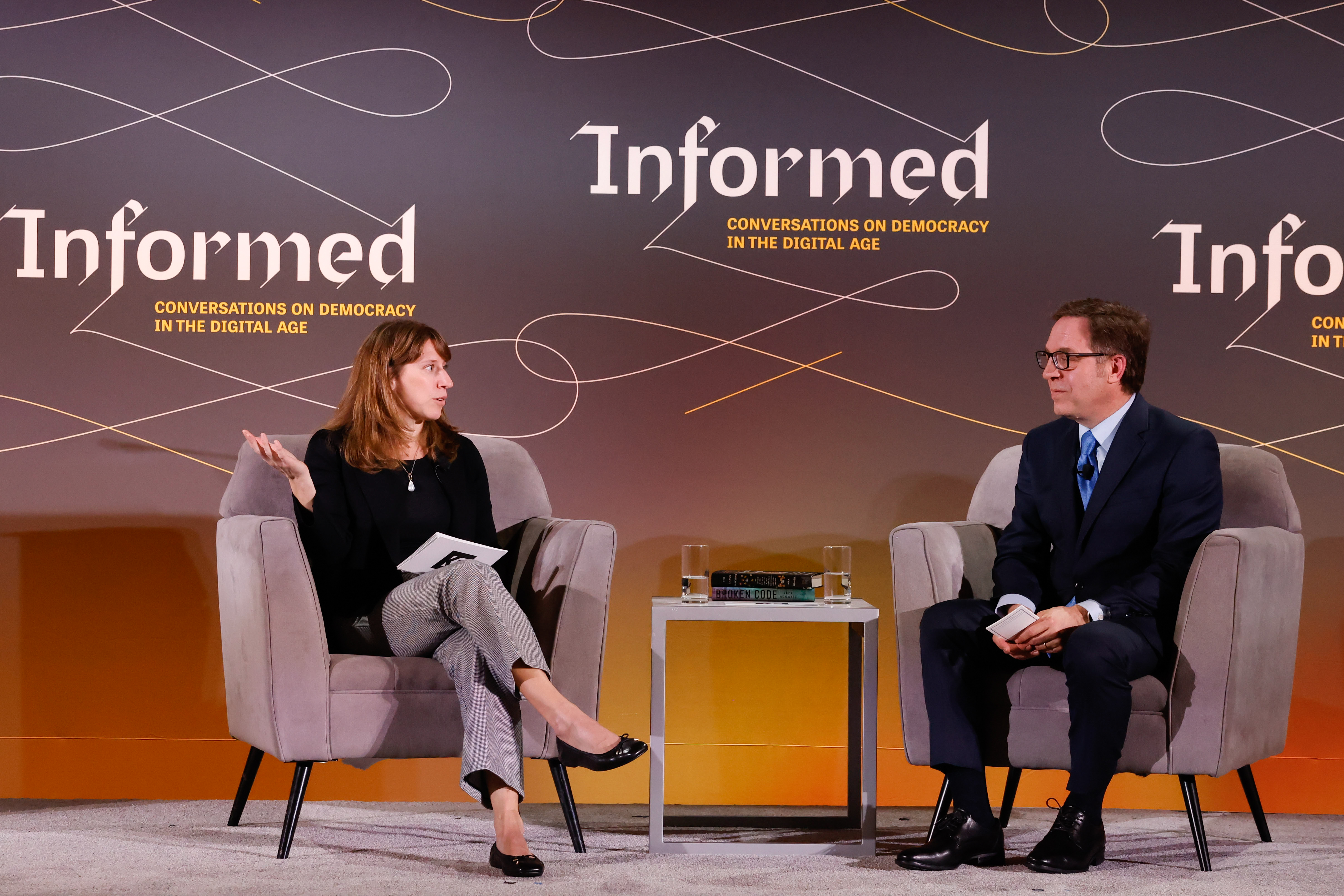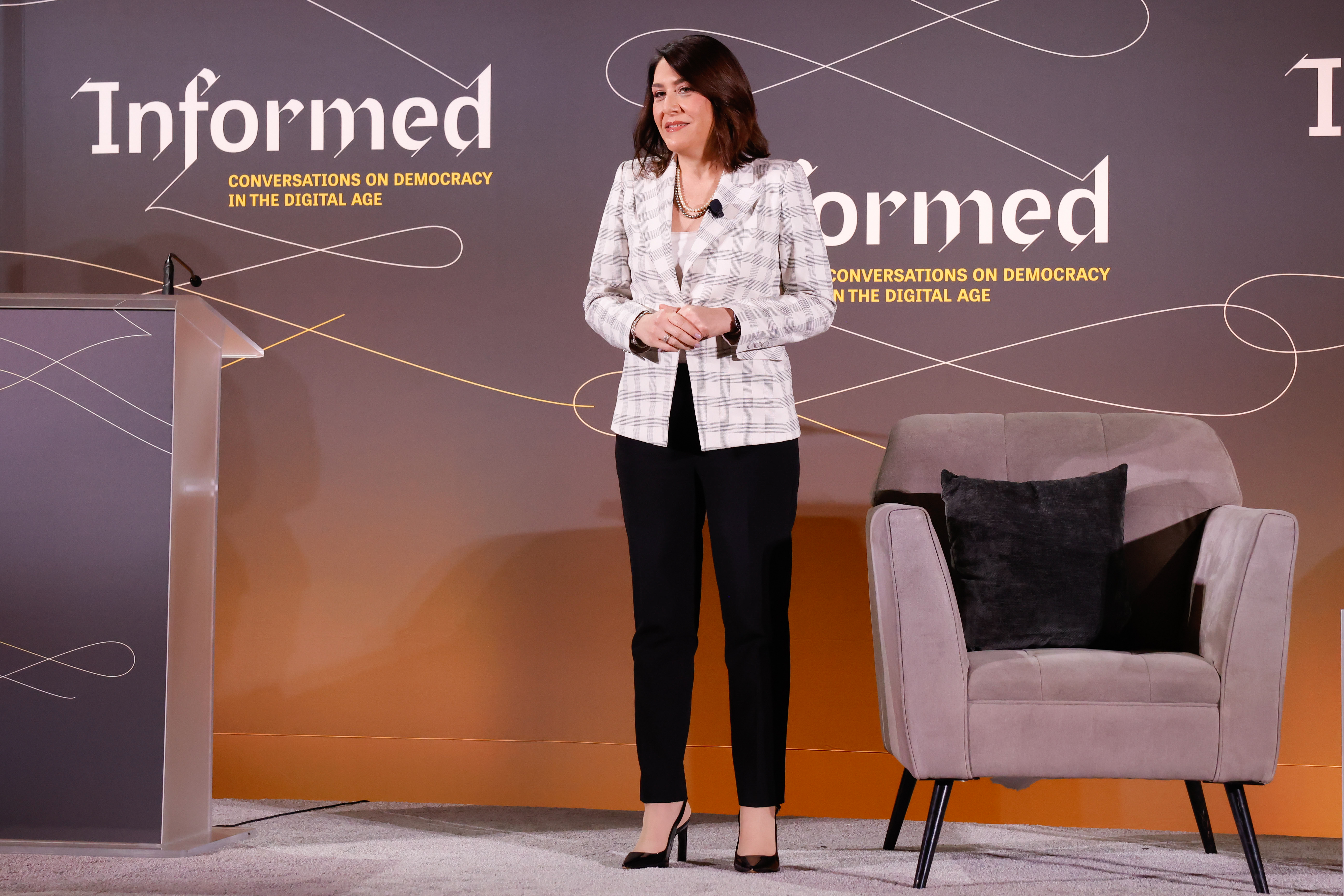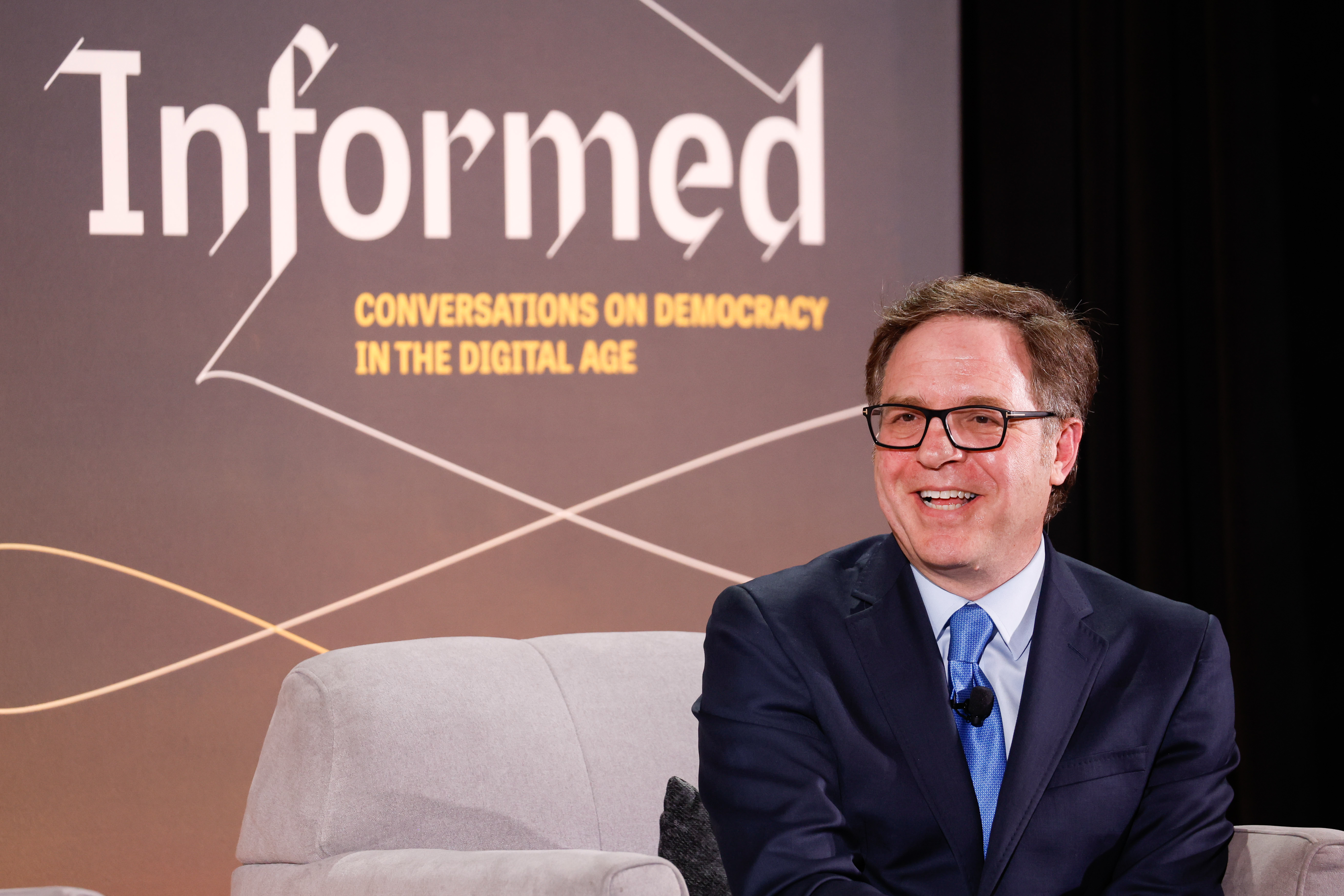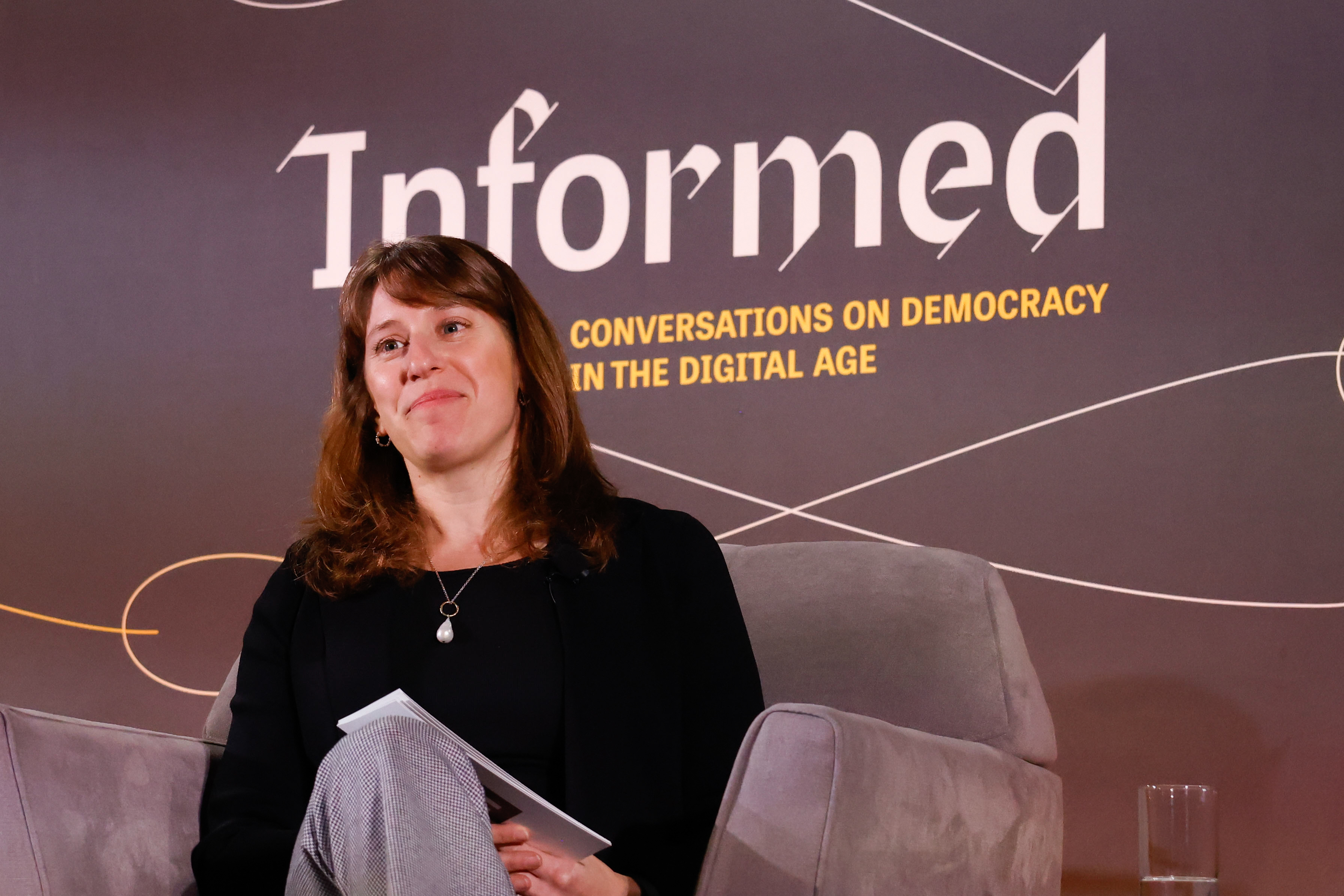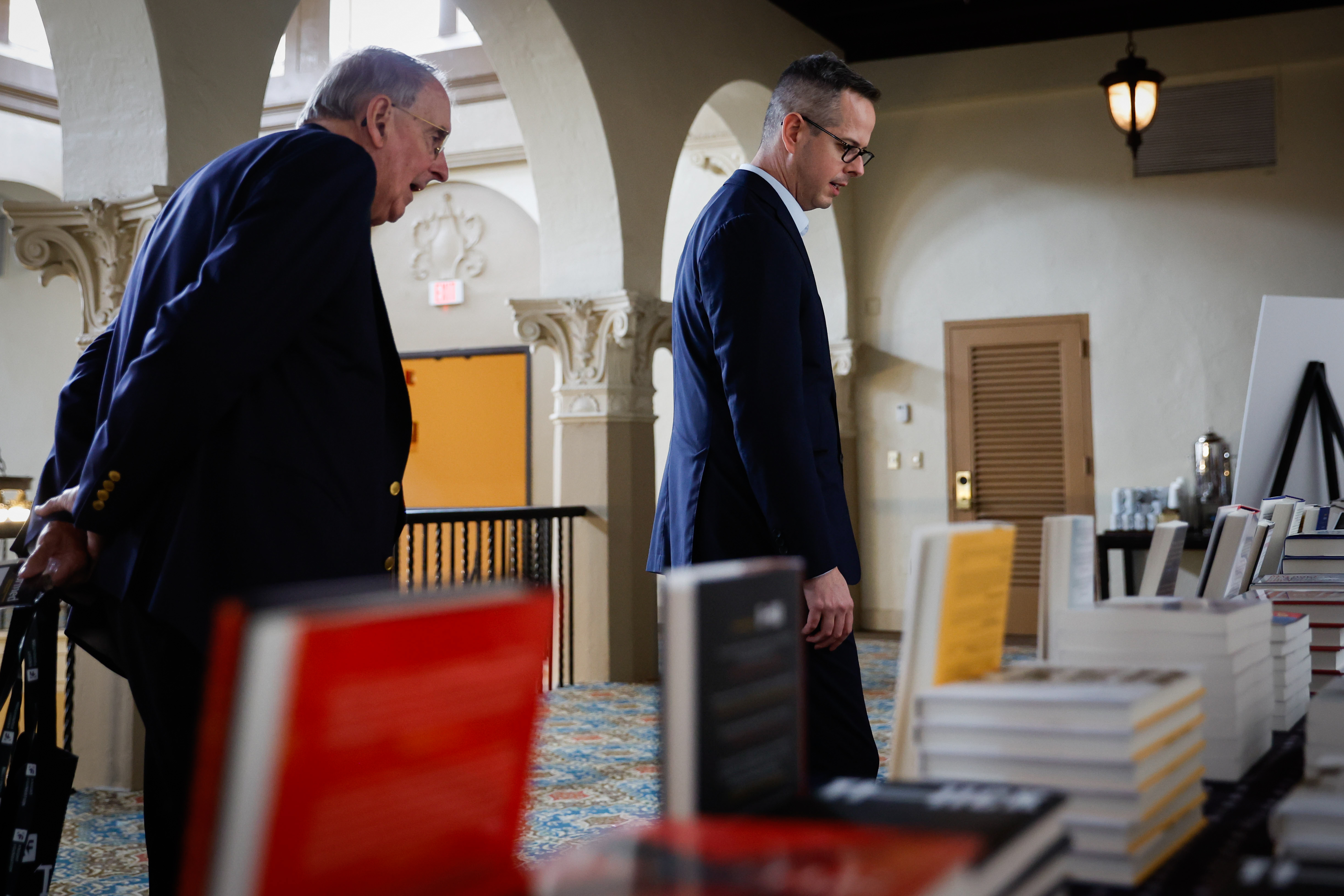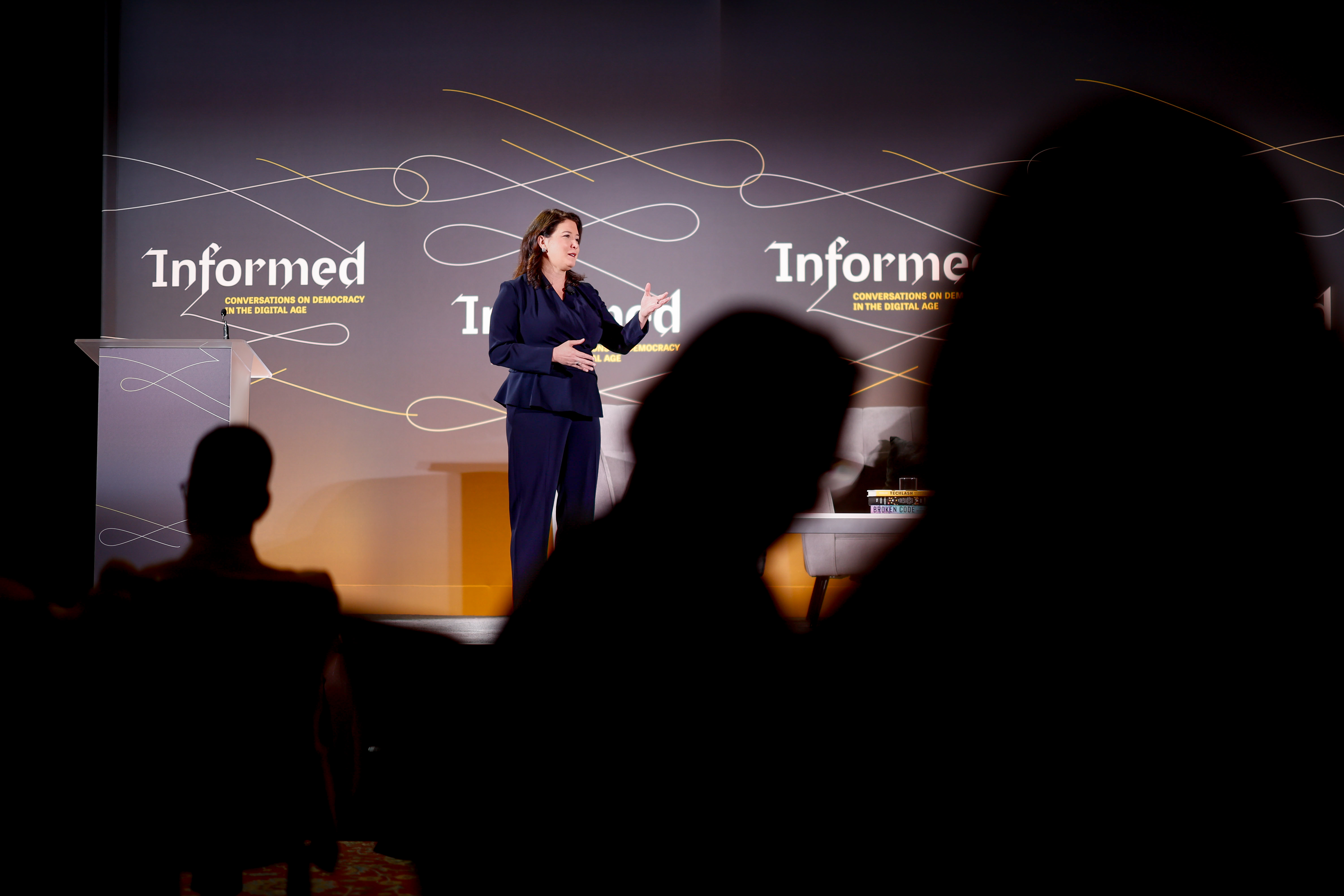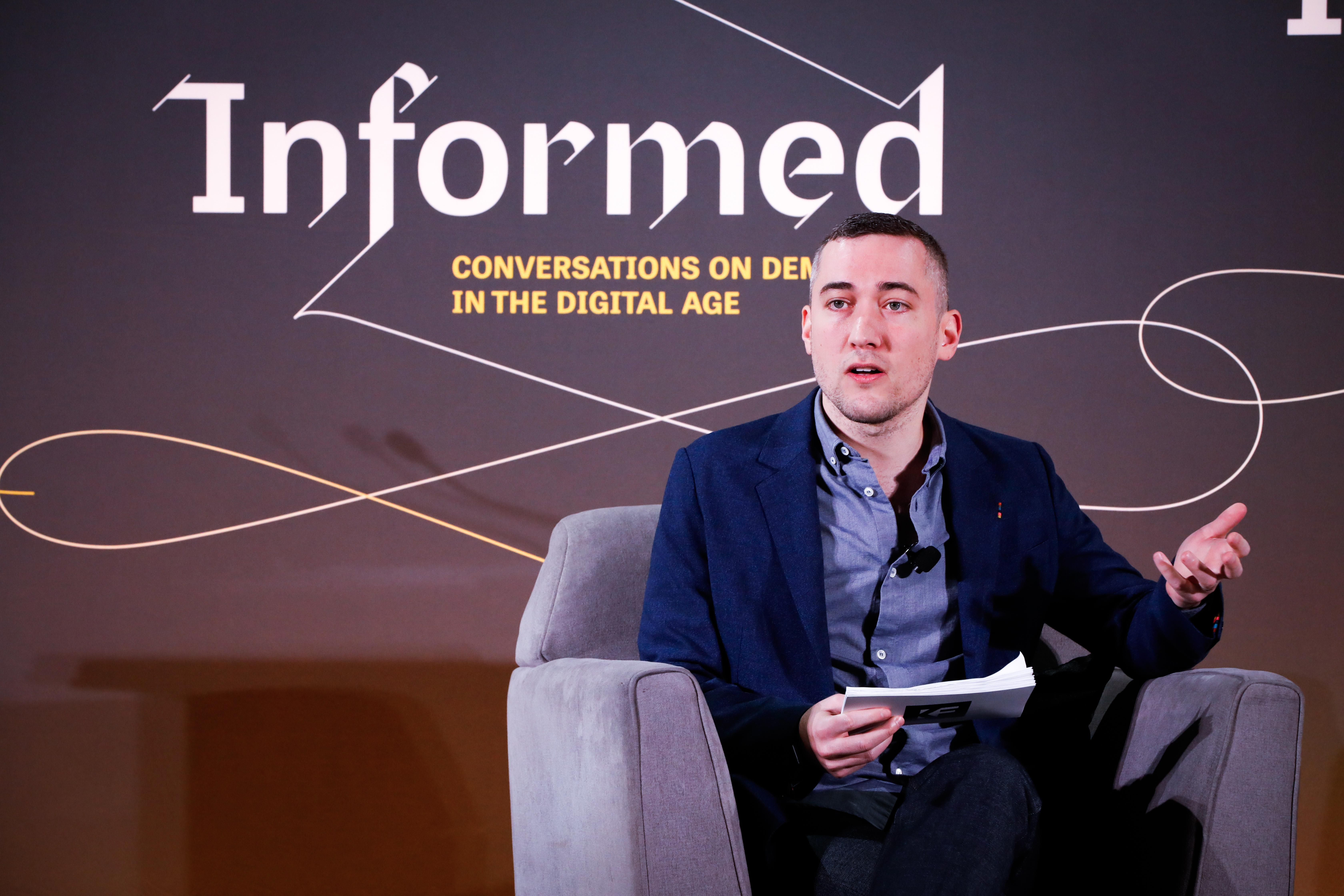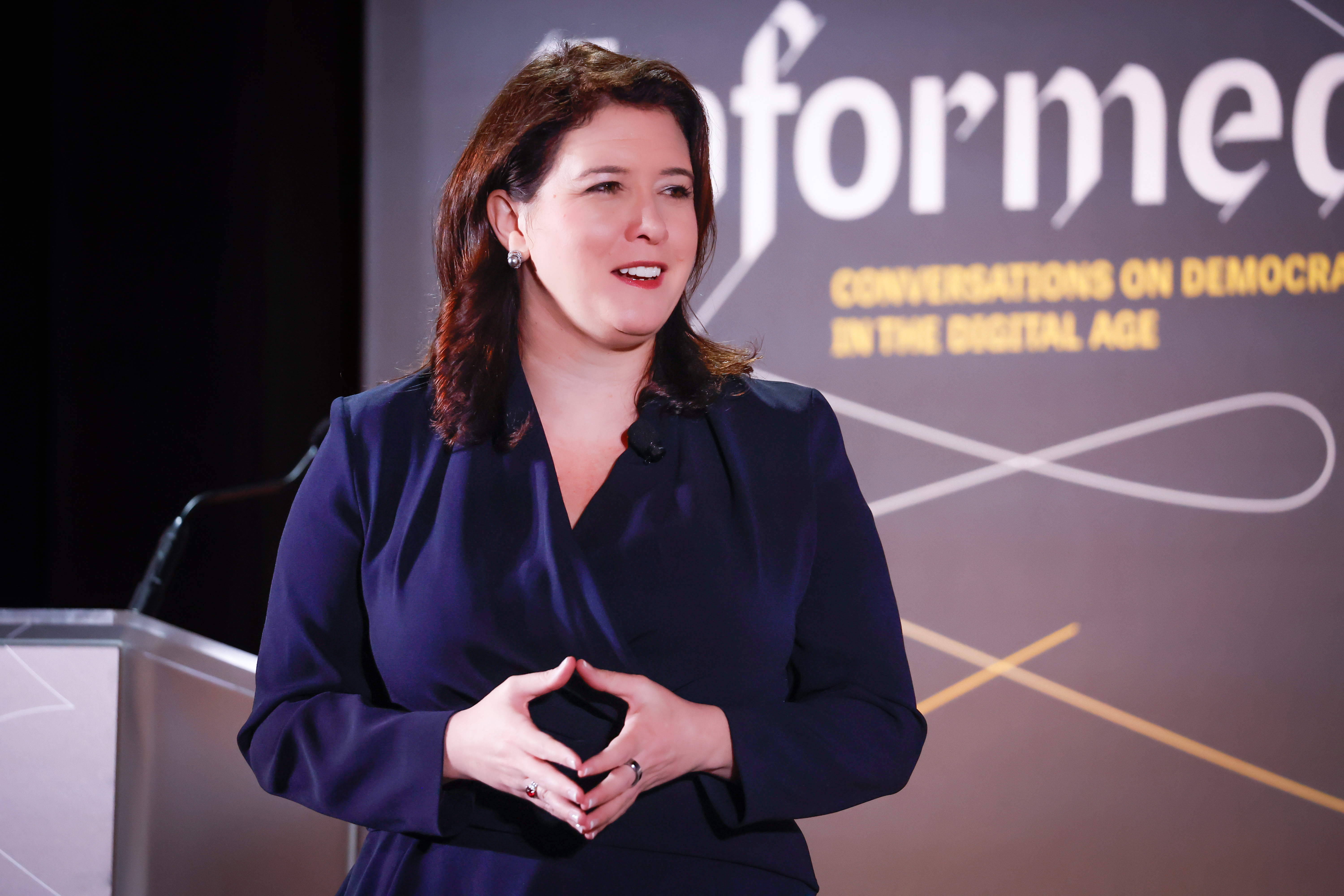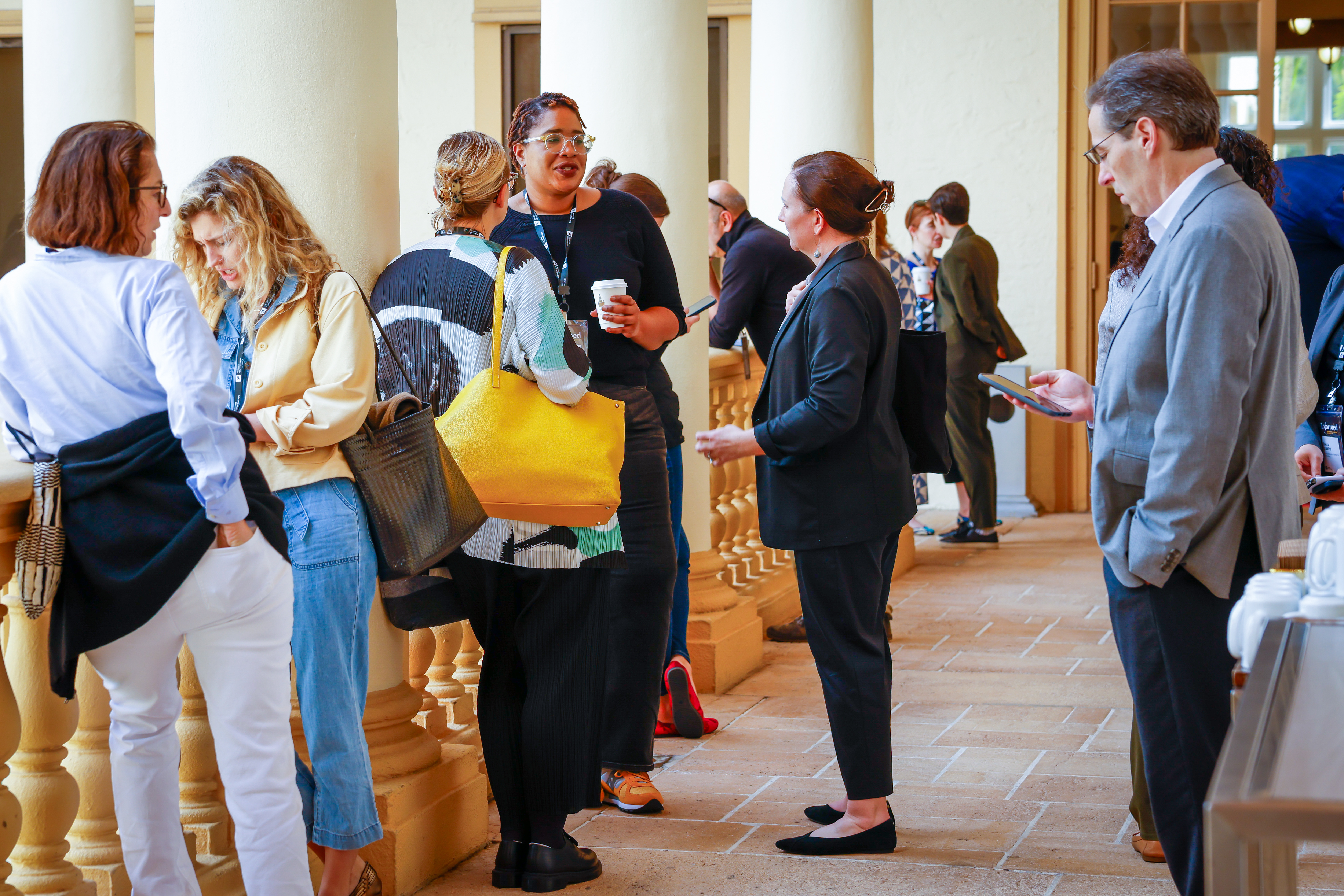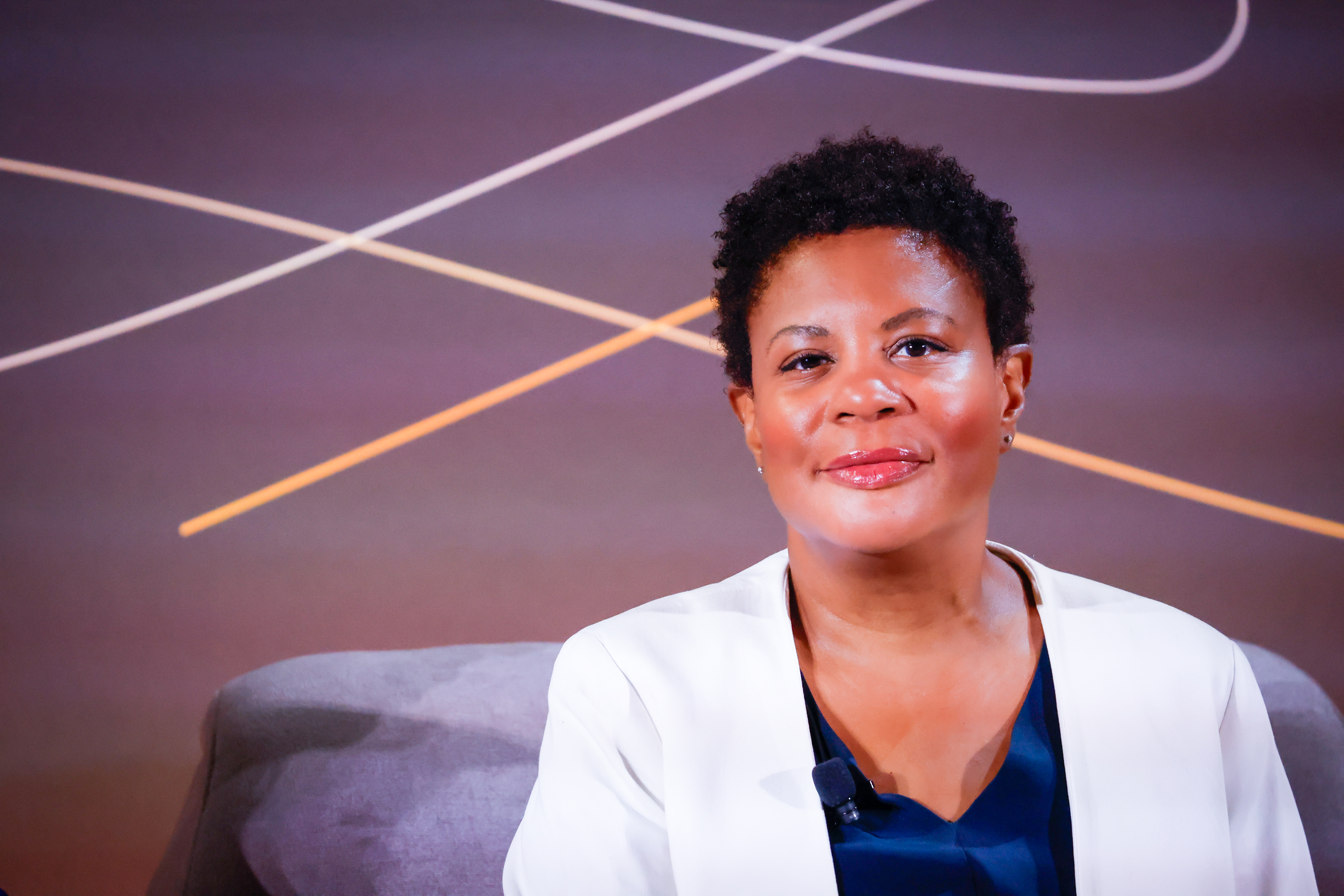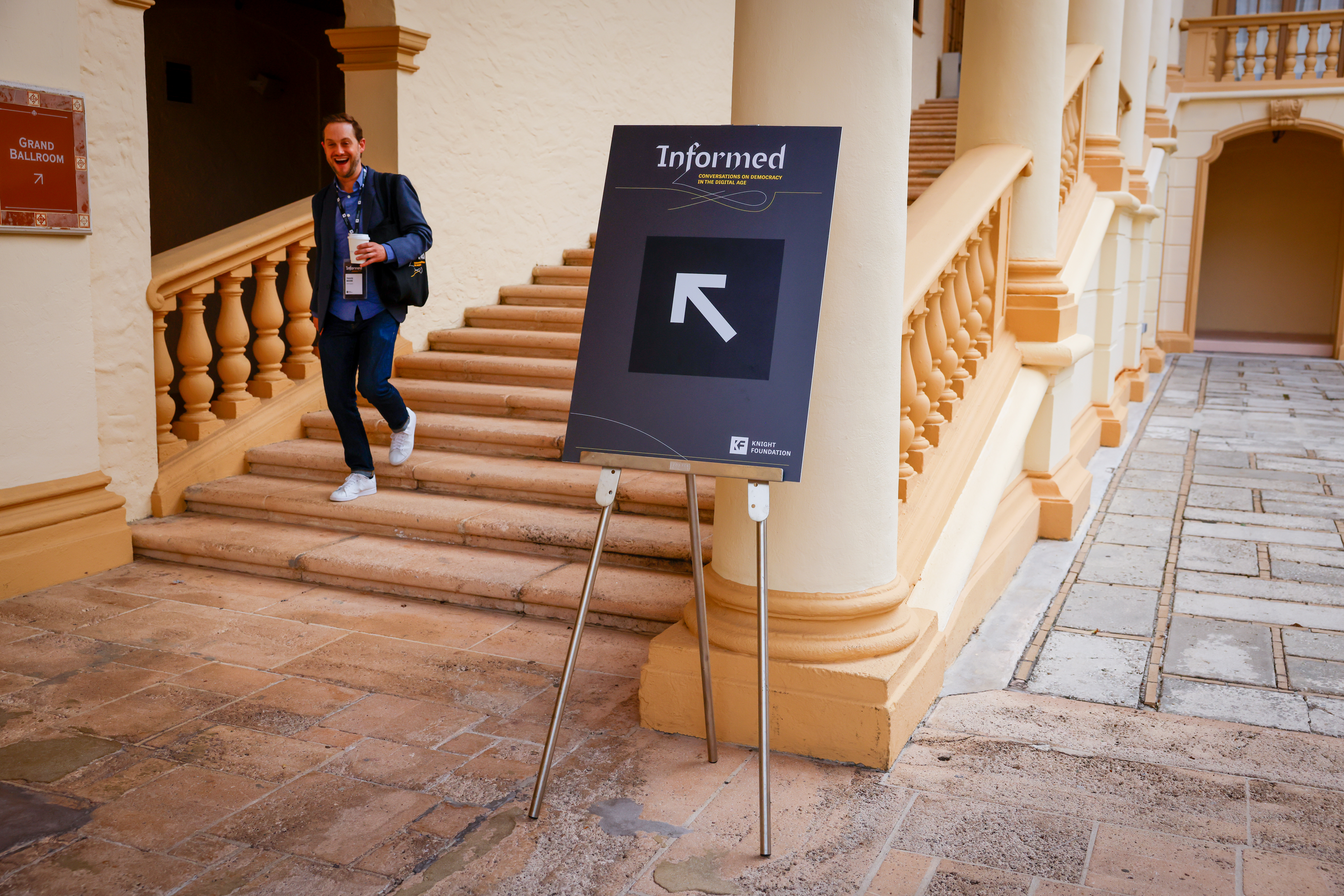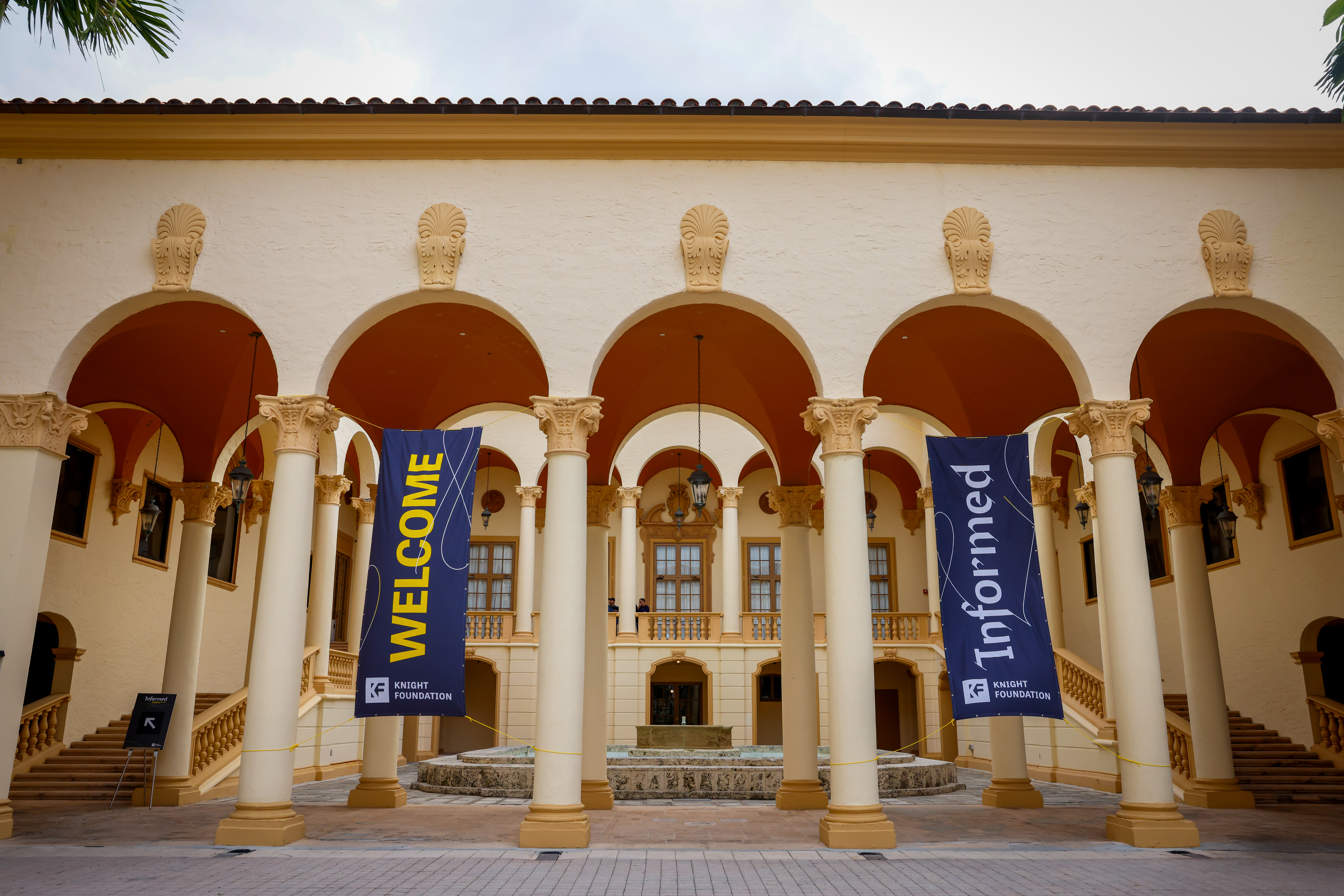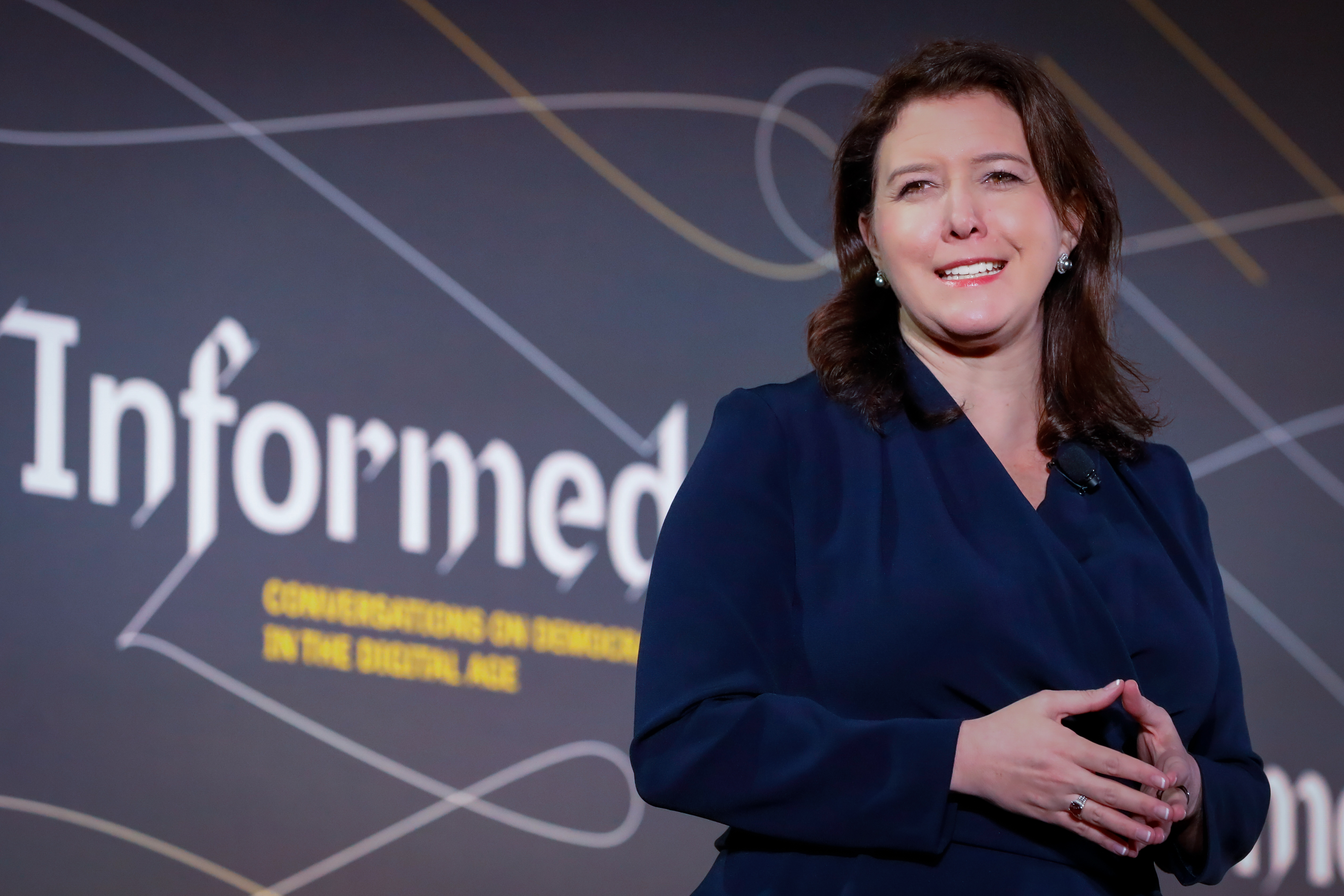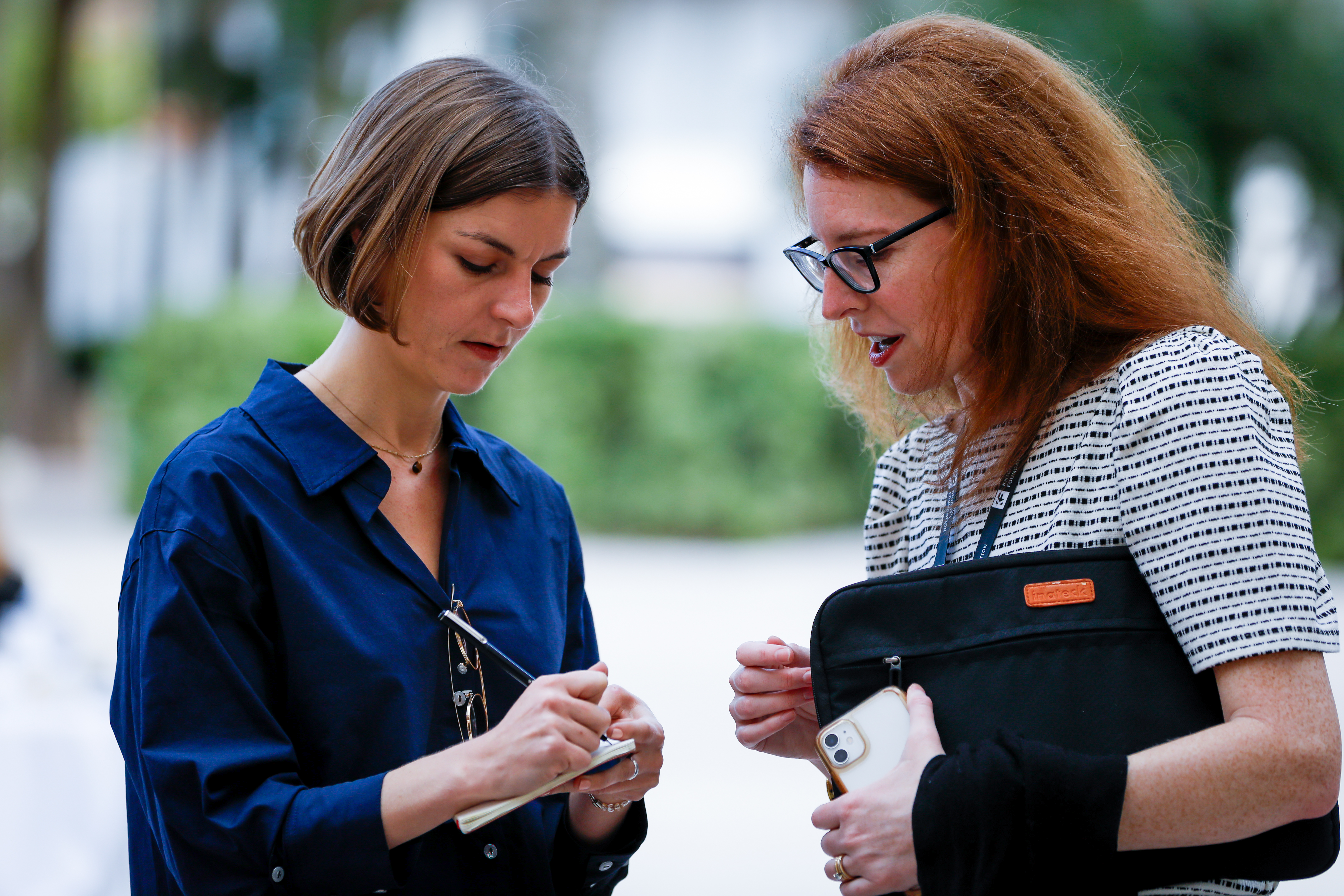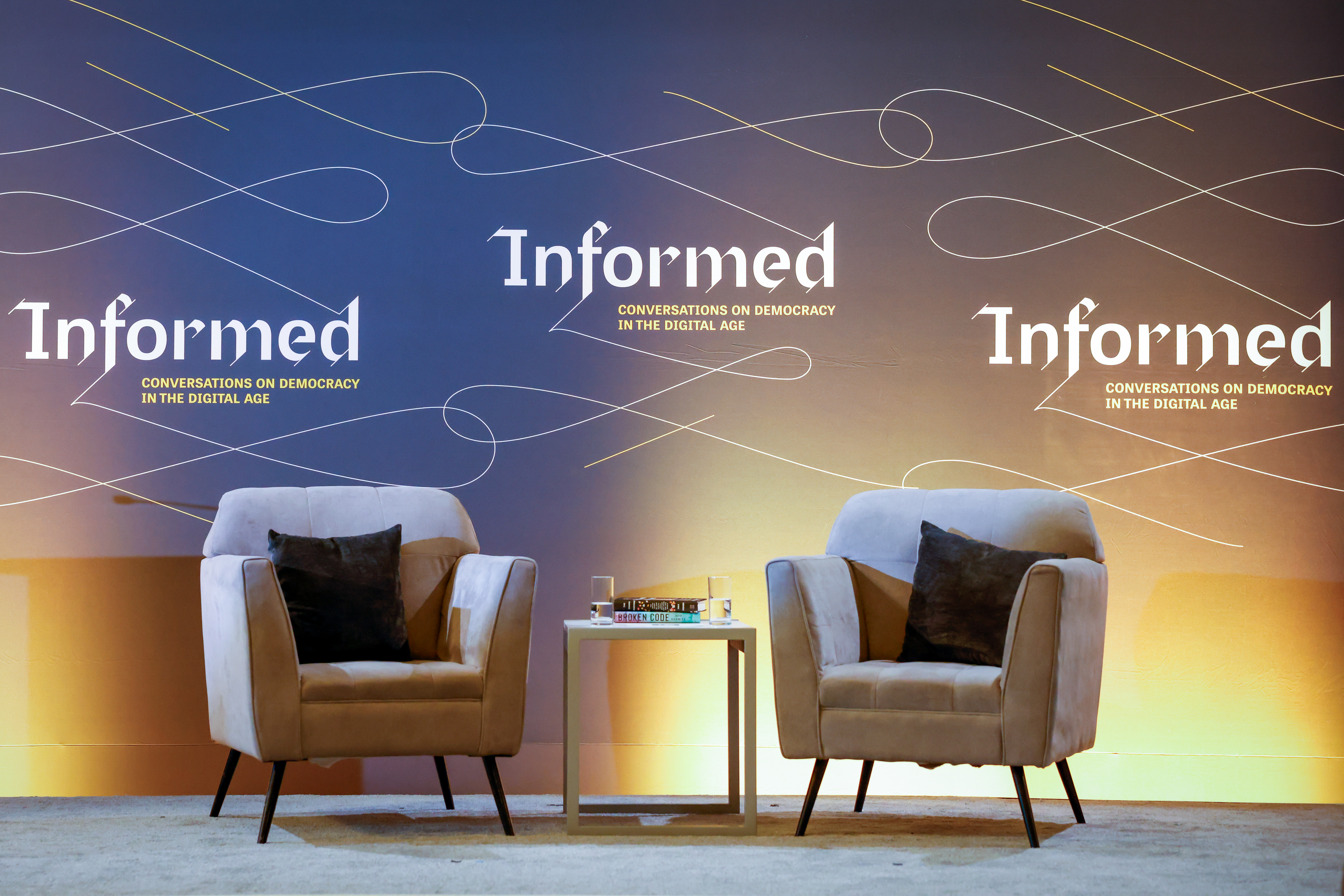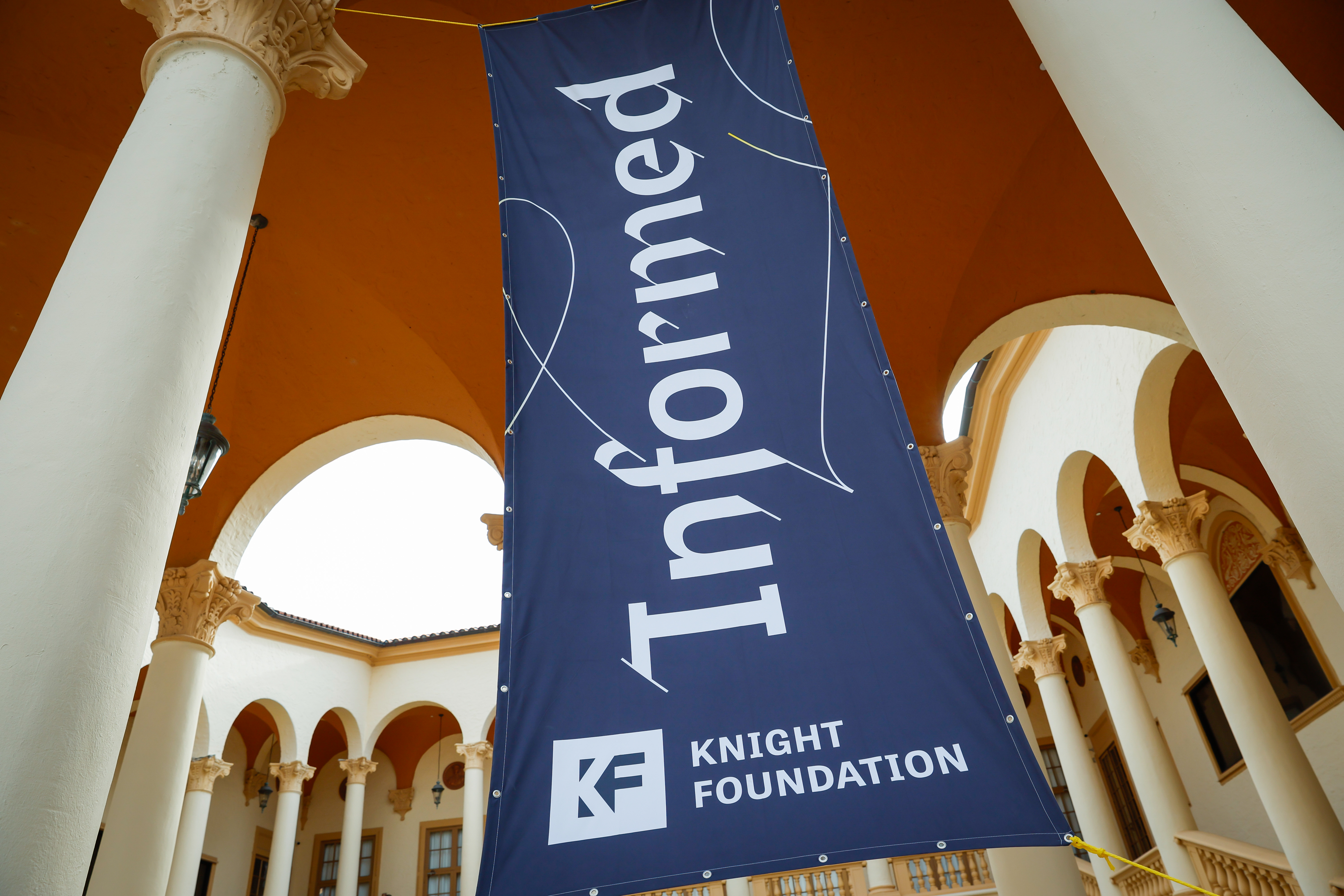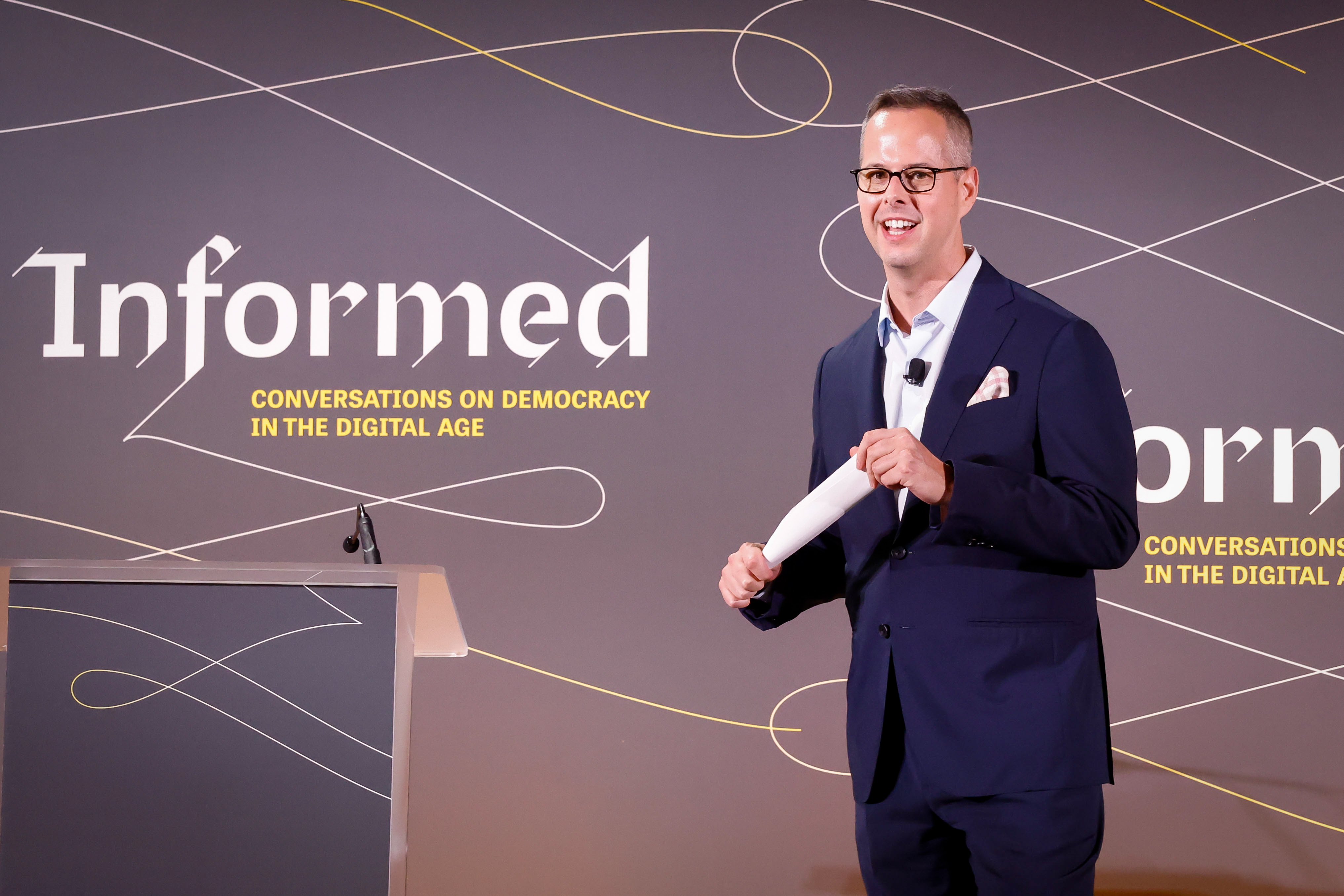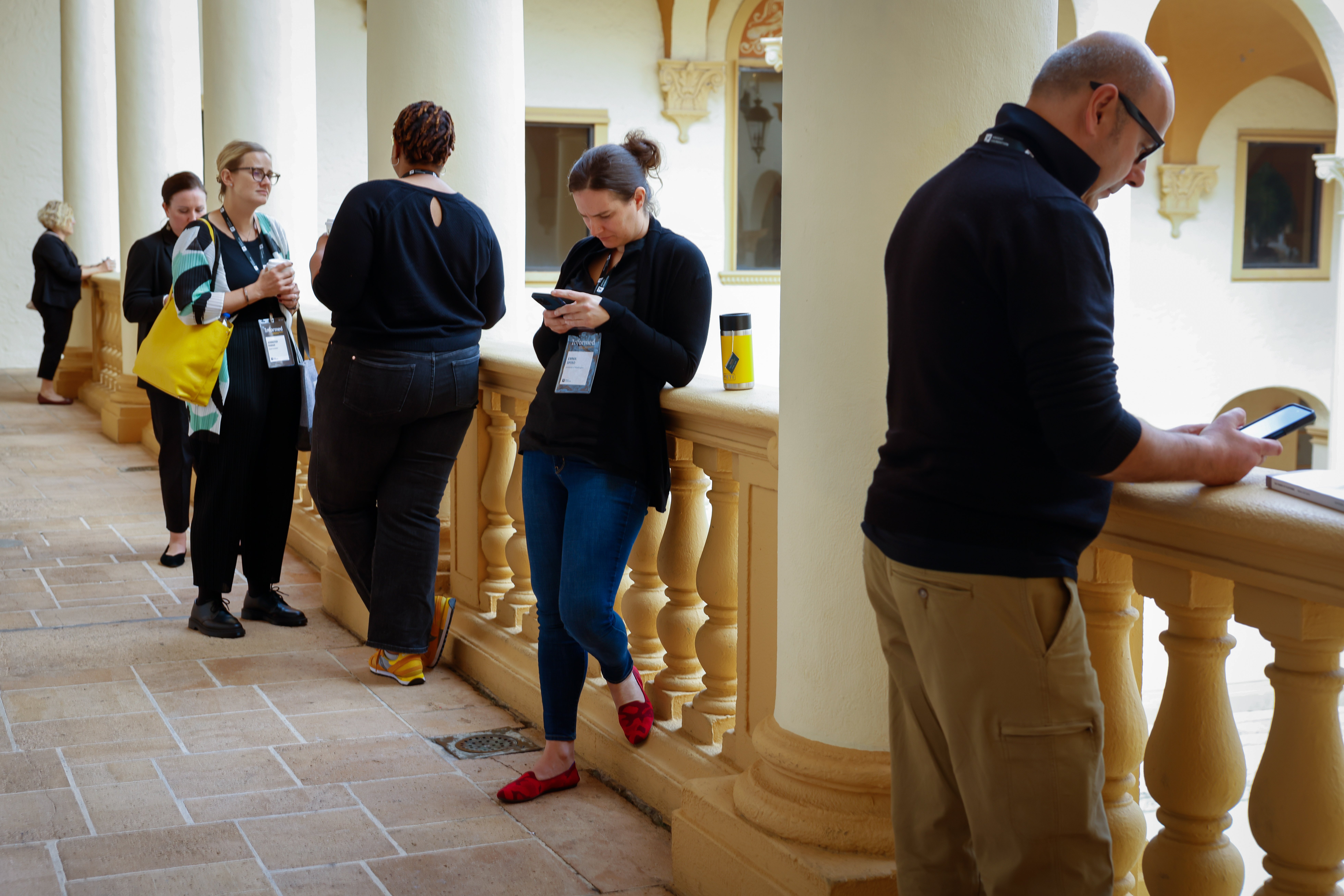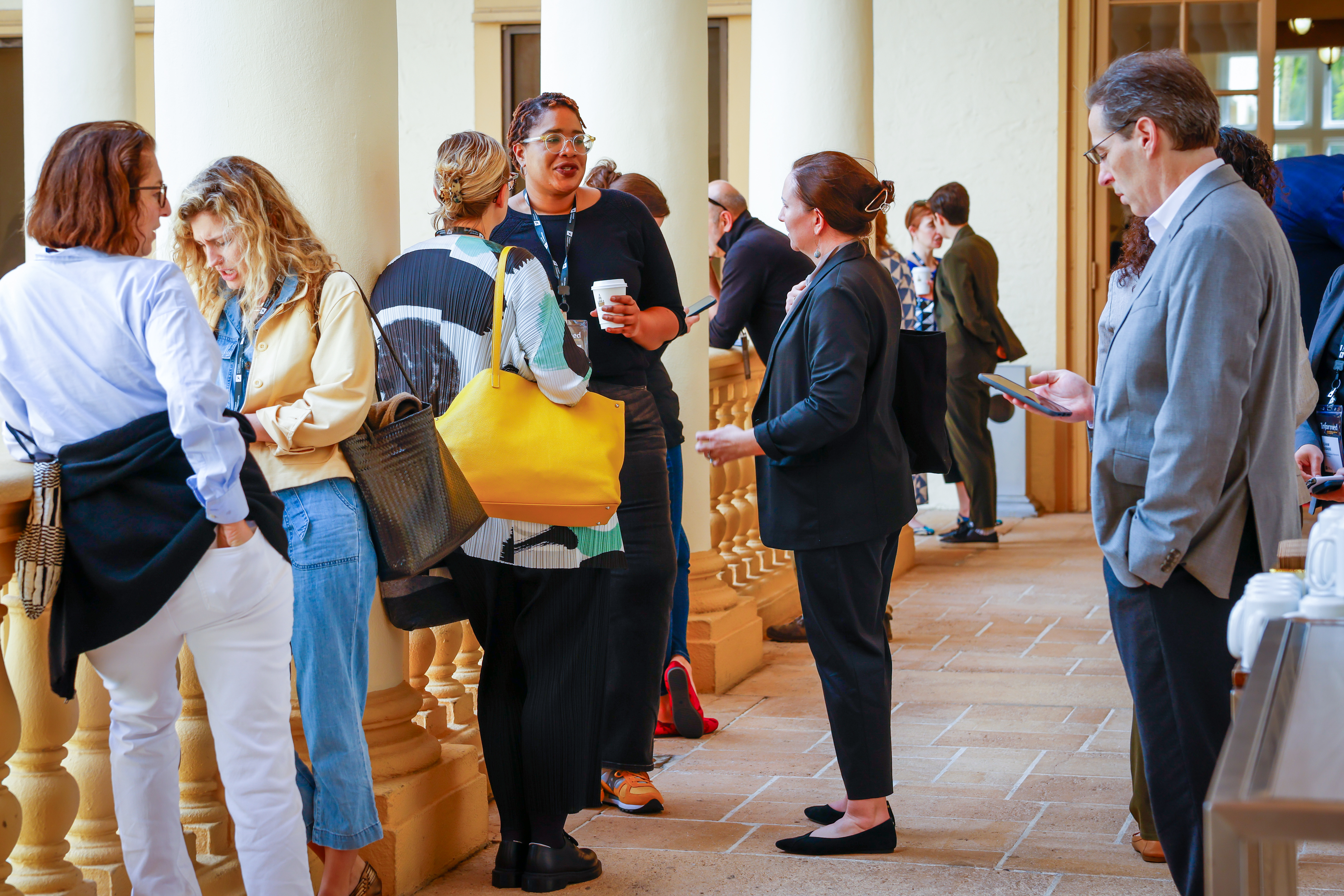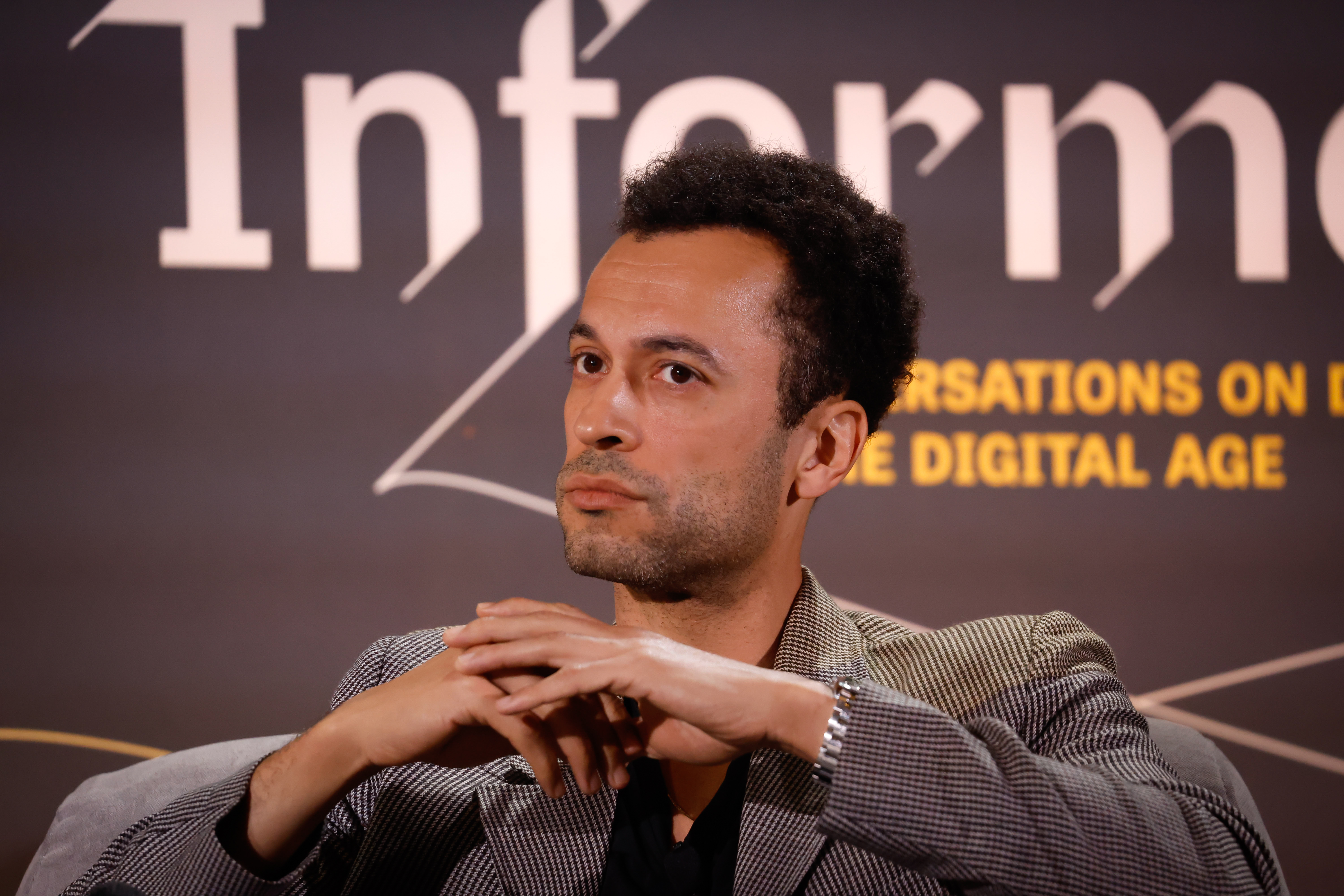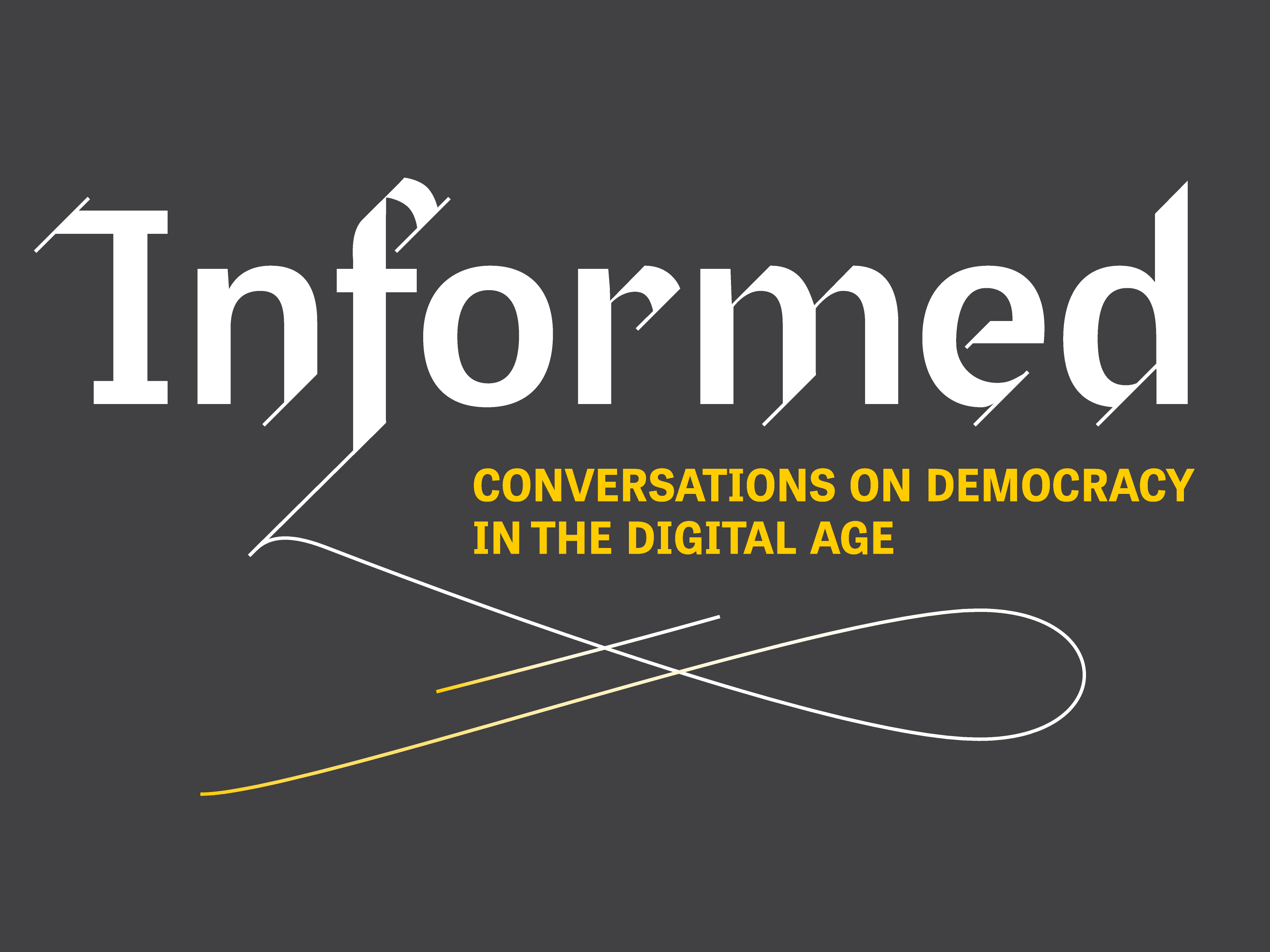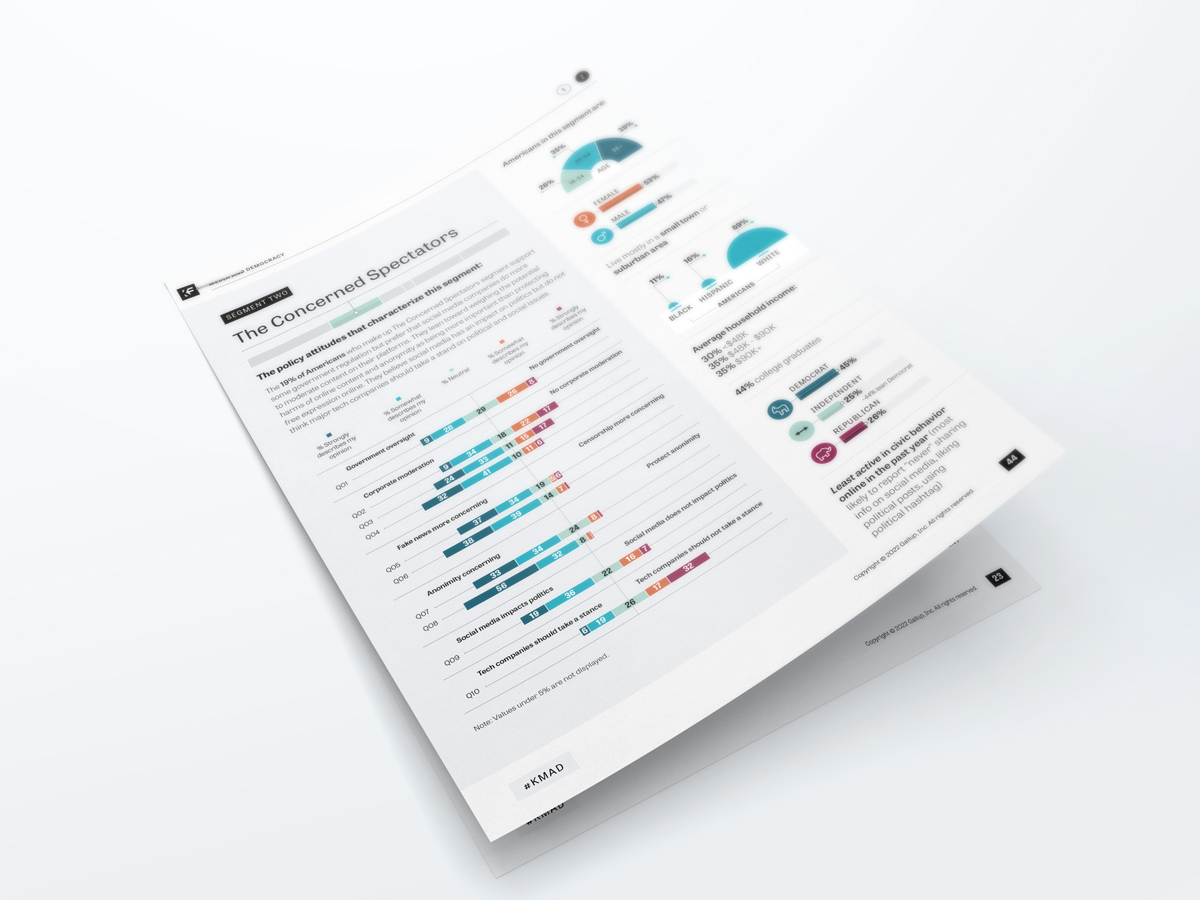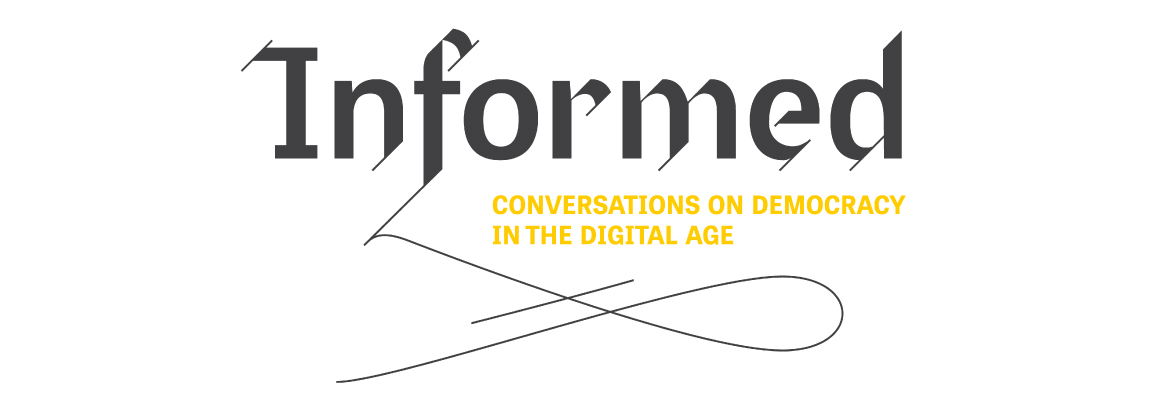
Select sessions are available for playback below.
Session Playback
Watch full sessions from Informed 2024.
Photos
Agenda
Updated as of January, 21, 2024 at 11:30 a.m. Please check back regularly for the latest updates.
Monday, January 22, 2024
–
5:45 pm
Registration
Danielson Room
–
4:00 pm
Optional Pre-conference program: Clemson Media Forensics Hub’s Table-Top Exercise on Social Influencing Methods
Tuttle
Additional registration required. Please follow the instructions provided to you by email to sign up.
–
4:45 pm
Welcome
Country Club Ballroom
Featuring:

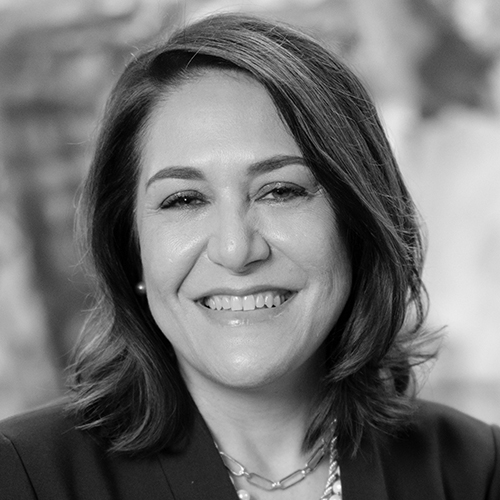

–
5:30 pm
Tech Policy and the Common Good
Country Club Ballroom
With digital services increasingly mediating our access to information, technology policy is now a primary lever for addressing the most significant challenges in the information environment. Because of this, the National Telecommunications and Information Agency (NTIA) at the US Department of Commerce plays a growing role, advising the president on a range of issues from artificial intelligence, digital privacy and access to information online. Asst. Sec. Alan Davidson will join Dr. Alissa Cooper for this wide-ranging conversation that will explore the NTIA’s work and its priorities for the coming year.
Featuring:
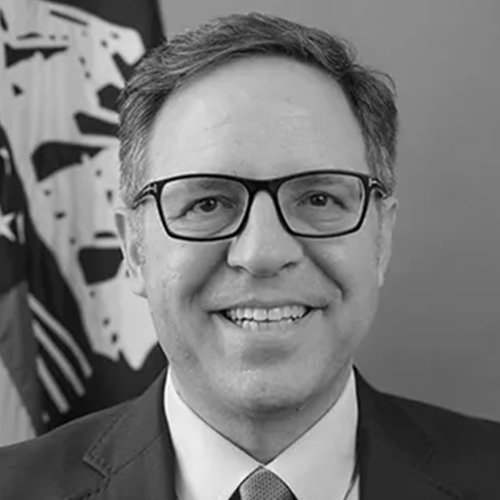

–
6:25 pm
Fireside Chat: Information, Technology and Human Rights
Country Club Ballroom
Featuring:
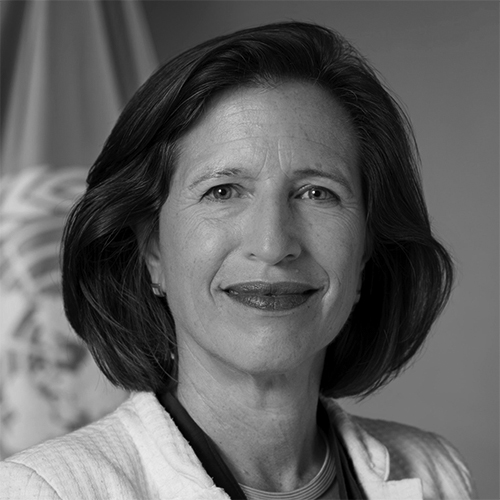

–
8:00 pm
Dinner
Granada Ballroom and Terrace
–
10:00 pm
Late Night Snacks: In Lieu of Fun Podcast
Danielson Room
Featuring:
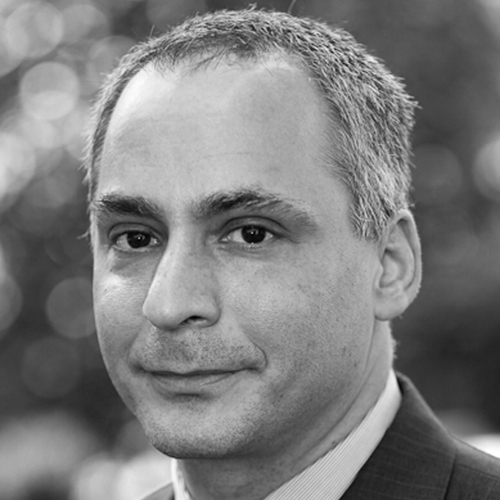

Tuesday, January 23, 2024
07:30 am
–
09:15 am
Breakfast
Country Club Courtyard
09:30 am
–
09:35 am
Welcome
Country Club Ballroom
 Ashley Zohn, Vice President, Learning and Impact, Knight Foundation
09:35 am
Ashley Zohn, Vice President, Learning and Impact, Knight Foundation
09:35 am
–
10:20 am
Implementing the Blueprint for an AI Bill of Rights
Country Club Ballroom
In 2022, the White House Office of Science and Technology Policy led the development of the Blueprint for an AI Bill of Rights. This framework significantly influenced a far-reaching executive order that will touch every facet of research, development and commercialization of AI. This session will draw on the expertise and experience of three key experts involved in the development and implementation of this framework as well as its translation into policy that will affect us all.
Featuring:
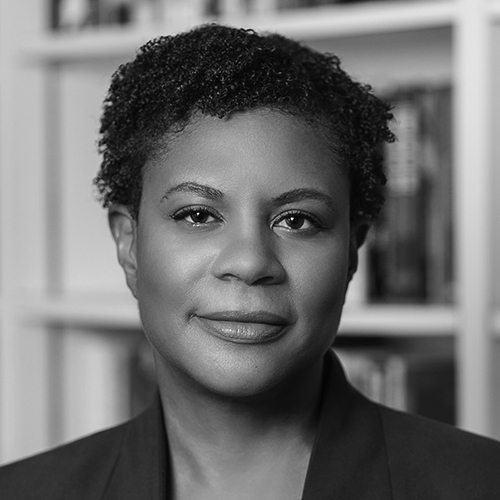 Alondra Nelson, Harold F. Linder Professor, Institute for Advanced Study; Distinguished Senior Fellow, Center for American Progress
Alondra Nelson, Harold F. Linder Professor, Institute for Advanced Study; Distinguished Senior Fellow, Center for American Progress
 Elham Tabassi, Chief AI Advisor and Associate Director for Emerging Technologies, National Institute of Standards and Technology
Elham Tabassi, Chief AI Advisor and Associate Director for Emerging Technologies, National Institute of Standards and Technology
Moderated by:
 Janet Haven, Executive Director, Data & Society
10:25 am
Janet Haven, Executive Director, Data & Society
10:25 am
–
11:05 am
Tech Policy in the Laboratories of Democracy: Trends in State and Local Regulation
Country Club Ballroom
With Washington in gridlock, state policymakers are responding to widespread calls for reform with a range of legislation to regulate online spaces for expression and exchange. As the Supreme Court weighs a possible landmark case involving laws from Florida and Texas, this session explores the slate of new policy proposals and their potential impacts.
Featuring:
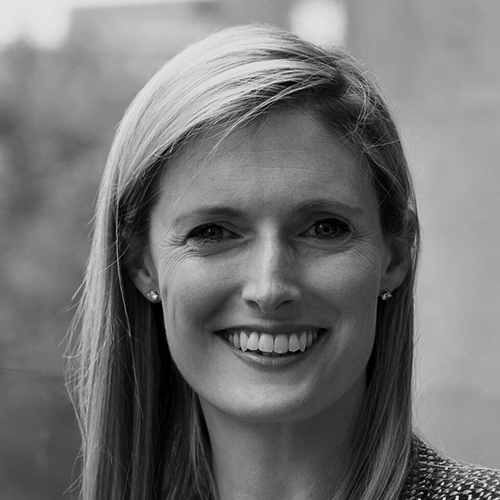 Alexandra Reeve Givens, President and CEO, Center for Democracy & Technology
Alexandra Reeve Givens, President and CEO, Center for Democracy & Technology
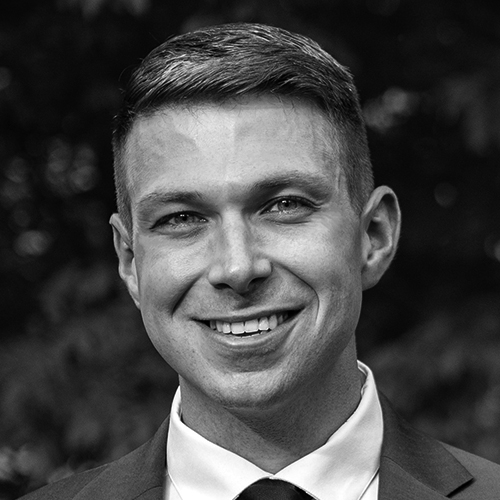 Chris Marchese, Litigation Center Director, NetChoice
Chris Marchese, Litigation Center Director, NetChoice
Moderated by:
 Matt Perault, Professor of the Practice and Director, Center on Technology Policy, University of North Carolina at Chapel Hill
Matt Perault, Professor of the Practice and Director, Center on Technology Policy, University of North Carolina at Chapel Hill
Introduction:
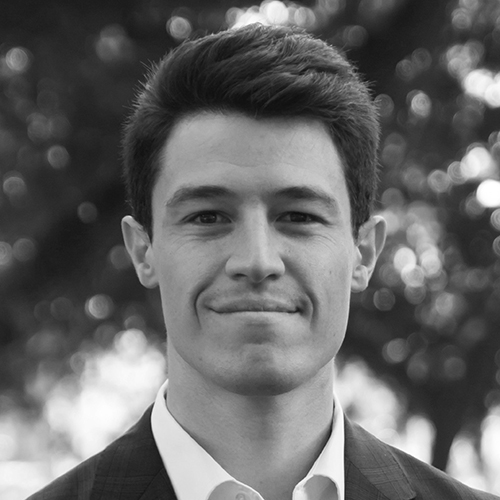 A.J. D'Amico, Director, Media and Democracy, Knight Foundation
11:20 am
A.J. D'Amico, Director, Media and Democracy, Knight Foundation
11:20 am
–
12:10 pm
Polarization, Freedom of Expression and Dissent
Country Club Ballroom
Featuring:
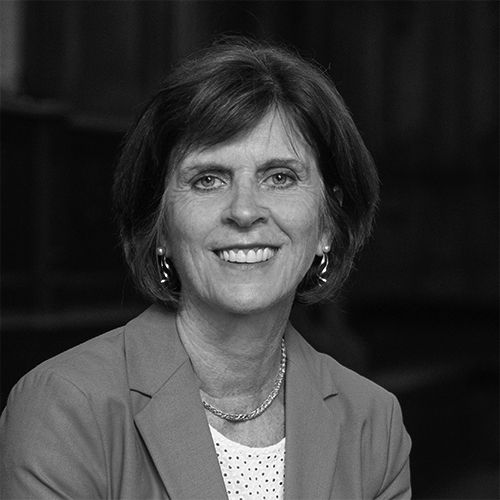 Dame Louise Richardson, President, Carnegie Corporation of New York
Dame Louise Richardson, President, Carnegie Corporation of New York
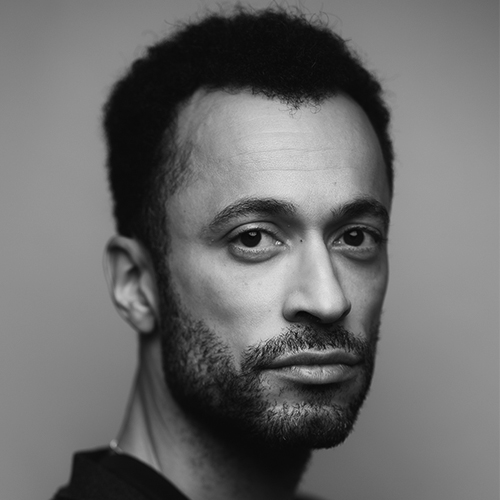 Thomas Chatterton Williams, Contributing Writer, The Atlantic; Author of Losing My Cool and Self-Portrait in Black and White; Visiting Professor of Humanities and Senior Fellow, Hannah Arendt Center at Bard College; Visiting Fellow, American Enterprise Institute
Thomas Chatterton Williams, Contributing Writer, The Atlantic; Author of Losing My Cool and Self-Portrait in Black and White; Visiting Professor of Humanities and Senior Fellow, Hannah Arendt Center at Bard College; Visiting Fellow, American Enterprise Institute
Moderated by:
 Vivian Schiller, Vice President and Executive Director, Aspen Digital, The Aspen Institute
Vivian Schiller, Vice President and Executive Director, Aspen Digital, The Aspen Institute
Contributions:
 Shannon McGregor, Associate Professor at the UNC Hussman School of Journalism and Media, and Principal Investigator with the Center for Information, Technology, and Public Life, University of North Carolina at Chapel Hill
Shannon McGregor, Associate Professor at the UNC Hussman School of Journalism and Media, and Principal Investigator with the Center for Information, Technology, and Public Life, University of North Carolina at Chapel Hill
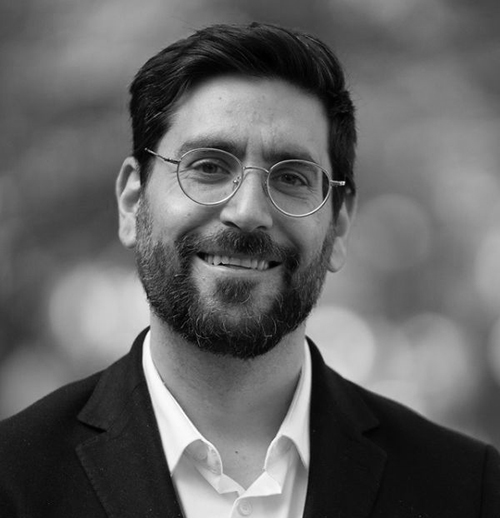 Yphtach Lelkes, Associate Professor of Communication and Political Science, University of Pennsylvania
12:15 pm
Yphtach Lelkes, Associate Professor of Communication and Political Science, University of Pennsylvania
12:15 pm
–
01:25 pm
Lunch
Granada Ballroom and Terrace
01:30 pm
–
02:25 pm
Breakout Sessions
Choose one
Effective Regulation of Digital Markets: Lessons from Empirical Research
Merrick Room
 Christopher Yoo, John H. Chestnut Professor of Law, Communication, and Computer and Information Science; Founding Director, Center for Technology, Innovation & Competition, University of Pennsylvania
Christopher Yoo, John H. Chestnut Professor of Law, Communication, and Computer and Information Science; Founding Director, Center for Technology, Innovation & Competition, University of Pennsylvania
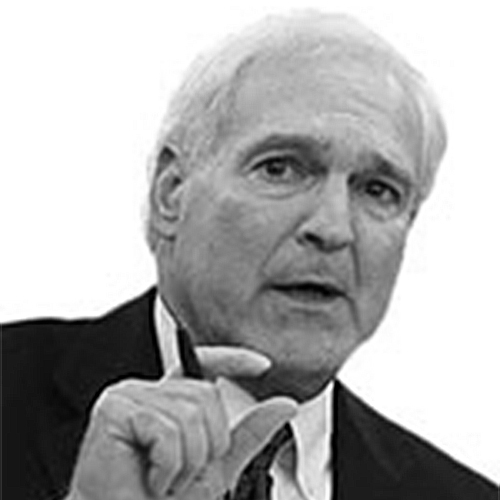 Gene Kimmelman, Senior Policy Fellow, Tobin Center for Economic Policy, Yale University
Gene Kimmelman, Senior Policy Fellow, Tobin Center for Economic Policy, Yale University
Information Integrity, Race and U.S. Elections
Stoneman Douglas Room
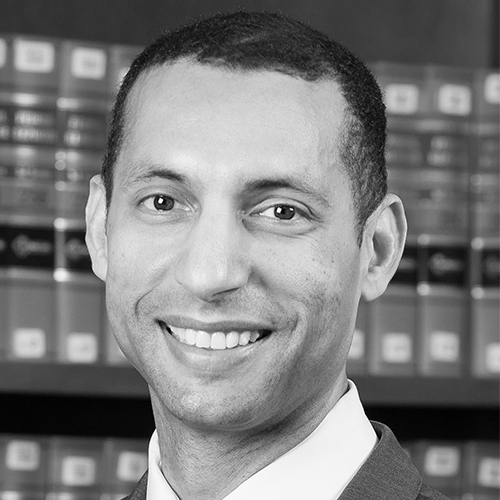 Spencer Overton, The Patricia Roberts Harris Research Professorship; Professor of Law George Washington University
Spencer Overton, The Patricia Roberts Harris Research Professorship; Professor of Law George Washington University
 Brandi Collins-Dexter, Visiting Fellow, Harvard Kennedy School’s Shorenstein Center on Media, Politics and Public Policy
Brandi Collins-Dexter, Visiting Fellow, Harvard Kennedy School’s Shorenstein Center on Media, Politics and Public Policy
 Dani Brown, 1855 Community and Urban Journalism Professor and Associate Professor, Michigan State University
Dani Brown, 1855 Community and Urban Journalism Professor and Associate Professor, Michigan State University
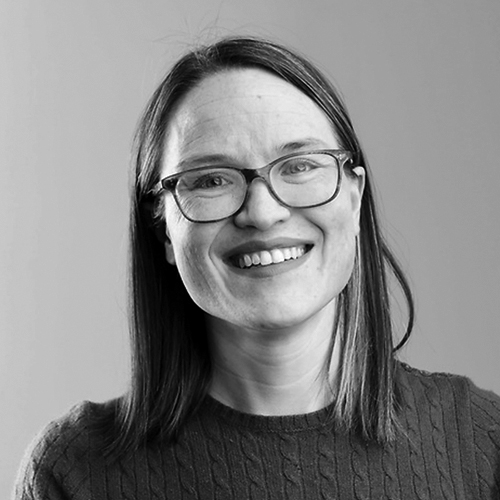 Kathryn Peters, Democracy Strategist, Technologist and Champion
02:30 pm
Kathryn Peters, Democracy Strategist, Technologist and Champion
02:30 pm
–
03:25 pm
Breakout Sessions
Choose one
Democracy and Platform Governance: A Series of Lightning Talks
Merrick Room
The Case for Democratic Governance of Social Media
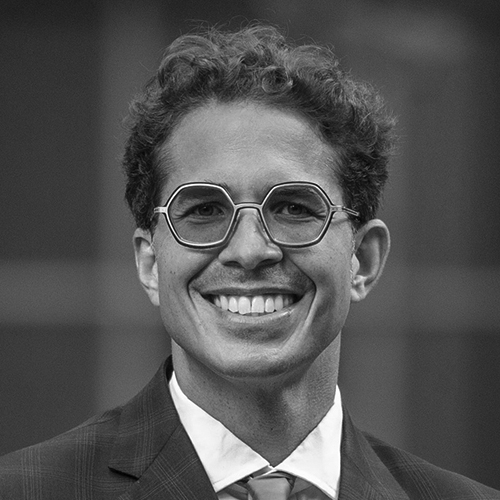 Paul Gowder, Professor of Law and Associate Dean of Research and Intellectual Life, Northwestern University
Paul Gowder, Professor of Law and Associate Dean of Research and Intellectual Life, Northwestern University
Why We Should Study the Democratic Implications of Gaming Platforms
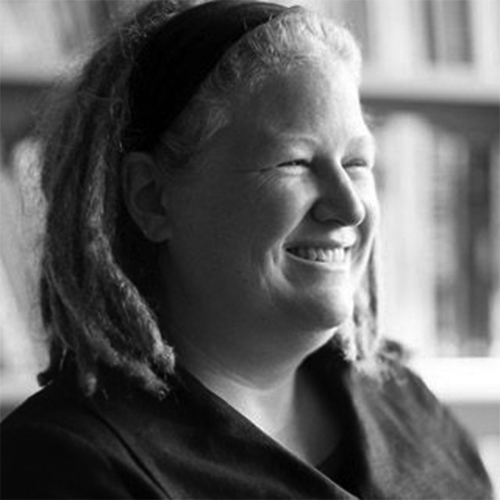 T.L. Taylor, Professor of Comparative Media Studies, MIT
T.L. Taylor, Professor of Comparative Media Studies, MIT
Democratic Backsliding and Online Platforms
 Andrew Thompson, Assistant Professor of Political Science, George Washington University
Andrew Thompson, Assistant Professor of Political Science, George Washington University
Large Language Models and Content Moderation
 John Curtis Samples, Vice President, Cato Institute; Member, Meta Oversight Board
John Curtis Samples, Vice President, Cato Institute; Member, Meta Oversight Board
Areas of Emerging Scientific Consensus: A Series of Lightning Talks
Stoneman Douglas Room
An Overview of the Facebook and Instagram Election Study’s Preliminary Findings
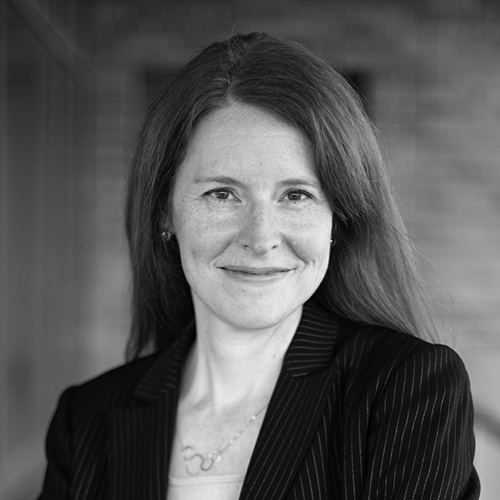 Talia Stroud, E.M. "Ted" Dealey Professor in Business Journalism, Founder and Director, Center for Media Engagement at the University of Texas at Austin
Talia Stroud, E.M. "Ted" Dealey Professor in Business Journalism, Founder and Director, Center for Media Engagement at the University of Texas at Austin
 Joshua Tucker, Professor of Political Science and Co-Director of the Center for Social Media and Politics, New York University
Joshua Tucker, Professor of Political Science and Co-Director of the Center for Social Media and Politics, New York University
Unveiling the Neely Ethics and Technology Indices
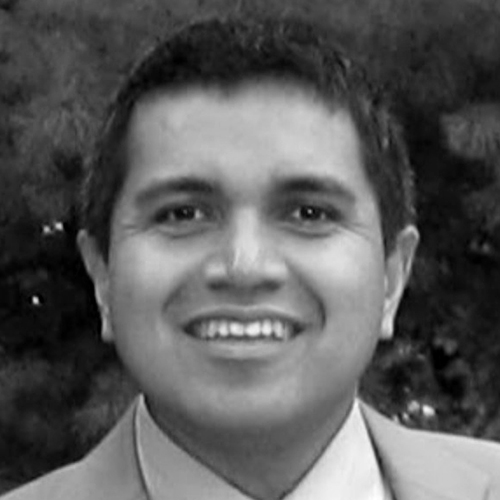 Ravi Iyer, Managing Director, Neely Center for Ethical Leadership and Decision Making; Managing Director, Psychology of Technology Institute, University of Southern California
Ravi Iyer, Managing Director, Neely Center for Ethical Leadership and Decision Making; Managing Director, Psychology of Technology Institute, University of Southern California
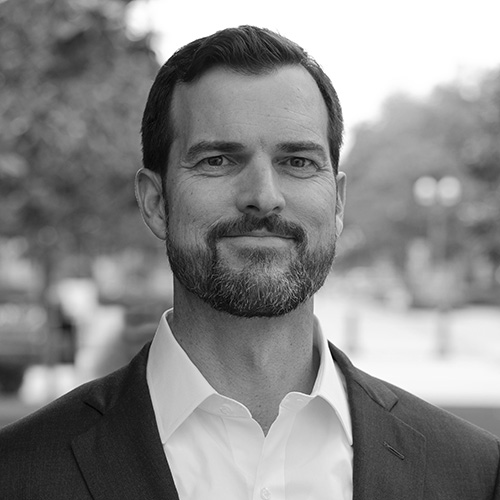 Nate Fast, Jorge Paulo and Susanna Lemann Chair in Entrepreneurship, and Director, Neely Center for Ethical Leadership and Decision Making, USC Marshall School of Business
Nate Fast, Jorge Paulo and Susanna Lemann Chair in Entrepreneurship, and Director, Neely Center for Ethical Leadership and Decision Making, USC Marshall School of Business
 Juliana Schroeder, Harold Furst Chair in Management Philosophy and Values, Haas School of Business, University of California at Berkeley
Juliana Schroeder, Harold Furst Chair in Management Philosophy and Values, Haas School of Business, University of California at Berkeley
Lessons Learned for Regulators from the Oversight Board’s Implementation Work
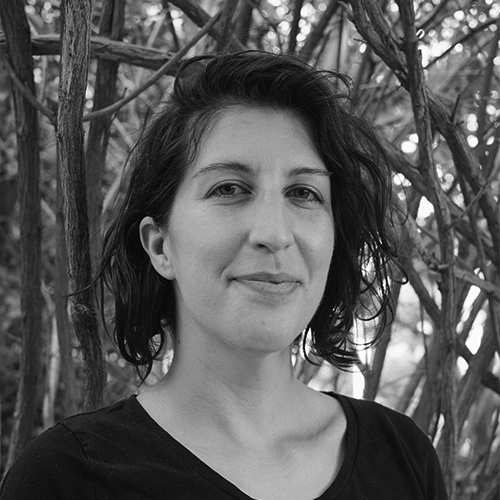 Naomi Shiffman, Head of Data and Implementation, Meta Oversight Board
03:30 pm
Naomi Shiffman, Head of Data and Implementation, Meta Oversight Board
03:30 pm
–
04:30 pm
Cafecito
Country Club Courtyard
Recharge over a traditional cuban coffee.
04:30 pm
–
05:15 pm
Fireside Chat
Country Club Ballroom
Featuring:
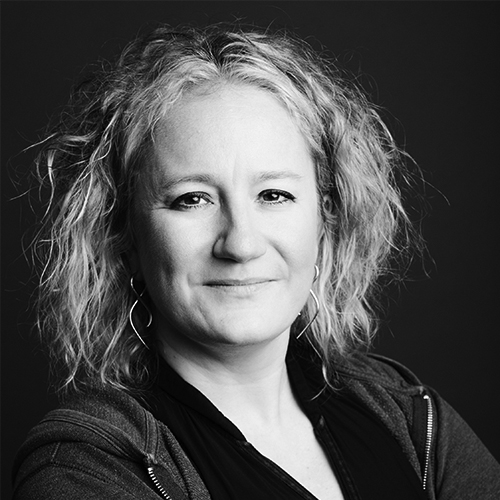 danah boyd, Partner Researcher, Microsoft Research; Distinguished Visiting Professor, Georgetown University; Founder and Advisor, Data & Society
danah boyd, Partner Researcher, Microsoft Research; Distinguished Visiting Professor, Georgetown University; Founder and Advisor, Data & Society
 Tressie McMillan Cottom, Associate Professor, UNC School of Information and Library Science; Senior Faculty Researcher, Center for Information, Technology, and Public Life; New York Times Columnist; 2020 MacArthur Fellow
Tressie McMillan Cottom, Associate Professor, UNC School of Information and Library Science; Senior Faculty Researcher, Center for Information, Technology, and Public Life; New York Times Columnist; 2020 MacArthur Fellow
 Janet Vertesi, Associate Professor of Sociology, Princeton University
05:20 pm
Janet Vertesi, Associate Professor of Sociology, Princeton University
05:20 pm
–
06:10 pm
The Lawfare Podcast: Government Use of Open-Source Information
Country Club Ballroom
Should government actors monitor public online communications? Under what circumstances and to what ends? What are the risks and how can they be mitigated? This discussion will explore the evolving norms around domestic surveillance of speech in the digital public sphere. This expert discussion will be recorded live for the Lawfare Podcast.
Featuring:
 Benjamin Wittes, Editor in Chief, Lawfare; Senior Fellow in Governance Studies, Brookings Institution
Benjamin Wittes, Editor in Chief, Lawfare; Senior Fellow in Governance Studies, Brookings Institution
 Quinta Jurecic, Senior Editor, Lawfare; Fellow in Governance Studies, Brookings Institution
Quinta Jurecic, Senior Editor, Lawfare; Fellow in Governance Studies, Brookings Institution
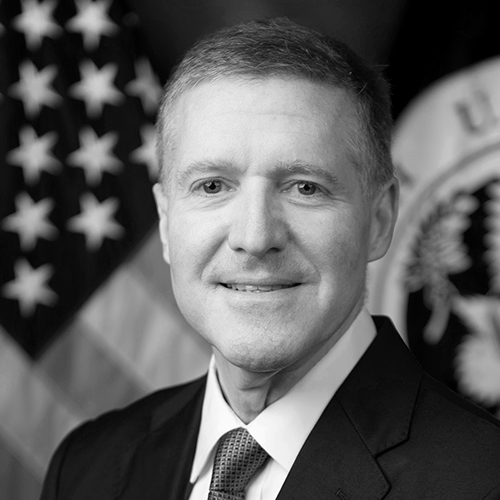 Hon. Kenneth L. Wainstein, Under Secretary for Intelligence and Analysis, Department of Homeland Security
Hon. Kenneth L. Wainstein, Under Secretary for Intelligence and Analysis, Department of Homeland Security
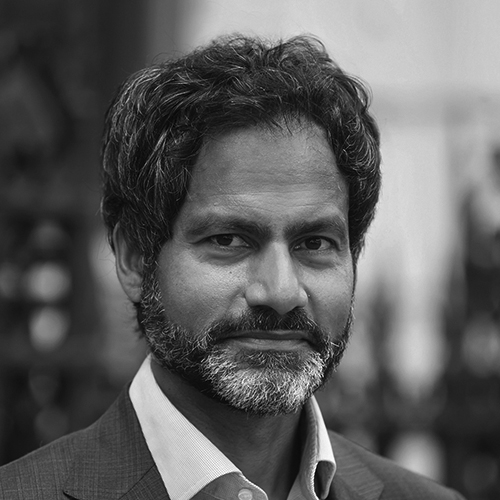 Jameel Jaffer, Executive Director, Knight First Amendment Institute at Columbia University
06:30 pm
Jameel Jaffer, Executive Director, Knight First Amendment Institute at Columbia University
06:30 pm
–
08:15 pm
Dinner
Granada Ballroom and Terrace
08:15 pm
–
09:00 pm
Break
9:00 pm
–
10:00 pm
Late Night Snacks: Big Tech and The News
Danielson Room
Journalism organizations and dominant digital platforms are enmeshed in a high-stakes confrontation over content, clicks and revenue. With democracy on the line, what are the policy options that can encourage both the sustainability and quality of news content on popular online platforms? This fireside chat will be recorded live for Tech Policy Press’s The Sunday Show podcast.
 Cory Doctorow, Science fiction author, activist and journalist
Cory Doctorow, Science fiction author, activist and journalist
 Anya Schiffrin, Director, Technology, Media, and Communications, Columbia University School of International and Public Affairs
Anya Schiffrin, Director, Technology, Media, and Communications, Columbia University School of International and Public Affairs
 Justin Hendrix, CEO and Editor, Tech Policy Press
Justin Hendrix, CEO and Editor, Tech Policy Press
Wednesday, January 24, 2024
07:30 am
–
09:15 am
Breakfast
Country Club Courtyard
09:30 am
–
10:30 am
Breakout Sessions
Choose one
The State of Research Infrastructure: A Moderated Discussion
Merrick Room
 Josephine Lukito, Assistant Professor, University of Texas at Austin’s School of Journalism and Media
Josephine Lukito, Assistant Professor, University of Texas at Austin’s School of Journalism and Media
 David Lazer, University Distinguished Professor of Political Science and Computer Sciences, Northeastern University; Co-Director, NULab for Texts, Maps, and Networks
David Lazer, University Distinguished Professor of Political Science and Computer Sciences, Northeastern University; Co-Director, NULab for Texts, Maps, and Networks
 Cameron Hickey, CEO, National Conference on Citizenship and Project Director for Algorithmic Transparency
Cameron Hickey, CEO, National Conference on Citizenship and Project Director for Algorithmic Transparency
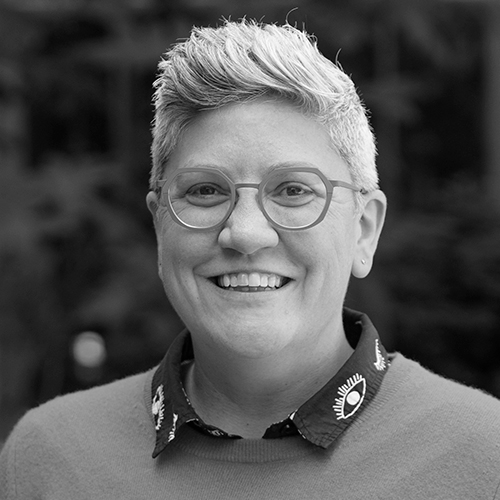 Libby Hemphill, Associate Professor of Information, University of Michigan; Director, Resource Center for Minority Data, Inter-university Consortium for Political and Social Research
Libby Hemphill, Associate Professor of Information, University of Michigan; Director, Resource Center for Minority Data, Inter-university Consortium for Political and Social Research
 Andrew Sellars, Clinical Associate Professor of Law; Executive Director, BU/MIT Student Innovations Law Clinic, Boston University School of Law
Andrew Sellars, Clinical Associate Professor of Law; Executive Director, BU/MIT Student Innovations Law Clinic, Boston University School of Law
 John Wihbey, Associate Professor of Media Innovation and Technology, Northeastern University
John Wihbey, Associate Professor of Media Innovation and Technology, Northeastern University
Moderated by:
 Zeve Sanderson, Executive Director, NYU Center for Social Media and Politics
Zeve Sanderson, Executive Director, NYU Center for Social Media and Politics
Artificial Intelligence, the Law and Society: A Series of Lightning Talks
Stoneman Douglas Room
A Malpractice Regime of Regulating Artificial Intelligence
 Chinmayi Sharma, Associate Professor, Fordham Law School; Cybersecurity and Technology Fellow, the Strauss Center for International Security and Law, University University of Texas at Austin
Chinmayi Sharma, Associate Professor, Fordham Law School; Cybersecurity and Technology Fellow, the Strauss Center for International Security and Law, University University of Texas at Austin
Generative AI’s Impact on Legal Services and Society
 Andrew Perlman, Dean and Professor of Law, Suffolk University Law School
Andrew Perlman, Dean and Professor of Law, Suffolk University Law School
Fundamental Questions of Copyright and Creativity Raised by Generative Artificial Intelligence
 Anna Tumadóttir, interim CEO, Creative Commons
10:45 am
Anna Tumadóttir, interim CEO, Creative Commons
10:45 am
–
11:45 am
Protocols, Not Platforms: The Promise and Peril of Federated Social Media Networks
Country Club Ballroom
In recent years, federated social media networks have begun to offer an alternative to the platforms that have grown over the last two decades. Three leaders in this field will discuss what distinguishes this model from the social media experience as we’ve come to know it in a conversation that explores this protocol-based approach and the technological and normative challenges technologists must address to make it work.
Featuring:
 Jay Graber, CEO, Bluesky
Jay Graber, CEO, Bluesky
 Mike Masnick, CEO, Copia Institute; CEO and Founder, Floor64; Editor, TechDirt
Mike Masnick, CEO, Copia Institute; CEO and Founder, Floor64; Editor, TechDirt
Moderated by:
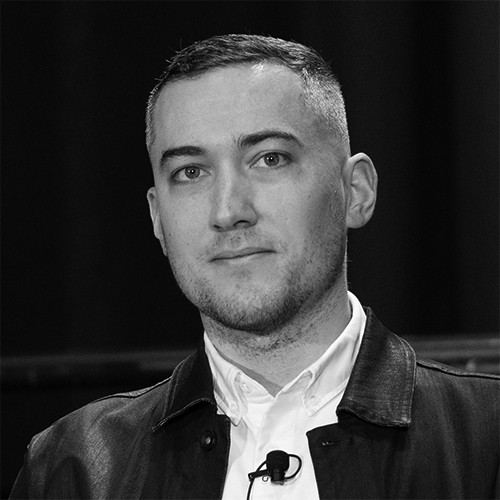 Yoel Roth, Knight Visiting Scholar, University of Pennsylvania
11:50 am
Yoel Roth, Knight Visiting Scholar, University of Pennsylvania
11:50 am
–
12:10 pm
Closing Remarks
Country Club Ballroom
 John Sands, Senior Director, Media and Democracy, Knight Foundation
12:10 pm
John Sands, Senior Director, Media and Democracy, Knight Foundation
12:10 pm
–
1:00 pm
Lunch
Country Club Courtyard
1:00 pm
–
4:00 pm
Optional Post-conference Program: Signal Over Noise in AI Elections: Driving Focus and Dodging Distraction
Aragon
Hosted by Aspen Digital
Additional registration required. Please follow the instructions provided to you by email to sign up.
–
09:15 am
Breakfast
Country Club Courtyard
–
09:35 am
Welcome
Country Club Ballroom

–
10:20 am
Implementing the Blueprint for an AI Bill of Rights
Country Club Ballroom
In 2022, the White House Office of Science and Technology Policy led the development of the Blueprint for an AI Bill of Rights. This framework significantly influenced a far-reaching executive order that will touch every facet of research, development and commercialization of AI. This session will draw on the expertise and experience of three key experts involved in the development and implementation of this framework as well as its translation into policy that will affect us all.
Featuring:


Moderated by:

–
11:05 am
Tech Policy in the Laboratories of Democracy: Trends in State and Local Regulation
Country Club Ballroom
With Washington in gridlock, state policymakers are responding to widespread calls for reform with a range of legislation to regulate online spaces for expression and exchange. As the Supreme Court weighs a possible landmark case involving laws from Florida and Texas, this session explores the slate of new policy proposals and their potential impacts.
Featuring:


Moderated by:

Introduction:

–
12:10 pm
Polarization, Freedom of Expression and Dissent
Country Club Ballroom
Featuring:


Moderated by:

Contributions:


–
01:25 pm
Lunch
Granada Ballroom and Terrace
–
02:25 pm
Breakout Sessions
Choose one
Effective Regulation of Digital Markets: Lessons from Empirical Research
Merrick Room


Information Integrity, Race and U.S. Elections
Stoneman Douglas Room




–
03:25 pm
Breakout Sessions
Choose one
Democracy and Platform Governance: A Series of Lightning Talks
Merrick Room
The Case for Democratic Governance of Social Media

Why We Should Study the Democratic Implications of Gaming Platforms

Democratic Backsliding and Online Platforms

Large Language Models and Content Moderation

Areas of Emerging Scientific Consensus: A Series of Lightning Talks
Stoneman Douglas Room
An Overview of the Facebook and Instagram Election Study’s Preliminary Findings


Unveiling the Neely Ethics and Technology Indices



Lessons Learned for Regulators from the Oversight Board’s Implementation Work

–
04:30 pm
Cafecito
Country Club Courtyard
Recharge over a traditional cuban coffee.
–
05:15 pm
Fireside Chat
Country Club Ballroom
Featuring:



–
06:10 pm
The Lawfare Podcast: Government Use of Open-Source Information
Country Club Ballroom
Should government actors monitor public online communications? Under what circumstances and to what ends? What are the risks and how can they be mitigated? This discussion will explore the evolving norms around domestic surveillance of speech in the digital public sphere. This expert discussion will be recorded live for the Lawfare Podcast.
Featuring:




–
08:15 pm
Dinner
Granada Ballroom and Terrace
–
09:00 pm
Break
–
10:00 pm
Late Night Snacks: Big Tech and The News
Danielson Room
Journalism organizations and dominant digital platforms are enmeshed in a high-stakes confrontation over content, clicks and revenue. With democracy on the line, what are the policy options that can encourage both the sustainability and quality of news content on popular online platforms? This fireside chat will be recorded live for Tech Policy Press’s The Sunday Show podcast.



–
09:15 am
Breakfast
Country Club Courtyard
–
10:30 am
Breakout Sessions
Choose one
The State of Research Infrastructure: A Moderated Discussion
Merrick Room






Moderated by:

Artificial Intelligence, the Law and Society: A Series of Lightning Talks
Stoneman Douglas Room
A Malpractice Regime of Regulating Artificial Intelligence

Generative AI’s Impact on Legal Services and Society

Fundamental Questions of Copyright and Creativity Raised by Generative Artificial Intelligence

–
11:45 am
Protocols, Not Platforms: The Promise and Peril of Federated Social Media Networks
Country Club Ballroom
In recent years, federated social media networks have begun to offer an alternative to the platforms that have grown over the last two decades. Three leaders in this field will discuss what distinguishes this model from the social media experience as we’ve come to know it in a conversation that explores this protocol-based approach and the technological and normative challenges technologists must address to make it work.
Featuring:


Moderated by:

–
12:10 pm
Closing Remarks
Country Club Ballroom

–
1:00 pm
Lunch
Country Club Courtyard
–
4:00 pm
Optional Post-conference Program: Signal Over Noise in AI Elections: Driving Focus and Dodging Distraction
Aragon
Hosted by Aspen Digital
Additional registration required. Please follow the instructions provided to you by email to sign up.
Speakers
danah boyd is a partner researcher at Microsoft Research and a distinguished visiting professor at Georgetown University. Her research focuses on the intersection of technology and society, with an eye to how structural inequities shape and are shaped by technologies. She is currently conducting a multiyear ethnographic study of the US census to understand how data are made legitimate. Her previous studies have focused on media manipulation, algorithmic bias, privacy practices, social media and teen culture. She founded the research institute Data & Society, where she currently serves as an advisor.
Danielle K. Brown, Ph.D. is the 1855 Community and Urban Journalism professor at Michigan State University and founding director of the LIFT Project. Her interdisciplinary scholarship centers on the production, patterns and effects of media and misinformation about Black communities. In pursuit of developing reparative models of narrative change, Brown’s work utilizes mixed-method approaches and prioritizes engaged efforts that connect research back with the communities analyzed. She is an associate editor for the International Journal of Press/Politics, and regularly writes for national and local media outlets and consults with news and advocacy organizations interested in addressing equity concerns and building trust with minoritized communities.
Alissa Cooper is the executive director of the Knight-Georgetown Institute (KGI). Prior to joining KGI, Alissa spent a decade at Cisco Systems in a variety of senior engineering and executive roles, including vice president of Technology Standards and vice president and chief technology officer for Technology Policy. She played a central role in shaping Cisco’s approach to technology standardization, public policy, and privacy across the company’s networking, security, and collaboration businesses. Alissa has been a leader in the development of global Internet standards and governance. She served in a variety of leadership roles in the Internet Engineering Task Force (IETF) and served as chief computer scientist at the Center for Democracy and Technology, where she was a leading public interest advocate and technologist focused on privacy and net neutrality.
A.J. D’Amico joined the Knight Foundation in March 2023 as Director of Media & Democracy. In that role, A.J. facilitates the growth of the Knight Research Network, manages grants aimed at translating cutting-edge research on the role of media and technology on our democracy into actionable policy options, and encourages the furtherance of the Knight Foundation’s mission to build more informed and engaged communities. He brings extensive government and legal experience collaborating with government officials, community organizations, and interest groups in the policymaking, advocacy, and litigation processes.
Alan Davidson leads the National Telecommunications and Information Administration (NTIA), the President’s principal advisor on telecommunications and information policy. As NTIA Administrator, Alan oversees a federal agency with more than 500 employees working to close the digital divide, manage federal spectrum resources and build a better Internet.
Cory Doctorow is a science fiction author, activist and journalist. He is the author of many books, including The Internet Con: How to Seize the Means of Computation, a Big Tech disassembly manual and Chokepoint Capitalism, a nonfiction book about monopoly and creative labor markets. He works for the Electronic Frontier Foundation, is a MIT Media Lab research affiliate, a visiting professor of computer science at Open University, a visiting professor of practice at the University of North Carolina’s School of Library and Information Science and co-founded the UK Open Rights Group. In 2020, he was inducted into the Canadian Science Fiction and Fantasy Hall of Fame.
Nathanael Fast is the Jorge Paulo and Susanna Lemann chair and executive director of the Neely Center for Ethical Leadership at the USC Marshall School of Business. He also cofounded and co-directs the Psychology of Technology Institute. His research examines the behavioral underpinnings of AI adoption as it relates to power, leadership and the future of work. Fast’s award-winning work has been featured in top media outlets such as the Wall Street Journal, Forbes, NPR, The Economist, ABC News, CNN, and New York Times. He received his Ph.D. in organizational behavior from Stanford University’s Graduate School of Business.
Melissa Fleming is under-secretary-general for global communications at the United Nations, having taken up her post in September 2019. Fleming leads the department, which is responsible for informing global audiences about the state of the world and engaging them to build support for the organization’s work and goals. In this role, Fleming oversees the UN’s strategic communications operations, including its multilingual news and digital media services, public outreach programmes and global campaigns. Under her leadership, the UN department of global communications engages in far-reaching efforts to address misinformation, disinformation and hate speech. She is leading the development of a Code of Conduct for Information Integrity on Digital Platforms.
Paul Gowder is a professor of law and the associate dean of research and intellectual life at Northwestern University's Pritzker School of Law. He is the author of three books: The Rule of Law in the Real World (Cambridge, 2016), The Rule of Law in the United States: An Unfinished Project of Black Liberation (Hart/Bloomsbury 2021), and The Networked Leviathan: For Democratic Platforms (Cambridge 2023). His research spans fields including political and legal philosophy, racial justice, constitutional theory, platform governance and classical Athenian law.
Jay Graber is the CEO of Bluesky, a public benefit company building an open social network. She previously founded a social events site, worked as a developer on a privacy-preserving cryptocurrency, and campaigned for net neutrality and antitrust issues at digital rights nonprofits.
Janet Haven is the executive director of Data & Society. She has worked at the intersection of technology policy, governance and accountability for more than twenty years, both domestically and internationally. Her career has spanned technology start-ups, philanthropic institutions, nonprofit organizations and government roles in leadership and board capacities. Haven is a member of the National Artificial Intelligence Advisory Committee (NAIAC), which advises the president on a range of issues related to artificial intelligence. Before joining Data & Society, Haven spent more than a decade at the Open Society Foundations leading a global grantmaking program on technology, accountability and human rights.
Justin Hendrix is CEO and editor of Tech Policy Press, a nonprofit media venture concerned with the intersection of technology and democracy. Previously, he was Executive Director of NYC Media Lab. He spent over a decade at the Economist in roles including vice president, business development and innovation. He is an associate research scientist and adjunct professor at NYU Tandon School of Engineering, and a visiting lecturer at Cornell Tech.
Jameel Jaffer directs the Knight First Amendment Institute at Columbia University, which promotes the freedoms of speech and the press in the digital age through strategic litigation, research and public education. He previously served in various leadership positions at the American Civil Liberties Union, ultimately overseeing the organization’s work on free speech, privacy, technology, national security and international human rights. Over the course of his career as a litigator, Jaffer has argued human rights and civil liberties cases in multiple appeals courts as well as the U.S. Supreme Court; he has also testified many times before federal agencies and the U.S. Congress.
Quinta Jurecic is a fellow in governance studies at the Brookings Institution and a senior editor at Lawfare, where she was previously the managing editor. She is a contributing writer at the Atlantic and the Washington Post’s Book World.
Gene Kimmelman is a senior policy fellow at Yale’s Tobin Economic Policy Center and a senior research fellow with the Mossavar-Rahmani Center for Business and Government at the Harvard Kennedy School. He was deputy associate attorney general in the U.S. Justice Department, 2021-2022. Kimmelman served as the president and CEO of Public Knowledge, the director of the Internet Freedom and Human Rights project at the New America Foundation, and as chief counsel for the U.S.
Kate Klonick is an associate professor at St. John's University Law School, a fellow at the Brookings Institution, Yale Law School’s Information Society Project, Harvard Berkman Klein Center and a distinguished scholar at the Institute for Humane Studies. Her writing on online speech, freedom of expression and private internet platform governance has appeared in the Harvard Law Review, Yale Law Journal, The New Yorker, the New York Times, The Atlantic, the Washington Post and numerous other publications. For the 2023-2024 academic year, she is a Fulbright Schuman Innovation Scholar in the European Union where she is a Visiting Professor at SciencesPo and University of Amsterdam researching and writing about the Digital Services Act and Digital Markets Act.
Yphtach (Yph) Lelkes is an Associate Professor at the Annenberg School for Communication at the University of Pennsylvania, where he holds a secondary appointment in political science. In the broadest sense, he is interested in the antecedents, structure, and consequences of citizens’ political attitudes. He is the Co-Director of the Polarization Research Lab, which looks at affective polarization, social trust, and political violence. He is also the Co-Director of the Center for Information Networks and Democracy, which researches the benefits and risks that information networks have for democracy. His work has appeared in top journals in political science, communication, and psychology.
Josephine ("Jo") Lukito is an Assistant Professor at the University of Texas at Austin’s School of Journalism and Media. She is also the Director of the Media & Democracy Data Cooperative and a Senior Faculty Research Affiliate for the Center for Media Engagement. Jo studies political language in the information ecology, focusing especially on harmful digital content (e.g., mis/disinformation, hate speech, and pro-violence content), longitudinal modeling, and multi-platform research. She also studies data access for researchers. Her work has been published in top-tiered journals such as Political Communication and Social Media + Society, and her work has been featured in Wired, Columbia Journalism Review, and Reuters.
Katherine Maher is the CEO of Web Summit and serves on its board of directors. She is also Chair of the Board of Signal Foundation, responsible for the secure, private Signal Messenger. Katherine has spent her career leading public interest organizations through digital transformation agendas, often in information and media, human rights and democracy, and good governance and foreign policy. Prior to joining Web Summit, Katherine was CEO of the Wikimedia Foundation, responsible for the success of Wikipedia, one of the world’s most popular digital platforms. Over the course of seven years, she successfully led Wikimedia’s growth in new and emerging markets, achieved major gains in global site readership, and reversed decades-long declines in core contributors. She led Wikipedia to its highest brand trust since its founding, navigating the misinformation crisis and global trust decline in media, while doubling the Foundation’s fundraising and raising Wikimedia’s first endowment. Before Wikimedia, Katherine worked on rights, democracy, and innovation at Access Now, the World Bank, the National Democratic Institute, and UNICEF. Katherine is a non-resident Senior Fellow at the Atlantic Council and an appointed member of the U.S. Department of State’s Foreign Affairs Policy Board, where she advises the Secretary of State on technology, democracy and governance, and human rights. She is a term member of the Council on Foreign Relations, a World Economic Forum Young Global Leader, and a security fellow at the Truman National Security Project. She serves on the boards of the Center for Technology and Democracy, Consumer Reports, the Digital Public Library of America. She is a trustee of the American University of Beirut, and an advisor and board director of media, AI, and women’s health startups Frame, System, and Clue. Katherine received her Bachelor’s degree in Middle Eastern and Islamic Studies in 2005 from New York University after studying at the Arabic Language Institute of the American University in Cairo, Egypt, and French Institute of Arab Studies in Damascus, Syria.
Chris Marchese is director of the NetChoice Litigation Center, managing NetChoice's lawsuits, amicus program and legal advocacy. Before NetChoice, Marchese clerked at the U.S. Chamber Litigation Center and U.S. Senate.
Mike Masnick is the founder & editor of the popular Techdirt blog as well as the founder of the Silicon Valley think tank, the Copia Institute. In both roles, he explores the intersection of technology, innovation, policy, law, civil liberties, and economics. His writings have been cited by Congress and the EU Parliament. According to a Harvard Berkman Center study, his coverage of the SOPA copyright bill made Techdirt the most linked-to media source during the course of that debate. His pivotal 2019 paper, “Protocols, Not Platforms” was cited by Twitter founder Jack Dorsey as the inspiration for Twitter to explore a fundamental shift in strategy and to create Bluesky. Masnick and Techdirt have also been key players in the ongoing battles over Section 230, net neutrality, encryption and anti-SLAPP laws. Via the Copia Institute, Masnick has pioneered new uses of games & simulations to help better explain complex present issues and explore future possibilities. Masnick is also known for coining the term "The Streisand Effect," to describe how attempting to stifle speech online can serve to draw even more attention.
Dr. Tressie McMillan Cottom is a professor in the School of Information and Library Science and principal investigator in the Center for Information, Technology, and Public Life at the University of North Carolina, Chapel Hill; New York Times opinion columnist; and 2020 MacArthur Fellow. Recent accolades include being named the 2023 winner of the Joseph B. and Toby Gittler Prize by Brandeis University for her “critical perspective and analysis to some of the greatest social challenges we face today.” McMillan Cottom’s most recent book, Thick: And Other Essays (The New Press, 2019), won the Brooklyn Public Library’s 2019 Literary Prize and was shortlisted for the National Book Award in nonfiction.
Alondra Nelson is the Harold F. Linder Professor at the Institute for Advanced Study and a distinguished senior fellow at the Center for American Progress. A former deputy assistant to President Joe Biden, she served as acting director of the White House Office of Science and Technology Policy (OSTP). Including Nelson in the list of Ten People Who Shaped Science, Nature said of her OSTP tenure, “this social scientist made strides for equity, integrity and open access.” Nelson drove the Biden-Harris administration strategy to develop science and technology policy that expands economic opportunity, protects civil rights, enhances security and advances equity. She was architect of the White House’s landmark “Blueprint for an AI Bill of Rights,” which became a cornerstone of President Biden’s recent, historic Executive Order on the Safe, Secure, and Trustworthy Development and Use of Artificial Intelligence.
Matt Perault is the director of the Center on Technology Policy at the University of North Carolina, Chapel Hill, a professor of the practice at University of North Carolina’s School of Information and Library Science and a consultant on technology policy issues at Open Water Strategies.
Kathryn Peters is an independent strategist and technologist who works to create a more engaged, inclusive democracy. She is currently imagining the potential of local politics, smaller social media communities and more human-scale communication to revitalize our public discourse. Peters was the inaugural executive director for the Center for Information, Technology, & Public Life (CITAP) at the University of North Carolina, Chapel Hill, where she worked to connect CITAP’s research with the policymakers, advocates, journalists, technologists and public who shape our civic and public lives online. Prior to joining CITAP, Peters co-founded the nonprofit Democracy Works and served as its chief operating officer.
Maribel Perez Wadsworth is the President and CEO of the John S. and James L. Knight Foundation. She is the first woman and the seventh president to lead the foundation. Drawing on her experience as the former president of Gannett Media and publisher of USA Today, Wadsworth brings a well-honed commitment to Knight’s mission of informing and engaging communities. Starting as an editorial assistant with the Associated Press in 1994, Wadsworth's career evolved from reporter and editor roles to a key position in Gannett's corporate team, where she led the company's digital transformation. As president of the USA Today Network and later publisher of USA Today, she led a team of more than 4,000 journalists in more than 200 communities. During her tenure, Gannett newsrooms were recognized with five Pulitzer Prizes. In addition to her professional achievements, Wadsworth is committed to diversity and inclusion, receiving the News Leaders Association's Robert G. McGruder Award for Diversity Leadership in 2019. Actively contributing to the industry, she serves on the governing board of the Pew Research Center and the board of the Associated Press, addressing challenges and shaping the media landscape.
Andrew Perlman is a nationally recognized voice on the future of legal education and law practice. He has served (or is serving) as an advisory council member of the American Bar Association (ABA) Task Force on the Law and Artificial Intelligence; as the inaugural chair of the governing council of the ABA’s Center for Innovation; as the vice chair of the ABA Commission on the Future of Legal Services; and as the chief reporter of the ABA Commission on Ethics 20/20, which was responsible for updating the ABA Model Rules of Professional Conduct to reflect changes in technology and increased globalization. Perlman’s scholarship has included numerous articles on professional responsibility and legal innovation that have appeared in some of the nation’s leading law reviews.
Alexandra Reeve Givens is the CEO of the Center for Democracy & Technology, a nonpartisan, nonprofit organization fighting to protect civil rights and civil liberties in the digital age. At CDT, Alex leads an international team of lawyers and technologists shaping technology policy, governance and design. CDT advocates to policymakers and the courts in the U.S. and Europe, engages with companies to improve their policies and product designs, and shapes public opinion on major tech policy issues. Alex previously served in the United States Senate, as the chief counsel on the Senate Judiciary Committee covering innovation and consumer protection. Prior to joining CDT, she was the founding Executive Director of Georgetown University’s Institute for Technology Law & Policy.
Yoel Roth is a Knight visiting scholar at the University of Pennsylvania, a technology policy fellow at University of California, Berkeley, and a non-resident scholar at the Carnegie Endowment for International Peace. His research and writing focus on trustworthy governance approaches for social media, AI and other emerging technologies. Previously, he was the head of trust and safety at Twitter. For more than seven years, he led the teams responsible for Twitter’s content moderation, integrity and platform security efforts.
Dame Louise Richardson, DBE, is president of Carnegie Corporation of New York, the philanthropic foundation established by Andrew Carnegie in 1911. Previously, she served as vice-chancellor of the University of Oxford and of the University of St. Andrews. She spent twenty years on the faculty of the Department of Government at Harvard University and latterly as executive dean of the Radcliffe Institute for Advanced Study. A political scientist by training, Richardson is recognized internationally as an expert on terrorism whose groundbreaking study, What Terrorists Want (2006), is now considered an essential classic in the field. The recipient of ten honorary doctorates from universities around the world, she was appointed a Dame Commander of the Most Excellent Order of the British Empire (DBE) in June 2022 in recognition of her services to higher education.
John Samples is a vice president at the Cato Institute. He founded and directs Cato’s Center for Representative Government, which studies the First Amendment, government institutional failure and public opinion. Samples serves on the Oversight Board, which provides final and binding decisions on whether specific content should be allowed or removed from Facebook and Instagram. (Samples’s opinions are his own and do not represent those of the Oversight Board or of Facebook.)
Since joining Knight in 2019, John Sands has led several initiatives, including $65 million in grantmaking to support scholarship and policy research on information, technology and democracy, as well as a multiyear research partnership with Gallup. Before Knight, he worked in both development and enrollment management at the University of Pennsylvania, where he developed and led the implementation of committee-based evaluation, an innovative student application review model that has since been adopted by dozens of college admission offices nationwide. Following his time at Penn, John was chief of staff and special assistant to the president at the American Academy of Arts & Sciences. He has consulted to clients in higher education as well as to Knight Foundation. A native of east Tennessee, he studied music theory and composition at Vanderbilt University and holds a PhD in the history and theory of architecture from the University of Pennsylvania.
Juliana Schroeder is the Harold Furst Chair in Management Philosophy and Values Professor at the UC Berkeley Haas School of Business. Schroeder is a behavioral scientist who researches the psychological processes by which people think about the minds of other people, particularly in workplace contexts. Her research has been published in a wide range of academic journals and in several book chapters. It has been featured by media outlets such as The New York Times, The Washington Post, Harvard Business Review, NPR, and the Today Show. She has received funding and awards from organizations including the National Science Foundation, the Association for Psychological Science, and the American Psychological Association. Schroeder teaches classes such as: Leading People, Negotiations and Conflict Resolution, Behavioral Science Methods, and Communications Excellence. In addition to conducting research and teaching, Juliana co-founded and directs the Psychology of Technology Institute, which supports and advances scientific research studying the psychological consequences and antecedents of AI-driven technology.
Andrew Sellars is a Clinical Associate Professor of Law at Boston University School of Law and the Executive Director of the BU/MIT Student Innovations Law Clinic, a legal service for undergraduate and graduate students at MIT and BU doing technology-related research, advocacy, and innovative work. Through the clinic he has overseen the legal representation of over hundreds of student clients, representing computer security researchers, public interest advocates, creators of innovative new technologies, and student journalists. His scholarship focuses on application of intellectual property and computer access laws to technology research and journalism, including permissionless investigation of technology systems.
Chinmayi Sharma is an associate professor at Fordham Law School. Her research and teaching focus on internet governance, platform accountability, cybersecurity and computer crime/criminal procedure. Before joining academia, Sharma worked at Harris, Wiltshire & Grannis LLP, a telecommunications law firm in Washington, DC, clerked for Chief Judge Michael F. Urbanski of the Western District of Virginia and co-founded a software development company.
Naomi Shiffman is the head of data and implementation for the Meta Oversight Board, where she leads a team in assessing the board’s impact on Meta’s content ecosystem. Shiffman previously built the academic and research program at CrowdTangle, a Meta product. Before her work with CrowdTangle, Shiffman was a policy researcher at Mozilla, focused on privacy policy, data protection, AI accountability and misinformation. She is a non-resident fellow at the Atlantic Council’s Digital Forensic Research Lab, a founding fellow at the Integrity Institute, and an advisor to Connect Humanity, a fund for digital equity. She has a master’s degree in public policy from the University of California, Berkeley, and a B.Sc. from the University of California, San Diego.
Natalie (Talia) Jomini Stroud (Ph.D., Annenberg School for Communication, University of Pennsylvania) holds the E. M. "Ted" Dealey Professorship in the Business of Journalism and is a professor in the Department of Communication Studies and the School of Journalism and Media, as well as the founding and current director of the Center for Media Engagement in the Moody College of Communication at the University of Texas at Austin. Stroud is a fellow of the International Communication Association and the Annenberg Public Policy Center. She is part of an initiative to re-envision digital public life and a co-academic lead on the U.S. 2020 Facebook & Instagram Election Study.
In addition to serving as NIST chief AI advisor and associate director for emerging technologies in NIST’s Information Technology Laboratory (ITL), Elham Tabassi leads NIST’s Trustworthy and Responsible AI program that aims to cultivate trust in the design, development and use of AI technologies by improving measurement science, standards and related tools in ways that enhance economic security and improve quality of life. She has been working on various machine learning and computer vision research projects with applications in biometrics evaluation and standards since she joined NIST in 1999. She is a member of the National AI Resource Research Task Force, the US Government’s AI Standards Coordinator, a senior member of IEEE, and a fellow of Washington Academy of Sciences. In September 2023, Tabassi was named by TIME magazine as one of the 100 Most Influential People in AI.
T.L. Taylor is professor of comparative media studies at MIT and director of the MIT Game Lab. She is a qualitative sociologist who has focused on the interrelations between culture and technology in online environments for over thirty years. Her work sits at the intersection of sociology, critical internet and game studies, and science and technology studies. She is the author of a number of books on game culture, including most recently Watch Me Play: Twitch and the Rise of Game Live Streaming (Princeton University Press, 2018), which was the first of its kind to chronicle the emerging media space of online game broadcasting and won the American Sociological Association’s CITAMS book award.
Joshua A. Tucker is professor of politics, affiliated professor of Russian and Slavic studies, and affiliated professor of data science at New York University. He is the director of NYU’s Jordan Center for Advanced Study of Russia and co-director of the NYU Center for Social Media and Politics (csmapnyu.org); he also served as a co-author/editor of the award-winning politics and policy blog the Monkey Cage at the Washington Post for over a decade. His research focuses on the intersection of social media and politics, including partisan echo chambers, online hate speech, the effects of exposure to social media on political knowledge, online networks and protest, disinformation and false news, how authoritarian regimes respond to online opposition, and Russian bots and trolls.
(Photo by Victoria Heath, CC BY)
Janet Vertesi is associate professor of sociology at Princeton University. She has spent two decades studying NASA’s robotic spacecraft teams as a sociologist of science and technology where she examines issues such as data sharing, remote collaboration and work with AI-enabled robots. She is also a conscientious objector to the personal data economy and resists the harms of privacy-invasive systems through her well-known “opt out” projects: technical and evasive maneuvers to escape capture and envision a different technological future. She is a faculty affiliate of the Center for Information Technology Policy at Princeton University and serves on the advisory boards for the Data and Society Institute, the Electronic Privacy Information Center and the Jet Propulsion Laboratory.
Kenneth L. Wainstein was confirmed as the under secretary for intelligence and analysis at the Department of Homeland Security by the United States Senate on June 7, 2022. Wainstein is responsible for providing the Secretary, DHS senior leadership, DHS components, and state, local, tribal, territorial, and private sector partners with the homeland security intelligence and information needed to keep the country safe, secure, and resilient. The Office of Intelligence and Analysis (I&A) is a member of, and the Department’s liaison to, the U.S. Intelligence Community. Wainstein serves as the Chief Intelligence Officer for DHS and reports directly to the DHS Secretary and Director of National Intelligence.
Thomas Chatterton Williams is a staff writer at The Atlantic and the author of Losing My Cool and Self-Portrait in Black and White. He is a visiting professor of humanities and senior fellow at the Hannah Arendt Center at Bard College, a 2022 Guggenheim fellow, and a visiting fellow at AEI. He was previously a contributing writer at the New York Times Magazine and a Columnist at Harper’s. His work has appeared in the New Yorker, the London Review of Books, Le Monde and many other places, and has been collected in the Best American Essays and the Best American Travel Writing.
Benjamin Wittes is a senior fellow in governance studies at the Brookings Institution and editor in chief of Lawfare.
Dannagal G. Young is a professor of communication and political science at the University of Delaware. She has authored two public-facing books: Irony and Outrage: The Polarized Landscape of Rage, Fear, and Laugher in the U.S., and a new release, Wrong: How Media, Politics, and Identity Drive our Appetite for Misinformation. Dr. Young has also published over sixty academic articles on the content, psychology and democratic effects of political information, satire and misinformation. She is the inaugural recipient of the Dr. Robert M. Entman Award in Democracy and Political Communication from the School of Media and Public Affairs (SMPA) at the George Washington University, a research fellow with the National Institute for Civil Discourse and a research affiliate of the Annenberg Public Policy Center.
Christopher Yoo is the John H. Chestnut professor of law, communication, and computer & information science and the founding director of the Center for Technology, Innovation & Competition at the University of Pennsylvania. One of the most cited scholars in administrative and regulatory law and intellectual property, he has authored five books and over 120 other scholarly works. Professor Yoo clerked for Justice Anthony M. Kennedy of the Supreme Court of the United States and Judge A. Raymond Randolph of the U.S. Court of Appeals for the D.C. Circuit. He also practiced law with the D.C. firm of Hogan & Hartson (now Hogan Lovells) under the supervision of now-Chief Justice of the United States John G. Roberts, Jr. He previously taught at Vanderbilt Law School, where founded the Technology and Entertainment Law Program.
Ashley Zohn joined Knight Foundation in January 2019 and was named vice president, Learning and Impact, in March 2021. Zohn, who has more than a decade of experience advancing data-driven decision-making in the nonprofit, public and private sectors, oversees Knight's research and assessment portfolios. Knight commissions field-leading research on topics that affect communities, journalism and the arts, as well as surveys of public attitudes about the media, the First Amendment, and technology. Its assessment program increases the impact of grantmaking by evaluating Knight's investments and sharing insights widely. Prior to Knight, Zohn oversaw the Continuous Improvement Program at the Federal Emergency Management Agency (FEMA). In this capacity, she was responsible for reviewing the agency's responses following federally-declared disasters and building continuous improvement capacity at FEMA's disaster operations. In other roles at FEMA, Zohn oversaw a research portfolio of internal research and analysis projects, including the FEMAState program. Zohn also worked in community outreach at the American Red Cross. She began her career in marketing science. She holds a Bachelor of Arts in sociology from Princeton University, a Master of Business Administration from MIT Sloan School of Management and a Master of Public Administration from Harvard Kennedy School of Government. She is a native of Miami.

